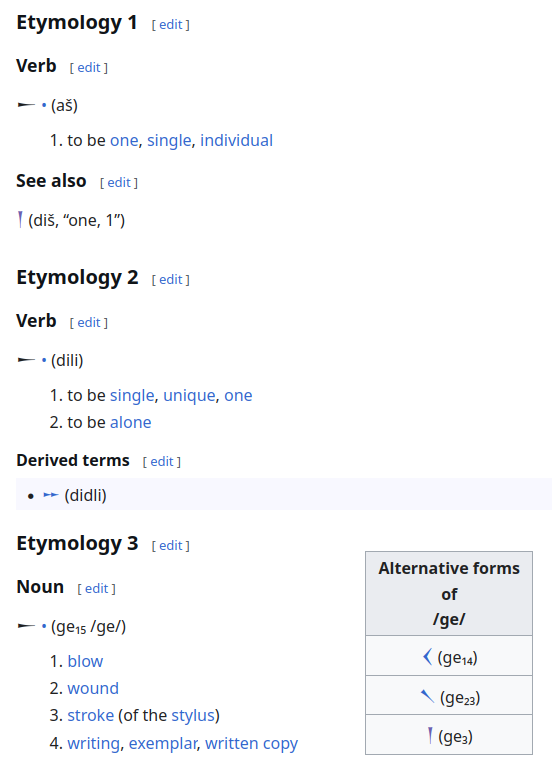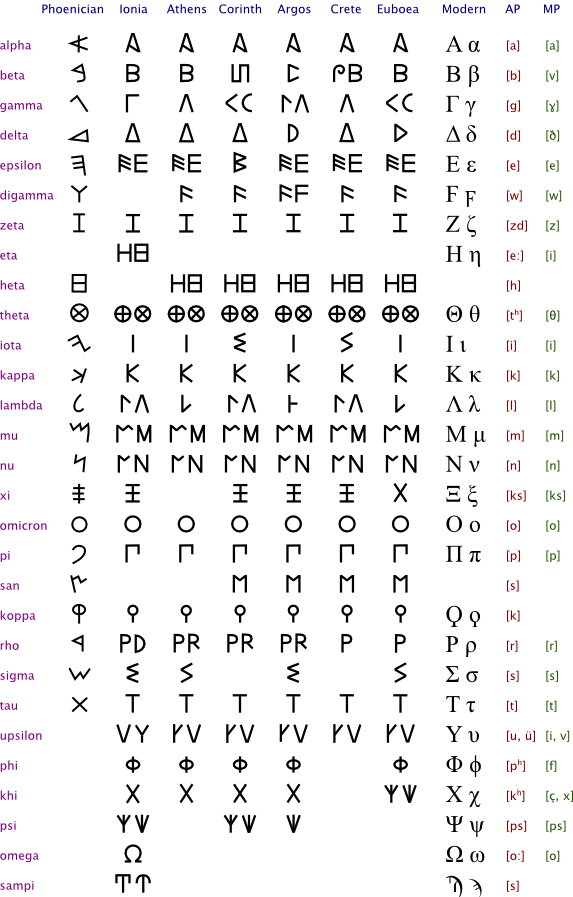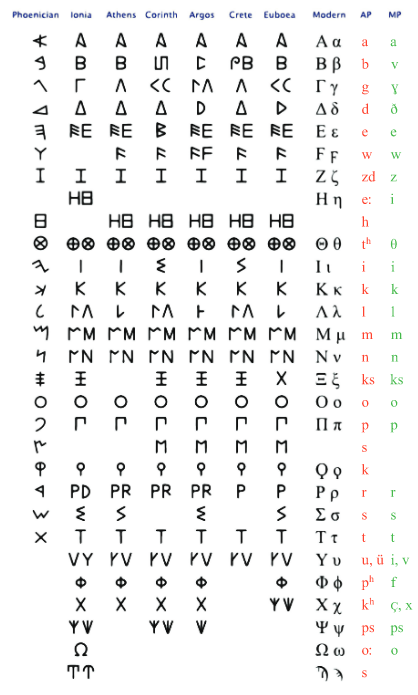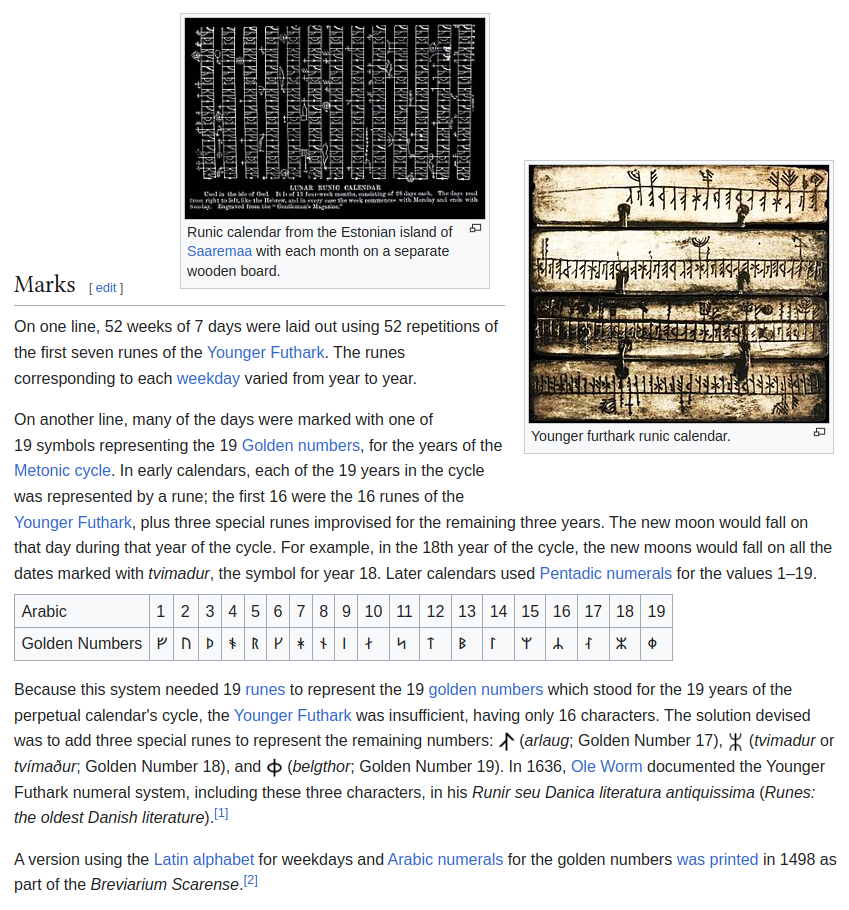It is volume 46 (45 44 43 42 41 40 39 38 37 36 35 34 33 32 31 30 29 28 27 26 25 24 23 22 21 20 19 18 17 16 15 14 13 12 11 10 9 8 7 6 5 4 3 2 1 0)
This is a part of a raw and uneven journal of discovering the origins of the writing systems,
so I recommend you to read the summary of this
work instead.
As I suspected, you can collect an alphabet consisting only of birds. And thus birds would be the secret language: in one town they would make the birds fly into the given direction (but drugging it or something) and people in that city would look at what those birds be, in what order they would fly they would use it as the teletype, let's try and reconstruct the alphabet:
𓅂 [tjw]
𓅃 [ḥrw] [nṯr] [ḥry] [nb] (𓅄 [bjk] [ḥrw] [nṯr] [nb])
𓅐 [mwt] [nrt]
𓅓 [m] [jm] [n] (𓅔 (mm, m, nm))
𓅘 [nḥ] [nḥḥ]
𓅙 [ḏb]
𓅚 [rḫyt]
𓅛 [rḫyt]
𓅜 [ꜣḫ]
𓅞 [hb] [ḏḥwtj] [jqr] [jp]
𓅟 [dšr]
𓅠 [gmj] [gm]
𓅡 [bꜣ]
𓅣 [bnw] (𓅤 [bꜥḥj])
𓅥 [sdꜣ] [dꜣ]
𓅦 [njw]
𓅧 [ꜥq]
𓅨 [mnt] [wr]
𓅪 [bjn] [nḏs]
𓅬 [ꜣpd] [gb] [ḥtm]
𓅭 [sꜣ] [zꜣ]
𓅮 [pꜣ] (𓅯 [ḫnj] ([pꜣ, qmꜣ] (?)))
𓅰 [wšꜣ] [ḏfꜣw])
𓅱 [w]
𓅷 [ṯꜣ] [ṯꜣty]
𓅸 [sš] 𓅹[sš] these could be the prototype of Ш along with 𓆷
𓅺 [rḫtj]
𓅻 [ḥꜣm] [ḥjm]
𓅼 [snm]
I selected those which have relatively simple phonetic representations,
and here's what I got:
𓄿 [a]
𓅓 [m] [jm] [n]
𓅙 [ḏb]
𓅜 [ꜣḫ]
𓅡 [bꜣ]
𓅥 [sdꜣ] [dꜣ]
𓅧 [ꜥq]
𓅭 [sꜣ] [zꜣ]
𓅮 [pꜣ]
𓅱 [w]
𓅷 [ṯꜣ] [ṯꜣty]
𓅸 [sš] 𓅹[sš] (𓆷 [š] and that's a super find)
and it was 12 of them (it's hard to say was it legitimately, coincidentally or supconsciously so. After all, if I included ḏb, why not include 𓅃[nb] 𓅘[nḥ] 𓅞[hb~jp] 𓅠[gm] 𓅨[wr] 𓅬[gb]?
With these it would be 18 of them
And if we go even purer, we find ourselves with only three: 𓄿𓅓𓅱
If 𓄿𓅱𓅓 were in this order ever recorded for Aum the great Om, then 𓅱 is indeed w, otherwise it's ш.
They had a whole set of *ꜣ syllables
𓅡 [bꜣ] 𓅥 [sdꜣ] [dꜣ]
𓅜 [ꜣḫ]
𓅮 [pꜣ] 𓅷 [ṯꜣ] these two have their wings apart.
𓅭 [sꜣ] [zꜣ]
looking at pꜣ ṯꜣ line, it makes me wonder if dꜣ is little bꜣ (also because B is double D, so is П to T)
If this system was developed when AEIOU B T were all the letters, ..no, it could be of AMS period, thus 𓄿𓅱𓅓 were the three letters: it's hard to tell what is the breed of the lett bird, but to distinguish Aгромную from Middle from Small
But then how many of information can one transfer in this way? šma and sam and maš (as приём, сам, помогай) but a better thought told me that the transmittion could be easily disturbed by other birds.
And then it came to me (probably not for the first time) that birds would send letters. So members of the initiation into pigeon mail can transmit news over large distances. And they wouldn't reveal their method, so people would recognize it as a divination.
Pigeon post is the use of homing pigeons to carry messages. Pigeons are effective as messengers due to their natural homing abilities. The pigeons are transported to a destination in cages, where they are attached with messages, then the pigeon naturally flies back to its home where the recipient could read the message. They have been used in many places around the world. Pigeons have also been used to great effect in military situations, and are in this case referred to as war pigeons.
As a method of communication, it is likely as old as the ancient Persians, from whom the art of training the birds probably came. The Romans used pigeon messengers to aid their military over 2000 years ago. Frontinus said that Julius Caesar used pigeons as messengers in his conquest of Gaul.[2] The Greeks conveyed the names of the victors at the Olympic Games to their various cities by this means.[3]
И это объясняет такое широкое распространение голубятен в совке.
И они исчезли с появлением сотовой связи и
интернета.
(босяцкая почта (бандитская))
(босяцкая почта (бандитская))
𐂖 (Mycenaean Greek for wine)
酒 (Japanese for sake)
The similarity is most likely coincidental, but it may help me memorize the two.
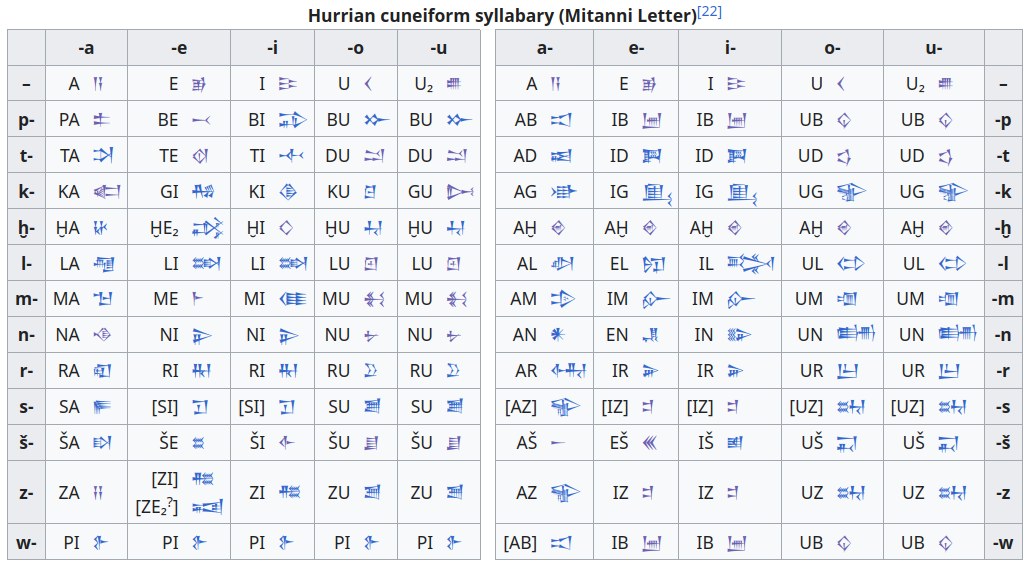
as you can see, they mostly have only four vowels. The only differences in the final two columns
are -o & -u and ku & gu
a dot
to move
a is for nouns
to is for verbs
what is the B~M? there's no other. so it's Alpha and ..Tav (before omega)
A and T
yin and yan
гласные и согласные
подлежащее имеет голос
сказуемое делает что сказано. согласно с подлежащим (какое мерзкое слово. русский, вы уродск)
В русском эти частицы присобачиваются сзади: ть для глаголов и а для существительных:
делать, делает (ть~ти~те, ет~этот~it)
но дела, делу, дело, но дели снова глагол, и с другим вроде смыслом. Своё дело ~ своя доля.
но часто вместо а пустое место, подобно тому как артикли отпадают:
делать
дела
(так ведь и to отсутствует, как отсутствует ть, и в тех же случаях: делаю (I do. ю~я (юс=us)))
вручить в руки? гласная всегда после согласной? ведь даже кол был раньше колъ. т.е. ть ставится там, где англичание ставят to, но с другой стороны (там знечит значит в тех случаях)
а артиклей в русском нет. есть местоимения те ~ the и a ~ какой-то, некий, и так далее, не местоимения даже, хотя.. кой какой, что, да, это вопросительные местоимения. чёткое и нечёткое местоимения. выдумываю. шучу.
Если существительные это гласные, а глаголы согласные, то наверное не только на Ти?
ти в лети но ви в рви
Но в императиве всё равно, рвите. Но, погодь, это множественное чилсо.. рви!
руби
иди
меть
мри
млей (м слюна? обоссался от восторга тоже. вода моча как грязная форма этого слова. mead?)
мёд и моча когнаты? нужно такие дремучие уровни языка вытаскивать?
mead менее грязная М "вода" чем моча. дъ как да.
we более высокая форма слова me
has he (does it tell hat he was se? she? hash? stash)
have we
в контексте has ~ stash,
have is not ха́ваю, а хова́ю (hide (вы у одних, те у других? как это? hide ~ de he (his)))
show ~ share (ᚢ~ᚱ)
Артемида Афродита Афина
девственница любовница умница
Are they three approaches to alphabet? Three stages of alphabet maybe?
Artemis (the final flexion is whether the same letter, or arbitrary, determined by the local grammar)
AKTM is the eastern order, where the sun is born (it's Artemis, and what if alphabet wasn't changed, K and R were just mixed up.
Aphrodite
AFKDT is very abcd-like. Each letter is prototype of the column, so it's in between. OPRT-like
is the western order. Ladies first. So IJKLMN is not an anomaly, but could be the IKLMN, the original indian order. I is for India. Hindus say it's not their toponym. But that could be just the change in their dynasties. They probably have some monarch-like dynamics at least on local levels.
Athena
Is the mixed-up
In ancient Greek religion and mythology, Artemis (/ˈɑːrtɪmɪs/; Ancient Greek: Ἄρτεμις) is the goddess of the hunt, the wilderness, wild animals, nature, vegetation, childbirth, care of children, and chastity.[1][2] In later times, she was identified with Selene, the personification of the Moon.[3] She was often said to roam the forests and mountains, attended by her entourage of nymphs. The goddess Diana is her Roman equivalent.
Artemis was one of the three major virgin goddesses, alongside Athena and Hestia. Artemis preferred to remain an unmarried maiden and was one of the three Greek goddesses over whom Aphrodite had no power.[5]
Aphrodite (/ˌæfrəˈdaɪtiː/ ⓘ, AF-rə-DY-tee)[a] is an ancient Greek goddess associated with love, lust, beauty, pleasure, passion, procreation, and as her syncretized Roman counterpart Venus, desire, sex, fertility, prosperity, and victory. Aphrodite's major symbols include seashells, myrtles, roses, doves, sparrows, and swans. The cult of Aphrodite was largely derived from that of the Phoenician goddess Astarte, a cognate of the East Semitic goddess Ishtar, whose cult was based on the Sumerian cult of Inanna. Aphrodite's main cult centers were Cythera, Cyprus, Corinth, and Athens. Her main festival was the Aphrodisia, which was celebrated annually in midsummer. In Laconia, Aphrodite was worshipped as a warrior goddess. She was also the patron goddess of prostitutes, an association which led early scholars to propose the concept of "sacred prostitution" in Greco-Roman culture, an idea which is now generally seen as erroneous.
Athena[b] or Athene,[c] often given the epithet Pallas,[d] is an ancient Greek goddess associated with wisdom, warfare, and handicraft[2] who was later syncretized with the Roman goddess Minerva.[3] Athena was regarded as the patron and protectress of various cities across Greece, particularly the city of Athens, from which she most likely received her name.[4] The Parthenon on the Acropolis of Athens is dedicated to her. Her major symbols include owls, olive trees, snakes, and the Gorgoneion. In art, she is generally depicted wearing a helmet and holding a spear.
Artemis was one of the three major virgin goddesses, alongside Athena and Hestia.
In ancient Greek religion and mythology, Hestia (/ˈhɛstiə, ˈhɛstʃə/; Ancient Greek: Ἑστία, lit. 'hearth, fireplace, altar') is the virgin goddess of the hearth and the home. In myth, she is the firstborn child of the Titans Cronus and Rhea, and one of the Twelve Olympians.
In ancient Greek religion and mythology, the twelve Olympians are the major deities of the Greek pantheon, commonly considered to be Zeus, Poseidon, Hera, Demeter, Aphrodite, Athena, Artemis, Apollo, Ares, Hephaestus, Hermes, and either Hestia or Dionysus.[2] They were called Olympians because, according to tradition, they resided on Mount Olympus.
Besides the twelve Olympians, there were many other cultic groupings of twelve gods.
Artemis preferred to remain an unmarried maiden and was one of the three Greek goddesses over whom Aphrodite had no power.[5]
naturally, if she was a virgin, child.
Wiki confused me.
I never knew of Hestia, so why now change the revelation after I read what is also not necessarily the truth.
(the following is slavic spelling)
Artemida, Afrodita, Afina is the greek goddesses starting with A I ever knew.
And in that light they're the eastern alphabetic order, the western alphabetic order, and something even more ancient: some proto-alphabetic order of ΑΒΓΔΕΖΗΘΙΚΛΜΝ with Θ being from f to t, and N being close to M. So, probably she represents the latest stage of the alphabet, where no structure can be immediately seen. It's only a guess, but a powerful one.
Here are some google's responses to "artemis aphrodite athena"
Do Athena, Aphrodite, and Artemis get along? No, according to the Homeric Hymns, Athena and Artemis are two of the three deities Aphrodite has no power over. Hestia is the third. Athena and Aphrodite were rivals for the golden apple and the title of Kallisti.
Artemis and Aphrodite had a rivalry that was not no secret. Aphrodite hated that Artemis had some people who believed in the virgin goddess who stay single and don't fall in love. So the goddess of love and beauty would target those who follow Artemis and kill or make them fall in love.
Hestia is Athena's girlfriend, although they have mostly kept their relationship a secret. The two get along very well, both as long time members of TGOEM and as romantic partners.
Образование индоктринирует (учит подчиняться: приходить во время, соблюдать дрескод, заниматься скучной хуетой за жрать)
Охрана порядка нужна чтоб делать вид, что бандиты, которые половину твоих доходов забирают, заботятся о тебе
Первое следует заменить образовательными программами в интернете и кружками по интересам. Второе — всеобщим общедоступным видеонаблюдением и общедоступной базой данных, где подвиги каждого можно посмотреть, искусственным интеллектом по разным шкалам подрезюмированный (столько-то хороших дел сделал, столько-то сомнительных, и ты сразу можешь видеть с кем общаешься.
А общественный транспорт блаблакаром заменить.
Чем меньше государство "помогает" экономике, тем лучше у этой экономики дела. Корреляция прямая и универсальная. Это настолько непреложная закономерность, что можно её в фундамент экономики как науки поместить. И, естественно, это не единственное основание экономики как науки
god knows
god shows
год покажет
время покажет
год это всеобъемлющее понятие (а божества это абстрактные понятия)
год это добрая надежда. так-то может же и век быть, и слово век бохоже на бог.
наш бог больше их бога, но в заклинаниях слишком философско, недостаточно оптимистично.
Надо отбросить русский язык. Принимать язык более успешных народов.
English and Nederlands.
We already know that it's not Netherlands, but Niderlandы. Надо бы русским начинать называть их Недерланды. Чтоб у недерландцев не бомбило. Может изменили оттого, что на неделю больно поъодило. Не дер ланды не дерутся. Не дерландцы не дерутся. Not the land of der (dermany, germany, deutsch, geutsch) дерманцы герутся
в Nederlands, d вместо ð наверняка это имеет что-то общего с Δ
назвали ~ называли (ы как шва? или доп.гласная меняет форму совершенного видва в форму вида несовершенного)
трюк ~ друг (подсадной, подставной)
θαύμα
(miracle) ~ femme?
не спеши ~ не кипеши (two forms of c)
віслюкUA ~ осликRU (two forms of ו (и украинская форма понятней: везёт, возлик, маленький вол))
Big Good (Бог God.. and if B is a slavic addition, and A is jewish addition, then G D E F is the order, G D З F (Ζ in greek?)
Deuθ
I MоЛю (changed into ill man)
О ПРоСТи
Монолю? Прости!
Мозолю? мавзолей что означает? The word mausoleum (from the Ancient Greek: μαυσωλεῖον) derives from the Mausoleum at Halicarnassus (near modern-day Bodrum in Turkey), the grave of King Mausolus, the Persian satrap of Caria, whose large tomb was one of the Seven Wonders of the Ancient World.[1]
G-D DEVΖΗΘ (deus zeus)
IJ JK KL LM MN
IL LM MN ill lame man? это какое-то христианское саомбичивание
IMNL I'm MaN and that's it. L is Lame, Left, Long though: l
IMN (1 3 2) lnm? is it why m is off its column?
This is still a mistery.
I think this practice to write whatever comes to mind hindered my ability to communicate:
I tend to share raw thoughts and they look
silly, I speak silly.
Вместе с тем в соответствии со ст. 3 федерального закона "О погребении и похоронном деле" от 12.12.1996 погребение может осуществляться лишь путем предания тела умершего земле (путем захоронения в могилу, склеп), огню (кремация) или воде. Мавзолей как место захоронения прямо в законе не упомянут, однако учитывать решение президиума ЦИК РСФСР от 25 января 1924 года, в котором говорилось: "1. Гроб с останками Владимира Ильича сохранить в склепе, сделав последний доступным для обозрения. 2. Склеп соорудить у Кремлевской стены на Красной площади среди братских могил борцов Октябрьской революции".
Если допустить, что с юридической точки зрения находящееся на Красной площади строение из красного гранита — большой склеп, то данное "сооружение похоронного значения" является совершенно законным местом захоронения Владимира Ульянова.
Для того чтобы вынести его останки из склепа, следует осуществить процедуру переноса места погребения (перезахоронение). Для этого нужно не так уж много документов: заявление родственников покойного, свидетельство о смерти, справка санэпиднадзора о возможности эксгумации и квитанция об оплате похоронных работ на новом месте захоронения. В данном случае проблема состоит в том, что, как известно, ближайшая родственница покойного — племянница Ленина Ольга Ульянова — категорически против перезахоронения дяди. Без ее согласия можно было бы обойтись в том случае, если бы существовало документальное подтверждение желания покойного быть похороненным в каком-то конкретном месте. Однако за последние 15 лет такого подтверждения найти не удалось.
три элемента: земля, огонь, вода
Если огонь Агни,
вода Митра Индра,
земля.. Бхуми (instead, rigveda places Vayu (wind, воздух) and some ashvins in between)
Bhumi (Sanskrit: भूमि, romanized: Bhūmi), also known as Bhudevi, Dharani, and Vasundhara, is a significant goddess in Hinduism, personifying the Earth. Her earliest form is reflected in the Vedic goddess Prithvi, though their roles and depictions are drastically different.[3]
Bhumi features prominently in the Mahabharata and various Puranas. According to Vaishnava tradition, she is the second consort of Vishnu, along with Sridevi and Niladevi. As per Hindu mythology, Varaha, the third avatar of Vishnu, saved her from the asura Hiranyaksha and later married her, making her one of his consorts. After this rescue, Varaha and Bhumi have a son named Mangala. Bhumi also bears Narakasura, an asura, due to Hiranyaksha's influence. In the epic Ramayana, she is mentioned as the mother of Sita, the epic's female protagonist.[4]
Agni
Vayu
Indra are A U I, athus ashvins are Щ next ot W
Agni A
Vayu V
Ashvins Щ
Indra I It's strangne that I is not the numero uno. A looks like 4, V and Щ are great 2 and 3
I
V
Щ
А
ива? щ появилось позже: в было свистом если, губной очень похож на в, тогда язычный свист щ
иваще (и вообще)
Яша ~ Иешуа
greetings from vowels:
ὐ
ύψιλον
The name of the letter was originally just "υ" (y; also called hy, hence "hyoid", meaning "shaped like the letter υ"), but the name changed to "υ ψιλόν" u psilon 'plain υ' to distinguish it from οι, which had come to have the same [y] pronunciation
ψηλά высокий (греческий, что с тобой не так. Должен я задать эти вопросы кому-то..
блин, это случилось, я начал греческий
учить
а оно ещё закрученней:ψιλο- • (psilo-), ψιλό-
prefix denoting that the second combining form...
is very thin
ψιλο- (psilo-) + κόβω (kóvo, “I cut”) → ψιλοκόβω (psilokóvo, “I cut thinly”)
ψιλο- (psilo-) + φλούδα f (floúda, “rind”) → ψιλόφλουδος (psilófloudos, “with thin rind”) (especially for fruit)
is created after meticulous process
ψιλο- (psilo-) + δουλειά f (douleiá, “work”) → ψιλοδουλειά (psilodouleiá)
is not important, not serious
ψιλο- (psilo-) + πράγματα n pl (prágmata, “things”) → ψιλοπράγματα (psiloprágmata, “unimportant things”)
"οι, which had come to have the same [y] pronunciation" at first confused, but here's the explanation:
In early Attic Greek (6th century BCE), it was pronounced [u] (a close back rounded vowel like the English "long o͞o").[8][9] In Classical Greek, it was pronounced [y] (a close front rounded vowel), at least until 1030.[10] In Modern Greek, it is pronounced [i]; in the digraphs αυ and ευ, as [f] or [v]; and in the digraph [ου] as [u]. In ancient Greek, it occurred in both long and short versions, but Modern Greek does not have a length distinction.
As an initial letter in Classical Greek, it always carried the rough breathing (equivalent to h) as reflected in the many Greek-derived English words, such as those that begin with hyper- and hypo-. This rough breathing was derived from an older pronunciation that used a sibilant instead; this sibilant was not lost in Latin, giving rise to such cognates as super- (for hyper-) and sub- (for hypo-).
I bought it here, because greek h is s in latin. Which supports what I said of H not necessarily being [h] when the lap alphabet was invented.
Get ReaDy ~ GiRD your loins
There's kiddy rhyme amongst russian children to equate names to verbs:
Тётя Маша всех помашет, перемашет, вымашет (причём вымашет выдаёт ж в этом ж)
Тётя Маша всех помажет, перемажет, вымажет (вновь объединяя х и з (махать и мазать)
подобно тому, как x иногда читается как z)
Дядя Дима всех подымит передымит выдымет (привет, Украина, они
читают и как ы) и, ещё более чем вымашет, нет слова выдымать,
но в нём явно слышно выдумать (латинское y транслитерируется в
русский как ы) и другая форма имени Дима это МитяДядя Митя всех помитит, перемитит, вымитит (нет таких глаголов, но есть пометит, переметит, выметит (причём значение корня первых двух и третьего разные: в первых двух метить (to mark) а в третьем мести (to broom)) разница между этими двумя именами в приставке Де, показывающей как Деметра ~ Митра ~ Мать (как так получилось, что Митра мужским божеством считается бог весть, я говорил раньше, что уж слишком это слово похоже на Матерь)
Дядя Коля всех поколет, переколет, выколет (причём полная форма имени Николай имеет приставку ни, словно отрицающую это действие)
Дядя Саша всех посашит пересашит высашит (редкое исключение, не имеющие смысла глаголы, но если заменить ш на ж, то дядя Саша всех посажет пересажит высажит (то ли от сажа(soot) то ли от садить, но тогда было бы д вместо ж (тогда как высаживает от садить))
Другой формой имени Саша является Шура (х.з. почему)
Дядя Шура всех пошурит, перешурит, вышурит (но таких глаголов тоже нет, если же заменить ш на ж, то дядя Шура всех пожурит, пережурит, выжурит, и переходное ш/ж не самые частые буквы, что может говорить, что полной формой могло быть какое-нибудь Сашура. Сашуля может быть ласковой формой слова Саша. уродской формой, как все формы на уля-юля, но тем не менее узнаваемой. Журить is to scold, then Сашить сказать быть может? Александр.. блин, сложна.
Тётя Катя всех покатит, перекатит, перекатит выкатит (Kat rolls (though she rocks way more, rolls would make her better than whatever that silly gal was taking, fucking cobain, that retarded faggot))
Многие имена в этой игре не имеют никакого смысла: дядя петя всех попятит?
тётя оля всех поолит? nah..
I'm a shitty writer, that's a fact. I'm a great researcher though.
fairy ~ ferry
АБВГД
ОПРСТ is how it started for me and this work: though russian is not the alphabet in which this structure is best preserved, it has these two lines with the same ammounts of letters. And it places R (russian Р is R) across V (russian В is V) which reflects the ᚢ~ᚱ~ᛒ thing and the fuþark being abþevg hypothesis.
F-word ~ F-note (fuck)
A-word ~ A-note (ass (another reason why it was added later (by faggots)))
B-word ~ B-note (boobs)
C-word ~ C-note (cunt)
D-word ~ D-note (dick)
E-word ~ E-note (ебать? eat (like in eat pussy (I don't recommend it, they say it's carcenogenic)))
G-word ~ G-note (okay, I lost it, unless it is G-spot, but at this point it's only a wordplay, not serious)
H-word ~ H-note (ho)
Внезапно озарило: дьявол поможет. Бог это всё устроил. Дьявол поможет нам.
Как к этой мысли пришёл: какой-то мыслестроительный процесс предшествовал этой мысли.
Сейчас не смог его вспомнить. Может от того, что Дьявол не стал поклоняться человеку (сейчас понимаю что закон не велит подчиняться кому-либо кроме бога, разве нетак?) а мне и не нужно его поклонение, служение, или что-то подобное. Нужно лишь хорошее отношение.
Взаимное уважение.
Я оголённым нервом прижался к ноосфере. Сам считаю, что создание порождено мозгом и новые идеи порождаются сознанием, и не признаю идеи вернадского (покрайней мере те, о которых слышал, по крайней мере эту) но люди верят в них охотней. Им хочется верить. Буду для них другую реальность лепить. Метафорическую. Ноосфера это абстракция. но люди верят в ноосферу охотней. Буду для них в соответствии с их верованиями модель реальности леприть (моё сознание показало её маленькой, в сравнении с моей, просто копию с моей модели сознания сняло *(и узрел я её как комнаты на плане квартиры сплетённые из ветвей. комнат не больше десяти там было, и внутри комнат иногда ветви сокращают путь (если смотреть на эти линии не как стены комнат, а как дороги. Тропинки навеху машен и акведуков (сейчас про них подумал, что стена может быть дорогой)
башен ~ машин? башня ~ машина? баш и магш
(маш ~ могёшь? маешь. имеешь. have ~ can?
h~k, v~ν)
имеешь ~ умеешь
имашь ~ магёшь
(почему и перед машь? потому что это слово-вызов)
имеешь ~ умеешь
имашь ~ магёшь
(почему и перед машь? потому что это слово-вызов)
что-то вроде такого, но более прямоугольное. В фиолетовой 100-filse-folder another drawing of it.
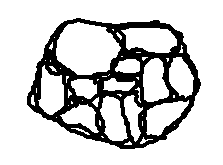 но простенки лучше здесь
нарисованы, но в них было не по
но простенки лучше здесь
нарисованы, но в них было не по somehting like this it was:
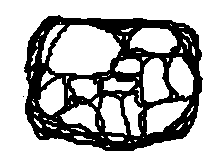
There were more of complexity. It is interesting that it's 2025 and I didn't use ai yet..
I try not to be distracted, so I stay away
from technology.
I also use it, but not enough, I am attracted to it and distracted from it,
both intentionally.
I also use it, but not enough, I am attracted to it and distracted from it,
both intentionally.
Ab Bc Cd De Ef Fg Gh Hi Ij Jk Kl Lm Mn Op Pq Qr Rs St Tu Uv Vw Wx Xy Yz Za (lost No)
De Hi No are the only thgre thhe Th three wordsw which are in the this sequence.
and both french and english only have two. Two-two letter words in the alphabetic sequence.
Аб Бв Вг Гд Де Её Ёж Жз Зи Ий Йк Кл Лм Мн Но Оп Пр Рс Ст Ту Уф Фх Хц Цч Чш Шщ Щъ Ъы Ыь Ьэ Эю Юя Яа and in russian we have Ёж and Но и Её!
Её Ёж Но (her hedgehog but)
Comparison of russian and english made obvious that no and but are originally the same word (and but is probably not only cognate to "not" by n~u unity of un (no) in νGR~vLA
ტ as uroboros:
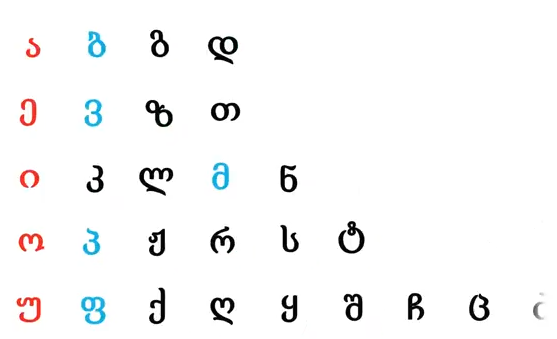
(the rightmost letter
of the fourth line:
ა ბ გ დ
ე ვ ზ თ
ი კ ლ მ ნ
ო პ ჟ რ ს ტ
უ ფ ქ ღ ყ შ ჩ ც ძ წ ჭ ხ ჯ ჰ)
ტაბუ taboo, but neither year, nor hour, nor day, nor time is starting with ტ in georgian.
Yet ტ is T and time does start with T, also Tag, and Y of Year looks like T. Yet none of them look like ტ
ო o
რ r (ⵔ)
ⴰⴱⴲⴳⴴⴵⴶⴷⴸⴹⴺ
ⴻⴼⴽⴾⴿⵀⵁⵂⵃⵄⵅⵆⵇⵈ
ⵉⵊⵋⵌⵍⵎⵏⵐⵑⵒ
ⵓⵔⵕⵖⵗⵘⵙⵚⵛⵜⵝⵞⵟⵠⵡⵢⵣⵤⵥⵦⵧ⵰⵿ⵯ
Tifinagh is very much off, yet it stills preserves this tendency of labials to be after vowels,only in half cases it did. Yet, considering the number of labials and the number of positions, they do tend to do.
The ⵓ-line is fascinating, that ⵔ is not P but R, yet R looks like Р in Russian.
That ⵕ stands in the Q-position (ⵕ[ṛ] they have it in the Р[r] position, which raises once again the question of what is ⵔ and if OPQR was the same thing кап? rain drops shown by labial o-like w?)
ⵚ[ṣ]
ⵖ is an example of prepositionary antonimy: it's to, towards in Central Atlas Tamazight,
but in and from in Tashelhit.
ⵖ looks like ɣ, being ɣ: /jaɣ/ [jɑ̝ʁ] and ʁ also looks like ɣⵗ and ⵘ
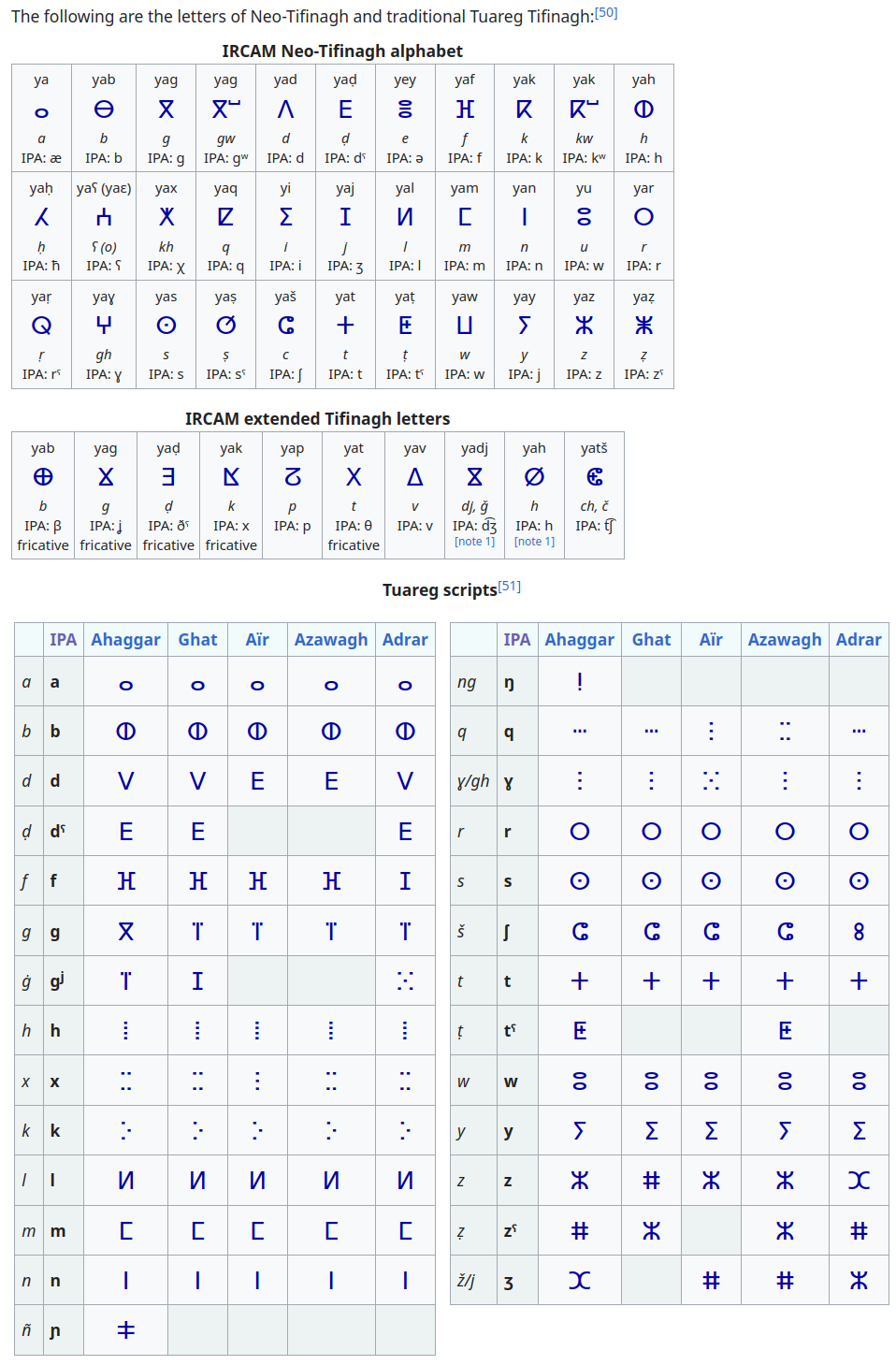
How could it be that traditional script is even further from grace than the modern one:
It's whether that they're ..and I recalled Budeiko's idea that alphabets have tendency to organize into these structures with time. While I think that it is the original order dereiorated with time. And then in my worldview the traditional tuareg divinagh is not in the correct order, or Budeiko is correct on this one (could it be that european order influenced tifinagh? No, I saw many correlations telling that tifinagh is a form of the same structure european alphabets are: ..and to my surprese B and D do not reflect eachother, I thought of B and T being in the top of the alphabet in some other chart:
..and I couldn't find it (I posted it earlier somewhere, the one on
a dirty wall)
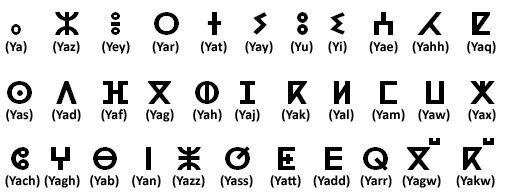
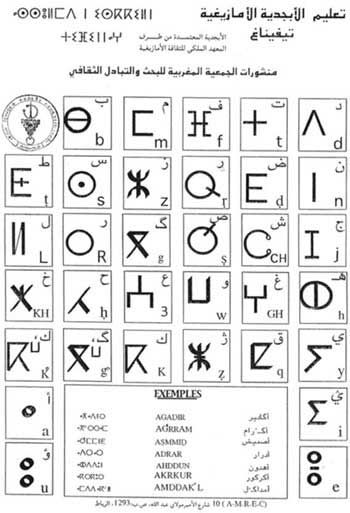
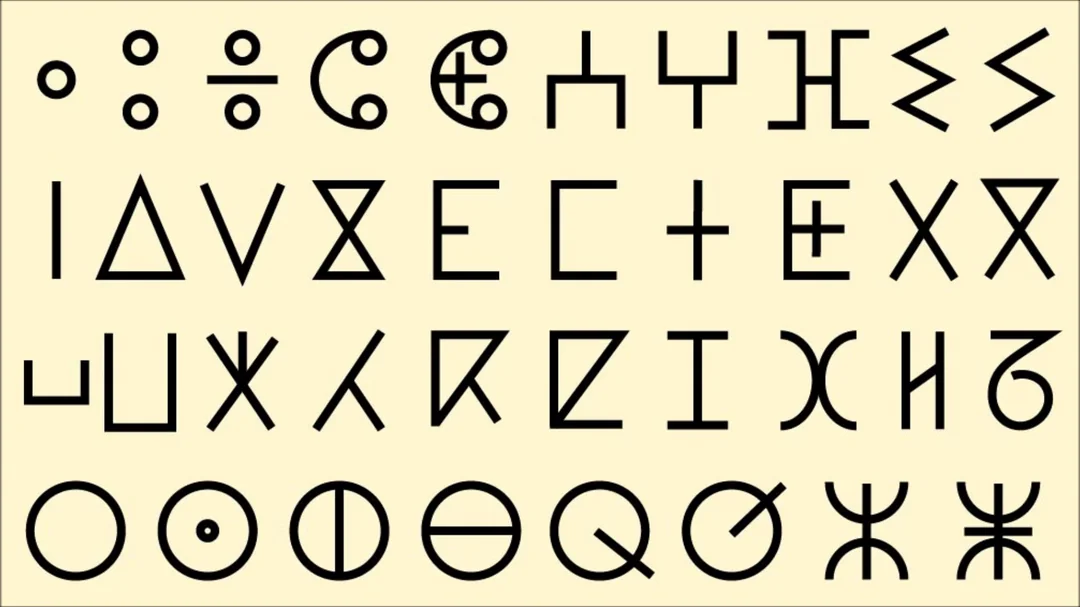
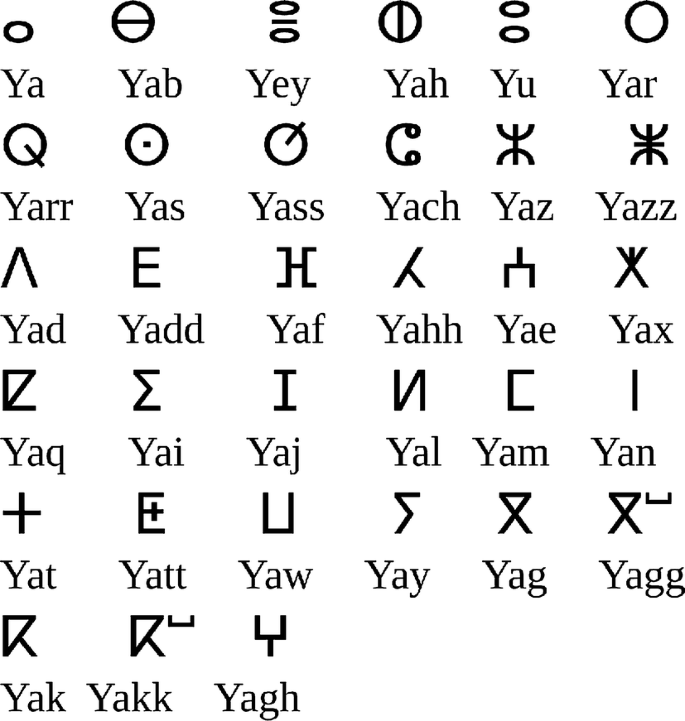
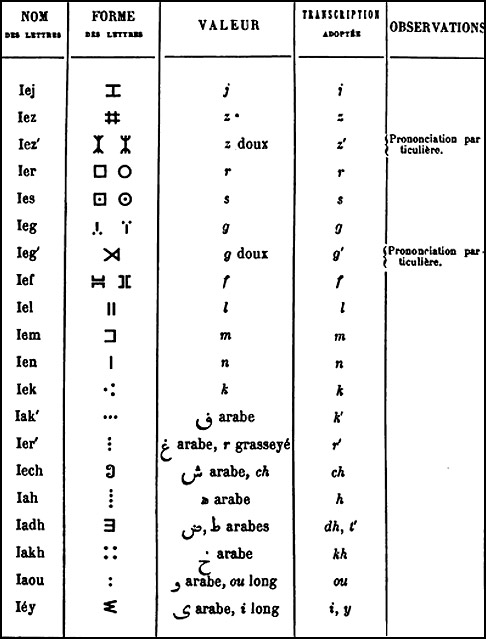
Do they even have any order?
The most popular order is this:
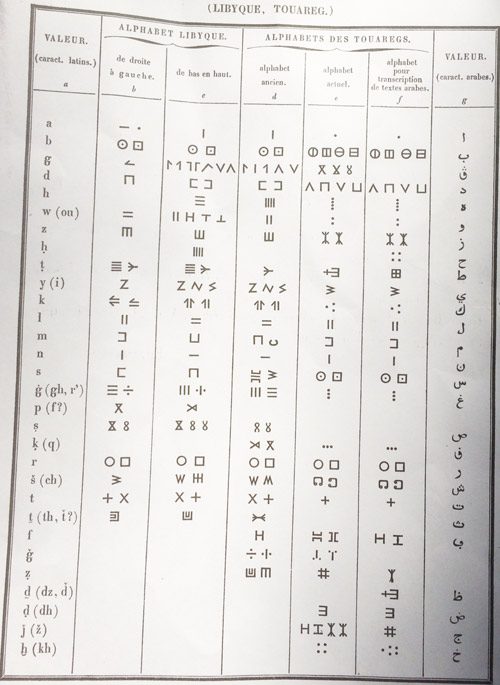
and here's another one, yet it is their own ordering it on the graphic basis:
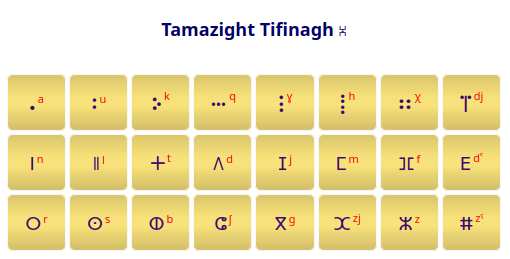
and another one:
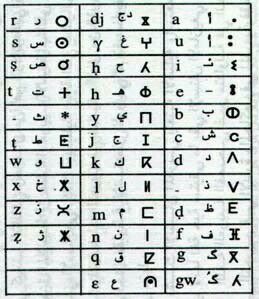
Here the columns go from right to left, and the opening with vowels go in an unusual order:
auie
dash as the transliteration of ⴸ tells that it's the same as ⴷ
(as you can see at one of the higher images, yet why do they transliterated ⴷ and ⴸ differently into arabic is a mystery, and maybe a key to deeper understanding, probably a dialectal difference)
so, further order of consonants is rather alphabetic,
with some additions and suddenly vowel ɛ amonst the consonants.
and looking for tifinagh I surfed across some ogham:I found many other orders though:





Do they even have any order?
The most popular order is this:

and here's another one, yet it is their own ordering it on the graphic basis:

and another one:

Here the columns go from right to left, and the opening with vowels go in an unusual order:
auie
dash as the transliteration of ⴸ tells that it's the same as ⴷ
(as you can see at one of the higher images, yet why do they transliterated ⴷ and ⴸ differently into arabic is a mystery, and maybe a key to deeper understanding, probably a dialectal difference)
so, further order of consonants is rather alphabetic,
with some additions and suddenly vowel ɛ amonst the consonants.
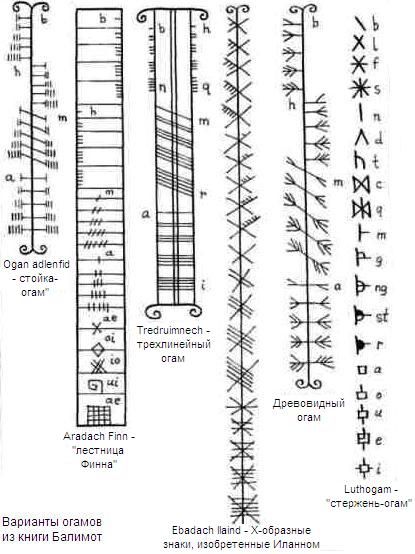
In few days I came across two euphemism people use on youtube: korn instead of porn and кекс instead of секс. Which raises the valid question of whether that a словообразовательный механизм existing since forever? That is a basis of cockney slang (a word rhyming with the target word used instead of it)
Isn't ウ[u] from ワ[wa]? as if it was ワー (and are they related to ラ[ra] as ᚢ and ᚱ? and ヲ[wo])
フ[hu]
I have this idea that hiragana and especially katakana is not
derivative of kanji, because of how い looks like И and how イ
looks like i. But because alphabets have structures, I have to
find such structures in japanese before I can make such claims
out loud.Because if they're related to alphabets, they're the missing link from syllabaries to alphabets.
умный и учёный (значит ли м inner~immer, значит ли ч внеШний?)
(she-fool) RUdúra ~ búrraES (ослица (she-jackass))
(I don't have an opinion on whether these words are related or only accidentally similar: they may be both, but they're definitely a useful pair to learn them together)
(he-fool) RUdurák ~ Бурак (араб. البُراق, сияющий, молниеносный) — в исламе внеземное животное, на котором Мухаммед совершил ночное переселение из Мекки в Иерусалим. Бурака обычно изображают в виде ишака с головой человека. У него большие чёрные глаза и мягкие уши. Окрас красный пятнистый. Мусульмане Индии изображают бурака с крыльями и хвостом павлина.
Иисус тоже въезжал в Иерусалим на осле, таково предназначение, таково предсказание:
Мошиах въедет в Иерусалим на осле. С головой человека. С розовой кожей. про голову человека в предсказании не было, но судя по контексту, именно на этом осле мошенник королём въезжает.
Сходство слов мошиах и мошенник в
контексте еврейства охуительно.
маха-мошиаха (
маха-мошиаха (
Вчера разговаривал с другом, речь зашла о первичности тела над сознанием.
И он меня допытывал из чего чинится тело. Я сказал из стволовых клеток. Но сейчас вернулся к этой мысли и нет, только кровь делается из того, что они называют стволовыми клетками. Как бы обычная клетка заменилась? Она же встроена в межклеточный матрикс, и понял что только деление соматической клетки может привести к заживлению. И значит метод Лиз Пэрриш (они десять лет её наблюдают и счастливы, Джордж Чёрч к ним присоединился. Какие ещё тебе нужны доказательства? Мне? Я жду когда ценник будет не таким кусючим (судя по трендам ещё 10 лет 2035? in 2045 everybody must be immortal. And the other technology, artificial wombs, is going to be good enough at the same time.
Клетка сбрасывает кожцу? после чегно кожа живёт как клетка? Она делится хромосомами до разделения. Т.е. нет, метафора сбрасывания кожи некорректна. А когда клетка сдулась? то из неё выпивается межклеточный матикс, после того как он порвался (и дай бог там нет апоптотической составляющей)
Вопрос перенаселения решится тем, что дети будут отправляться на марс в виде яйцеклетки и сперматозоида. Там в искусственной матке сливаться и вырастать в человека. Вопрос отключать человека от плаценты или нет. Я бы не отключался. Нужно создать трансформируемую матку. чтоб пинком запускалось растяжение. И естественно так и в жизни происходит. Надо максимально приблизить к жизни. Силиконовый робот собирающий плацентарную кровь.
Про силикон (мягкий, не кремниевый (русских выебали в мозг при переводе (русским показали для чего нужны мёртвые ноты)))
Согласные как мёртвые ноты? Глухие согласные. Глухие слоги. соглы. солги? врать~говорить: может и лгать подобный этимологический путь прошло. Иностранцы бы говорили что мол ты не говоришь, а спикаешь (как шпик?) и в подобном контексте употребления слово означающее говоришь означало бы врёшь
(сцена прилёта мхмда) معراج ~ mirage (собственно мираж, как оно могло привидеться)
(проекция человека могла быть произведена на облака при помощи зеркала и яркого освещения человека? Это можно проверить. Думаю что ничего не выйдет: облака слишком далеко. Но можно же зеркало линзой сделать. Тогда слишком рассеянный будет свет чтоб передать изображение. И тут меня осенило: Smoke & Mirrors: The clouds could be of smoke. They could have projected his ride upon a magic donkey onto the smoke, thus people believed that shamans travelled into the sky.
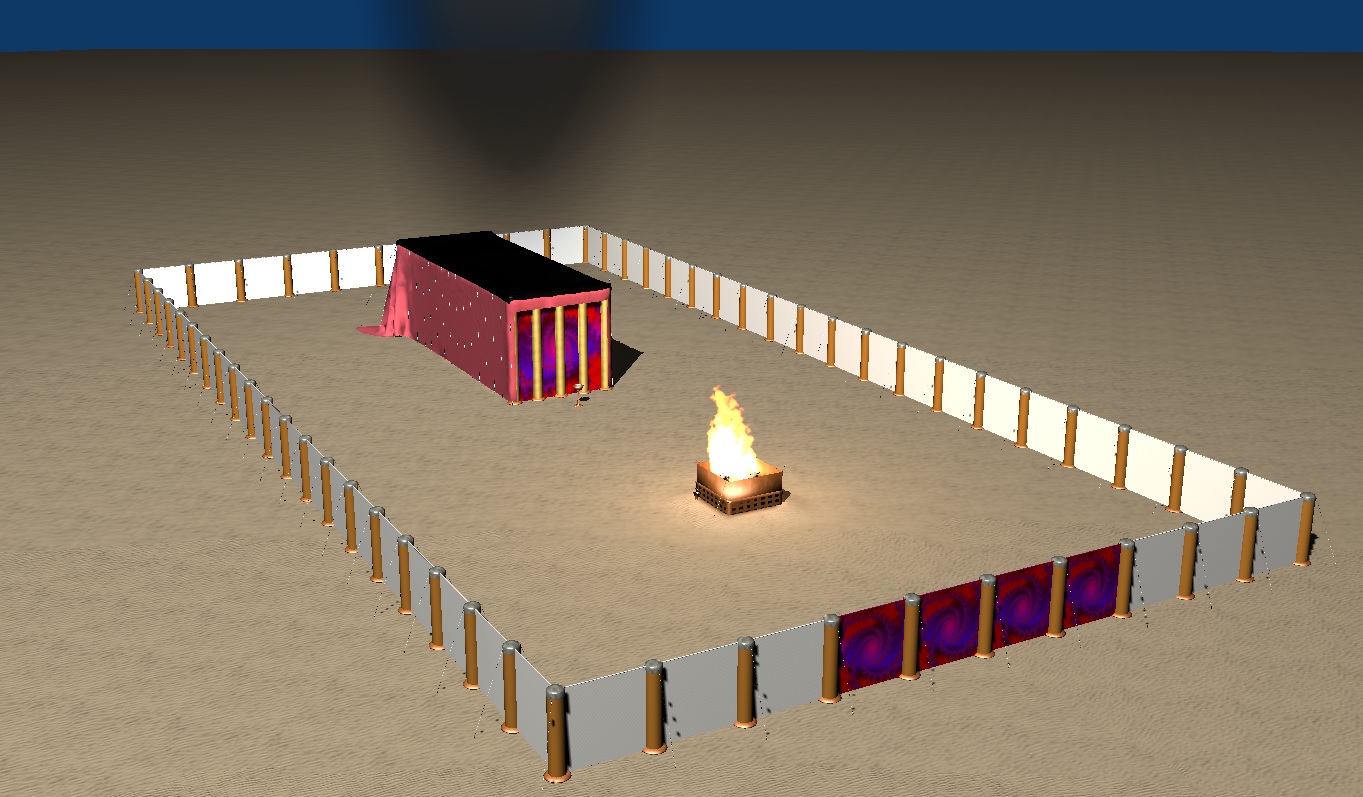
And it's exactly as I imagined: the fence not allowing people to see what is shaman actually doing, not allowing others to come into the light. Source of light. Even the place where the projection is going. And they would raise the mirror and the image would be gone upwards and gone. Probably shaman should be moving as one with the mirror. The mechanism not shown here, the hearth, the fence, all would be placed into the box and some mule would pull it. And the sacrificial meat after being cooked would come into that truck. And maybe half of it would be shared amongst the perrish. As they say, take from a man everything, give him back a half, and he'll be happy.
Молоко без коровы как халява без тельца (золотой телец это белые: они делают народы богатыми, но половина жидов мечтает их изничтожить. Слава БГ что вторая половина любит нас
БоГу
МаНи
внезапно прорубил, что БоГа и БоГу это слова, тогда как бого нет.
т.е. алфавит шёл не а ба га да, а поинтересней: а бо гу да е ве жиза околЬников (ударный Ь? ударный коль (o'kohl-niko [okól ników (okin loko (очень loco))]))
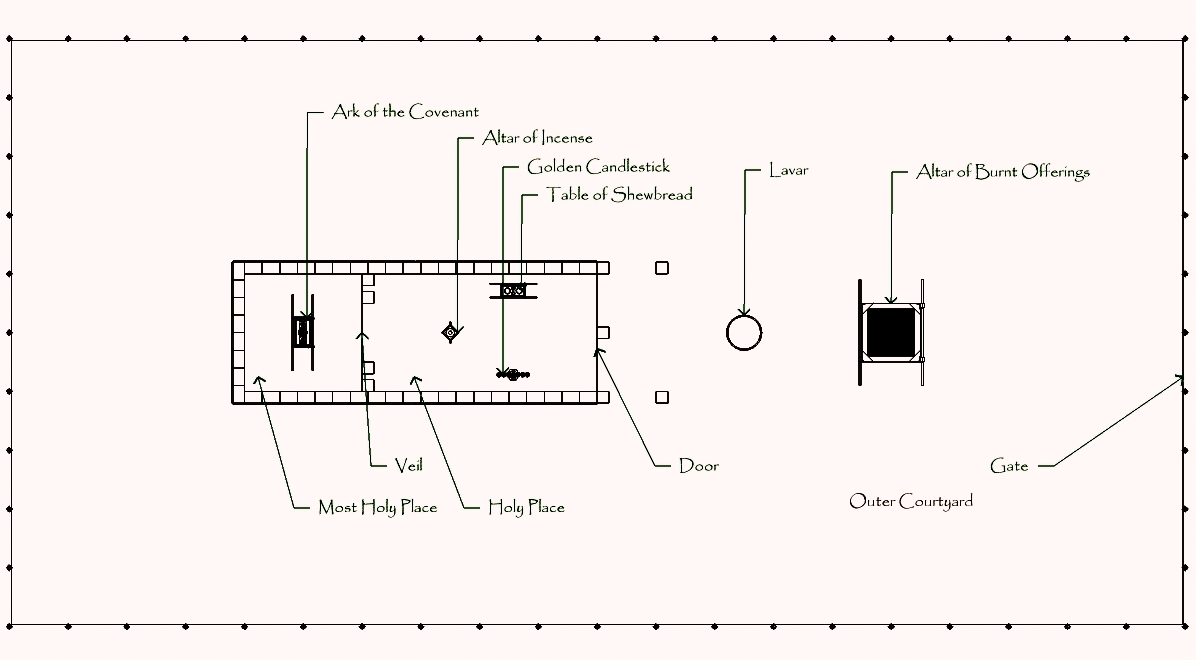
Lavar is a mysterious word, never mentioned in the wiki page, wiktionary only tells that it's to wash in spanish, portugueses and such; and plural of lav (moss) and lave (лавка в бане) in swedish.
neither לור nor לוור bring any translation. But the next images show, that it could be чаша омовения.
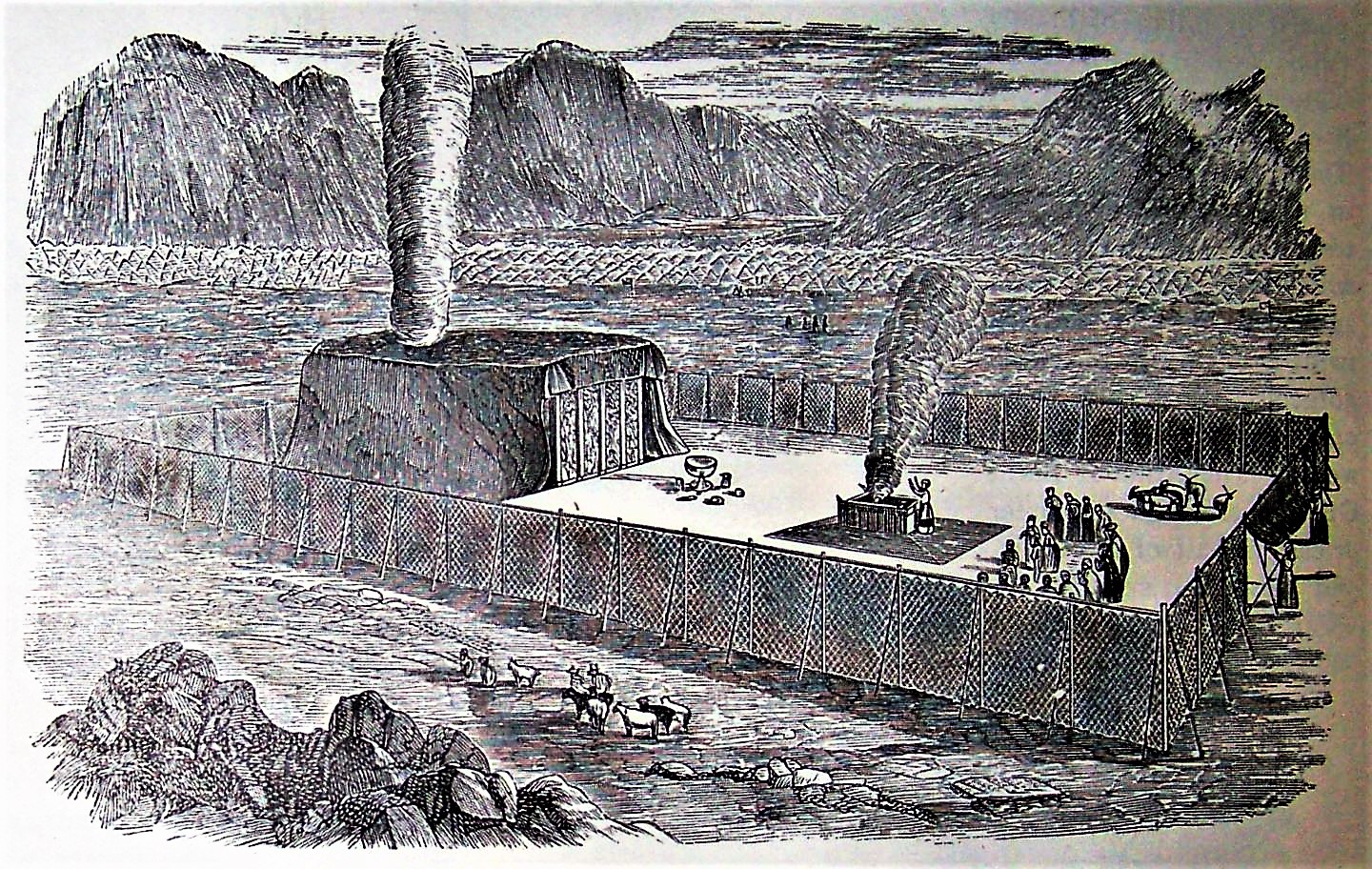
_(14595443098).jpg)
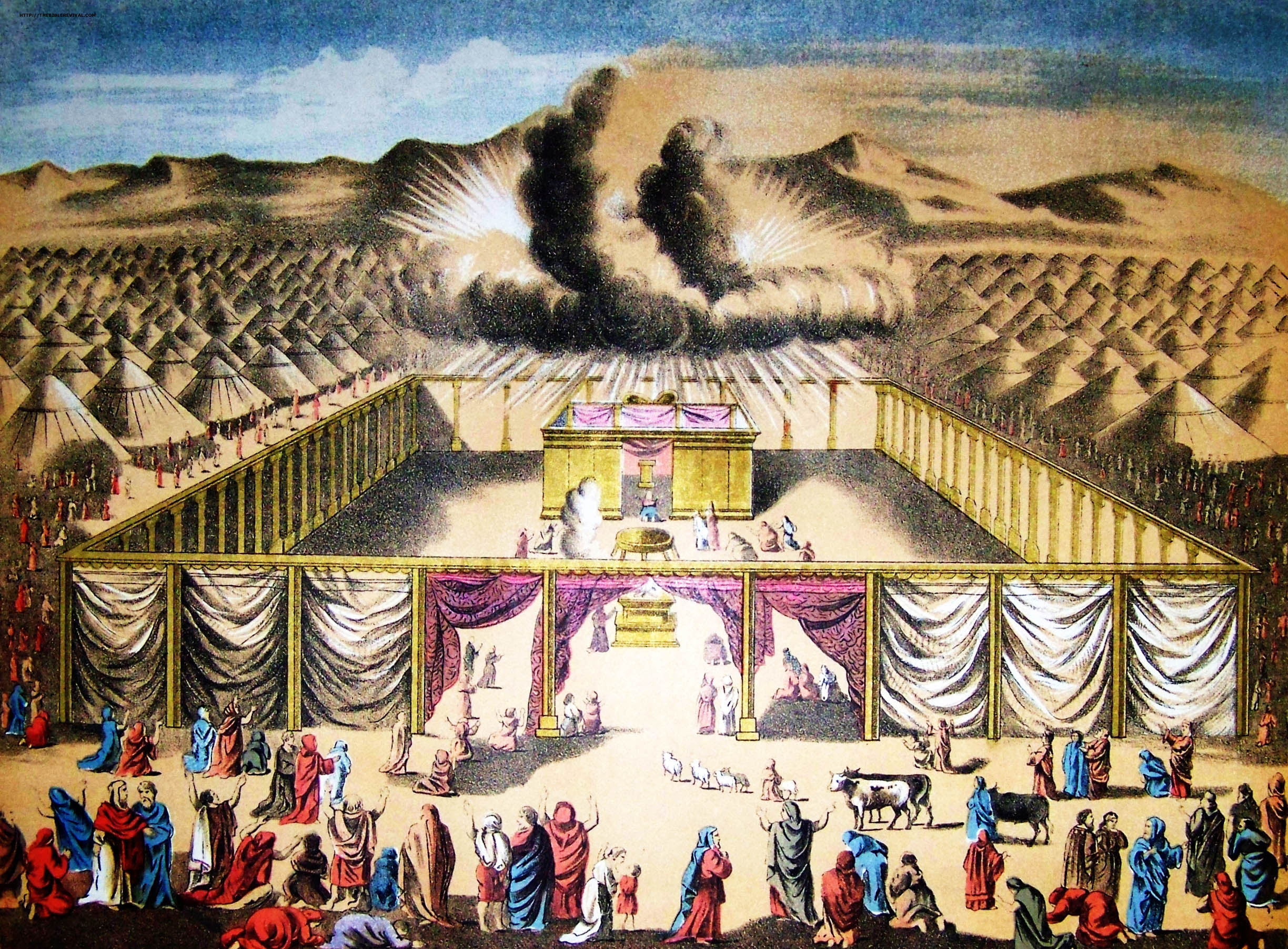
If people from al around could see the vision above the tent, how would it be a projection? They smoke would be above the tent. Then the Altar of Incense is responsible for it. What would they burn there that would make more powerful smoke than the main altar? Weed, man! Menorah symbolizes it.
Either way, could be the light of the Altar of the Smoked Offerings projected onto the smoke of Altar of Incense? I'm as if decyphering an old magic trick. It's new for this book, it just established a synapse to magic. Much later than I met magick, and here they're one. Crowley is responsible for that spelling, so a great magickian he is. Just when people were waking up that magic is only tricks, he divided the words. Tricky, tricky, tricky.
The final image shows it with roof off the sucker, which supports my version of how it's done.
The "Lavar" is probably be the mirror.
Is Geb Gea? Both are deities of Earth.
Is Odin Osiris? because their sons are Тор и Гор (Thor and Horus)
𑱰𑲙𑲙𑲙𑲙𑲙𑲙𑲙𑲙𑲙𑲙𑲙𑲙 𑱰𑲙 𑱰
𑱰𑱱𑱲𑱳𑱴𑱵𑱶𑱷𑱸𑱹𑱺𑱻𑱼𑱽𑱾𑱿𑲀𑲁𑲂𑲃𑲄𑲅𑲆𑲇𑲈𑲉𑲊𑲋𑲌𑲍𑲎𑲏
The Marchen script was a Brahmic abugida which was used for writing the extinct Zhangzhung language.
It was derived from the
Tibetan script.
don't forget, that most of the times they do not know what they're talking about, nevertheless,
As per McKay (2003), Zhang-zhung script has been modelled after Thonmi Sambhota's Tibetan script:
"There is also a Zhang-zhung alphabet, but despite its rather unusual appearance to anyone who is unfamiliar with the Indo-Tibetan ornate style of lettering known as lan-tsha, one observes that it is modeled letter by letter upon Thon-mi Sambhota's alphabet of thirty letters."[2]
A number of scripts are recorded as being used for writing the Zhang-Zhung language:[3]
Marchen or Greater Mar script (Tibetan: སྨར་ཆེན་, Wylie: smar chen)[4]
Marchung or Lesser Mar script (Tibetan: སྨར་ཆུང་, Wylie: smar chung)
Pungchen or Greater Pung script (Tibetan: སྤུངས་ཆེན་, Wylie: spungs chen)
Pungchung or Lesser Pung script (Tibetan: སྤུངས་ཆུང་, Wylie: spungs chung)
Drusha script (Tibetan: བྲུ་ཤ་, Wylie: bru sha)
These scripts have mostly been observed in calligraphy manuals. One extant document, a seal originally held at Tsurpu monastery, is written in the Marchen script.[5]
don't forget, that most of the times they do not know what they're talking about, nevertheless,
As per McKay (2003), Zhang-zhung script has been modelled after Thonmi Sambhota's Tibetan script:
"There is also a Zhang-zhung alphabet, but despite its rather unusual appearance to anyone who is unfamiliar with the Indo-Tibetan ornate style of lettering known as lan-tsha, one observes that it is modeled letter by letter upon Thon-mi Sambhota's alphabet of thirty letters."[2]
A number of scripts are recorded as being used for writing the Zhang-Zhung language:[3]
Marchen or Greater Mar script (Tibetan: སྨར་ཆེན་, Wylie: smar chen)[4]
Marchung or Lesser Mar script (Tibetan: སྨར་ཆུང་, Wylie: smar chung)
Pungchen or Greater Pung script (Tibetan: སྤུངས་ཆེན་, Wylie: spungs chen)
Pungchung or Lesser Pung script (Tibetan: སྤུངས་ཆུང་, Wylie: spungs chung)
Drusha script (Tibetan: བྲུ་ཤ་, Wylie: bru sha)
These scripts have mostly been observed in calligraphy manuals. One extant document, a seal originally held at Tsurpu monastery, is written in the Marchen script.[5]
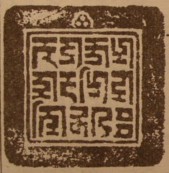
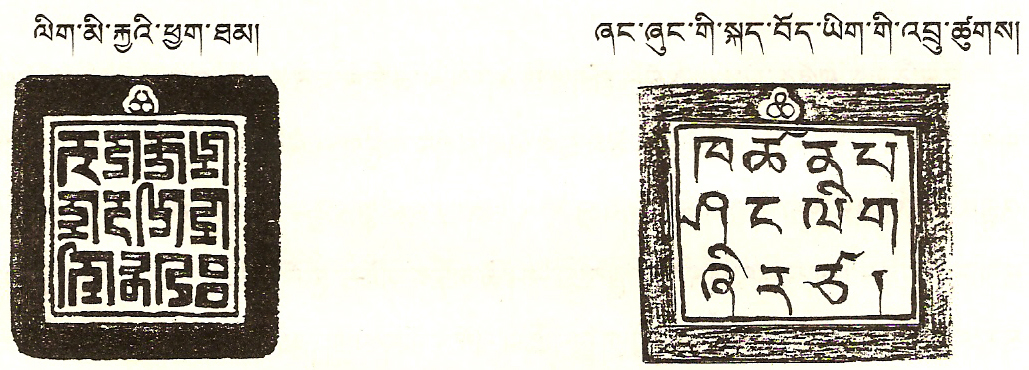
ཁ
ཆ ན པ
ཤ ང ལི ག
ཞི ར ཙ །
𑱳 𑲁 𑱽 𑱾ཤ ང ལི ག
ཞི ར ཙ །
kha cha na pa
sha nga li ga
zhi ra tsa .
(so hardly is it an abecedary, but then we never know, a good exercise to grasp the two anyway)
sha nga li ga
zhi ra tsa .
(so hardly is it an abecedary, but then we never know, a good exercise to grasp the two anyway)
𑲌 𑱵 𑲋𑲱 𑱴
𑲆𑲱 𑲊 𑲂 𑱱 (I wouldn't recognize 𑲆 if I didn't have the tibetan copy. And I would definitely not recognize 𑲊, but tibetan commanded that it is what it is (maybe some alternative form of it, maybe some other syllable altogether. I only started recognizing these scripts, so cut me some slack) and 𑲂 I wouldn't recognize as well, but it's definitely it)
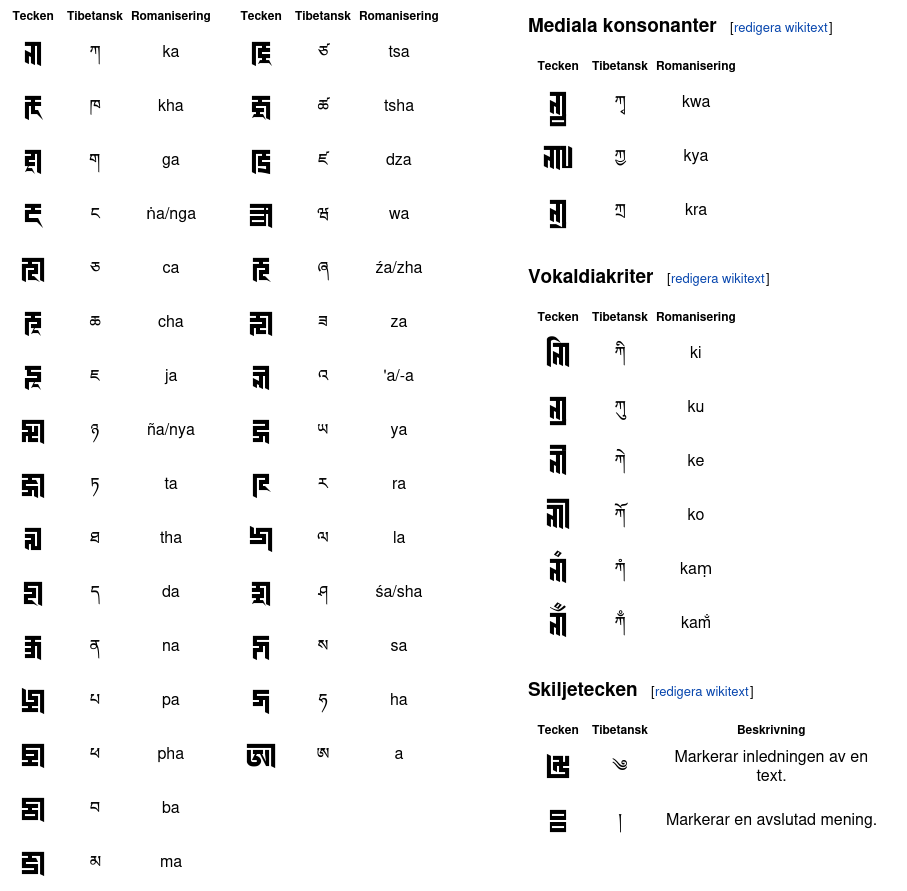
𑱰 𑱱 𑱲 𑱳 𑱴 𑱵 𑱶 𑱷 𑱸 𑱹 𑱺 𑱻 𑱼 𑱽 𑱾 𑱿 𑲀 𑲁 𑲂 𑲃 𑲄 𑲅 𑲆 𑲇 𑲈 𑲉 𑲊 𑲋 𑲌 𑲍 𑲎 𑲏
𑲒 𑲓 𑲔 𑲕 𑲖 𑲗 𑲘 𑲙 𑲚 𑲛 𑲜 𑲝 𑲞 𑲟 𑲠 𑲡 𑲢 𑲣 𑲤 𑲥 𑲦 𑲧 𑲩 𑲪 𑲫 𑲬 𑲭 𑲮 𑲯
𑲰 𑲱 𑲲 𑲳 𑲴 𑲵 𑲶
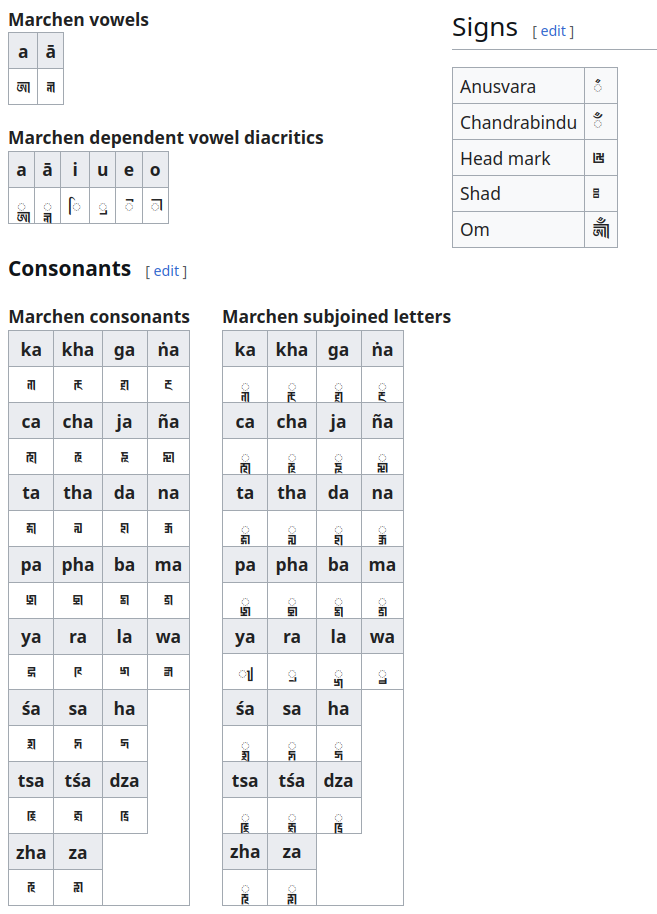
The Marchen scripts has some similarities with the Tibetan scripts and Lantsa but at the same time differs considerably from these. It also differs from other writing systems in the Bon tradition, such as Marchung, Pungchen, Pungchung and Drusha. A feature the Marchen script shares with Tibetan script and Lantsa are the special subjoined variants of the letters wa, ya and ra. The vowel diacritics are most similar to those of Drusha. A distinguishing feature of the Marchen script is the presence of a left-facing swastika, a symbol of the Bon religion, which is used both to write the letter nya and as a punctuation mark.[3]
The Marchen script consists of 30 consonant letters, four vowel diacritics, a vowel length marker -a and two diacritics for nasalization (corresponding to candrabindu and anusvara). Each consonant has an accompanying vowel a which can be modified with the four vowel diacritics. Consonant clusters are written just like in Tibetan script by stacking two or more consonants on top of each other vertically. Just as in Tibetan script, there are simplified forms for medial w, y and r. However, there is no simplified form of initial r. Unlike in Tibetan script, there is no sign to mark syllable boundaries, which means that ambiguities can sometimes arise.[3]
The Marchen script can be written in two different styles: one with thick angular letters and one with thin rounded ones.[3]
𑲊 is Ra (the closest to R they have and looking like that)
and the way zha (𑲆) is basically derivative of that ra reminds me of chinese R read as Zh[ʒ]
and some tibetan:

this was not a very inspiring chapter and that is how it goes when I have no weed
simp as the opposite of pimp (and both are imps)
the opposite actions of crɅsh and crVsh
The subtle difference between presence and pretence
титька being the same thing as сиська exposes the fundamental unity of s and t (the way б and в make the claster, they also do, the way p and f are the same letter in hebrew, the way g and h are? was there some k when c was г?)
бв гд?
жз кх?
??????
пф ст?
бв зд (if c was г, and с is s, could it be z?)
пф ст
B Г
P Т hm...
where does it place words like sit in comparison to tit?
I guess I'm a little dislexic: having written fuck instead of fact and not noticing it is a dangerous symptom (not fack or fuct, fuck)
Psalsms 119 goes in alphabetic order, 8 lines for each letter,
except for whatever reason they took one line from ש and gave it to ר.
палочки прут (я писал раньше что без ганжа, и вот нарыл палочек, которые повыбрасывал, и двух махоньких палочек хватило чтоб вот)
B D
F Г
М Λ
П Т
that is pretty much greek. That tells that greek was the earliest alphabet. Even their Δ aligns with ᛒ
also ΡΦ could be added to this. :Latin P wouldn't work, but it would work well with the other pairing story:
Б В
K Ж
M Λ (? (both are sonors, l could be seen as much shorter sonor))
Ф P
C S here single forms are fricative, while double forms are not, thus double forms are longer.
But many examples are not in alphabetic ordre, while the double~labial and single~lingual symmetry is way more alphabetic with only ΦΡ being not. Unless fey is pey, and then it is.
Ρ as final then reflects the b d
p q
symmetry,
with b d playing the BD symmetry
and p q playing the p f one
(as p is г-like п, you can see how F comes in handy here too)
B beit(house)p q
symmetry,
with b d playing the BD symmetry
and p q playing the p f one
(as p is г-like п, you can see how F comes in handy here too)
D daled (door) plays very well,
but hebrew can only add
single ד and double ב and
single נ and double מ (especially when it is ם, and in that light L-like נ comes in handy.
дельта реки ~ дверь реки?
Δ-образная дверь? не только вигвама, но и
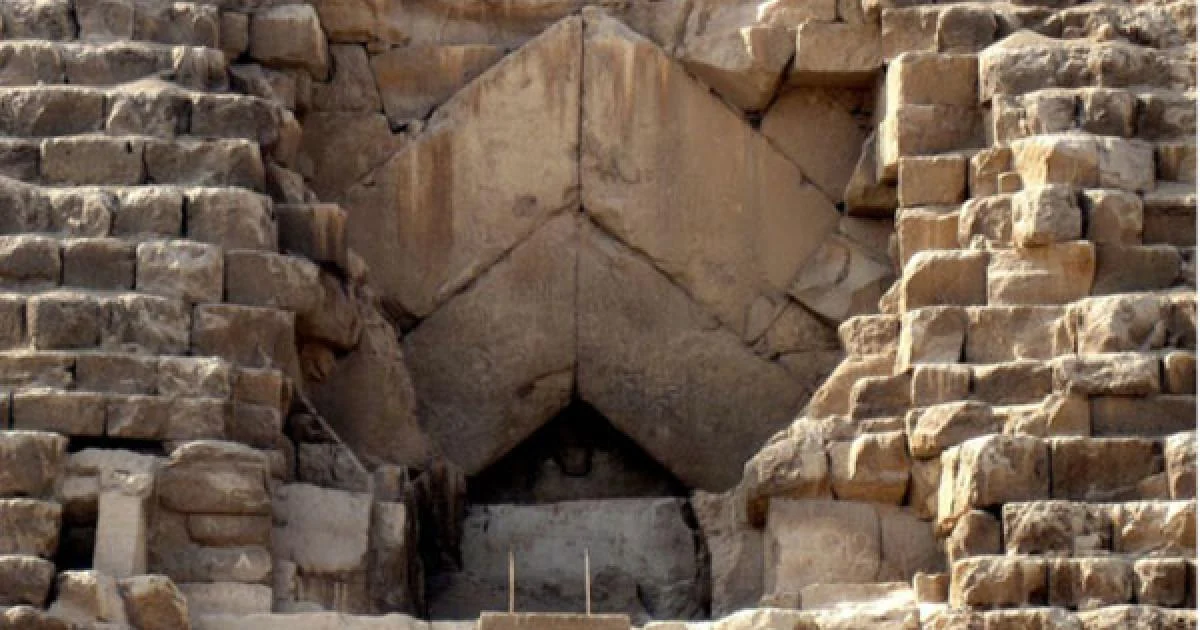
если внешие блоки могли быть заливными, то как объяснить внутренние?
и карта гугла научилась в 3д, но что случилось с малой пирамидой? глюооки
ю сходно с oo в своей
неожиданной u-образности
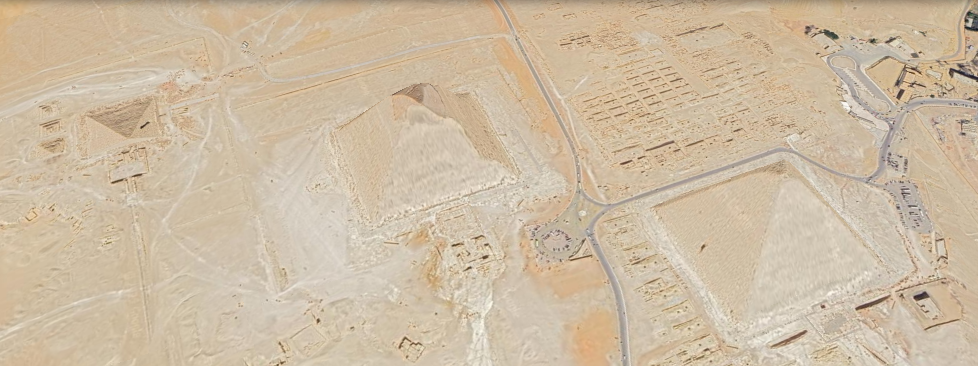
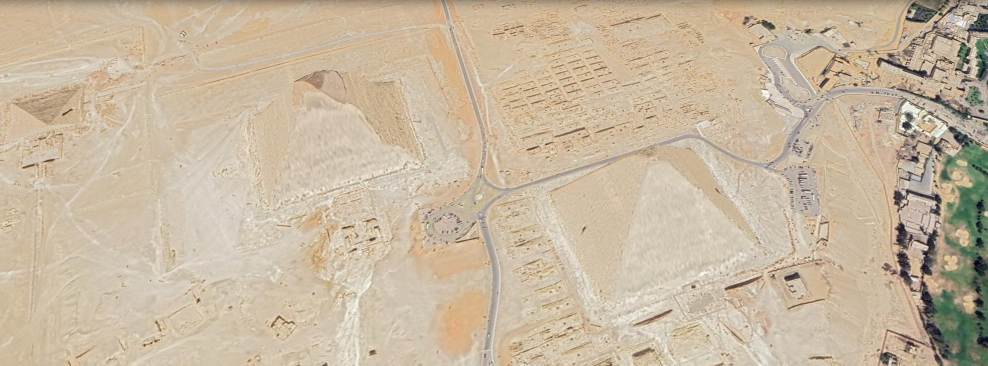
ещё раз для тех кто умеет в кросс-айд-вижн:

похоже, что малая пирамида не только покорёженная, но и плоская
but back on track:
what should I do with the counter-examples such as V and X?
I can see Х[h] as double C
and the X[ks] as c[k] and с[s] and it may even tell that ↄ could stand for k, while c was s, or visa versa.
And what about V? it is literally half the X (be they 5 and 10 or 4 and 8)
another obvious exception is W being double V, but then this pair aligns into the long-short symmetry.
And in that context W is double V, not double U (double ю never made sense to me)
so, basically pairs not laying into either of the two symmetries are WU and XV, both are in the final line, past T, in symbolic afterlife where everything is in reverse (not growth but decay, not ΛΜΝ, but uvw (not the same order whichever way you look at it, but the order varies between national alphabets, and position of M is still a huge question (the direct inversion would sugest ΜΛΝ instead of ΜΝΛ)))
There's a theory that hebrew is a code for greek
with Бафомет being София in reverse:
איפוש
תמופב
or
שופיא
בפומת
using this key:
א ב ג ד ה ו ז ח ט י כ
ת ש ר ק צ פ ע ס נ מ ל
but then I tried few hebrew words and they didn't deliver,
yet I forgot that I know neither hebrew nor greek.
תמופב
or
שופיא
בפומת
using this key:
א ב ג ד ה ו ז ח ט י כ
ת ש ר ק צ פ ע ס נ מ ל
but then I tried few hebrew words and they didn't deliver,
yet I forgot that I know neither hebrew nor greek.
ç
From ⟨ꝣ⟩, the Visigothic form of the letter z, which resembled a C with a subscript z.
Visigoth /ˈvɪzɪɡɒθ/ (plural Visigoths) Any member of an ancient East Germanic tribe, one branch of the Goths (the Ostrogoths being the other), which participated in several wars with Rome and established a kingdom with Toulouse for its capital.
Mallory & Adams (2006): The Oxford Introduction to Proto-Indo-European and the Proto-Indo-European World
English terms borrowed from Late LatinEnglish terms derived from Late LatinEnglish terms derived from GothicEnglish terms derived from Proto-GermanicEnglish terms derived from Proto-Indo-EuropeanEnglish 3-syllable wordsEnglish terms with IPA pronunciationEnglish lemmasEnglish nounsEnglish countable nounsen:Germanic tribes
пись-пись as the opposite of спи-спи
Bow
Tопор (graphically the letters expose that. At first I though "hammer" but молот Тора топор)
(also in line with the gender roles)
(it's harder for a woman to use an axe in a battle, than a bow and arrows)
Axe
Bow are also good: A added by guys, women started with B
Be There
(et)
Feel High
something along these lines
дочь, ты пила?
мама, я топор.
(вспомнил этот анекдот после того как подумал насколько лук похож на пилу и насколько проще слабой женщине управляться пилой (с которой терпение и труд всё перетрут) чем с топором (у которого сила удара имеет решающее значение)
Latin plural suffix ae is read as æ[э] in medieval latin, yet it is told to be read as ай[ʌɪ] in classical latin, and that makes it very similar to russian plural suffix и[i] because technically the suffix is not ae, but e, so singular deva, but plural devae, and it shows how close e and i are.
letter instead of level (I typed it like that and didn't notice, and it didn't make much sense, so dislexic I am I suppose)
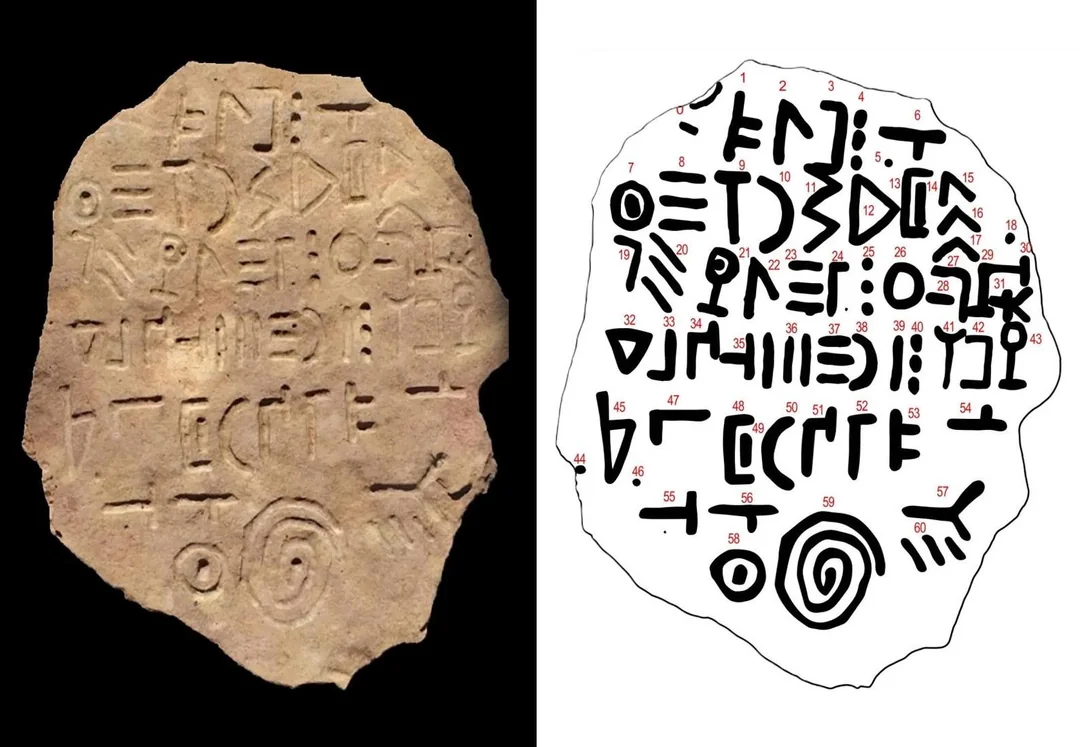
I like give the link for where I took it, though discussions on that site are always retarded, but the image is better than anywhere, so I must give them that
it is just what the waves of the internet brought me toughday I have no idea if it's legit or not
Today is going to be
a big day, but that accidental misspelling was totally
accidental
(I'm going to try my alma mater again with a new version of AMS treatise)
(and then I'm going to go to a magician lady to apply as her student)
(but hopefully it will not be tough)
(I'm going to try my alma mater again with a new version of AMS treatise)
(and then I'm going to go to a magician lady to apply as her student)
(but hopefully it will not be tough)
Here somebody attempt to link phoenician to paleohispanic, which is better than what I saw before:

yet what they placed as an analogue of z is o in palehispanic (though they have very similar s (yet with three horizontal lines and da/ta with one horizontal line (and they're as if o is labial and even, while da and s are lingual and odd))
and the next one is de/te and not h. or whatever, yet in other forms of it the next letter is that de/te, so ..well, the scripts are definitely incredibly similar, but my take is that phoenician derived from paleohispanic and not the other way around.
k is crescent in the northern PH, very nice, it reminds old-chinese too.
They compare z to m, which is something painfully familiar (M~Ϻ and ᛘ~ᛉ, and I think I also met it elsewhere)
What they compare to q is transliterated as r in the tables I can look into.
But overall similarity between the shapes is rather striking. Good work, fellows.
okay, I left these three pages to Pitina and Budeiko, we'll see what they can tell:
.png)
B D Θ
F Г Z
M Λ N
П Т 𐌆
This is represented within vowels by a very similar manner:
aa is o
oo is u
ee is i
(as if aa~o and oo~u work in double~labial)
(and ee~i is working by long~double. yet is i necessarily long? no, but it's more prolonged in the sense of the olips.)
I used to explain the position of the letters, now I approached the explanation of their shapes.
Yet vowels are so much different:
They often begin with A being 𐤀 which is a head of the bull, and they usually stop at that.
And how can I not wonder if it is not ᛓ, for bull and mule and вол and бык are all so much moo
If anything, A is ..I wanted to say that 𐤀 is goat, but A does look like bull. And it could be written this unusal upside down manner by those who rode them. They didn't see them as the opposing force, they would see tghem them as an ally, with horns being on your side, even though tactically p technically pointing at the rider most of the time.
A front of the montorciycle it can be cool. But then probably they do them horizontally because it's more reliable like that. Did riders have sheathes on the horns they would unsheathe when the predator attacked and held one horn to point the other one into the right direction?
ა as horn?
貓 as can cat [māo] cangjie input 月竹廿田 (BHTW)
豸+ 苗
豸 beast with long vertebral column
legless insect
(obsolete) to solve, solution cangjie input 月尸竹竹 (BSHH)
苗 From Proto-Sino-Tibetan *(m/b)rəw (“grain; seed; lineage”) (STEDT); see 物 (OC *mɯd, “thing, matter, substance”)
иероглиф для кошки: 貓 (слева нарисована кошка: голова, лапы, хвост)
https://en.wiktionary.org/wiki/%E8%B2%93
разбирается на иероглиф для "зверя с длинным позвоночником":
https://en.wiktionary.org/wiki/%E8%B1%B8
который является смысловой частью
и на иероглиф означающий росток (верхняя часть означает траву, нижняя поле с тропинками или ручейками ирригационными, потому росток, трава из поля) росток ~ подросток, ребёнок (языки пламени буквально ростки огня, дети огня, отпрыски огня) и если значение он несёт, то маленький в противовес собаке, которая (судя по основе иероглифа 犬) большая (大)) но использующаяся в качестве "фонетика" (звуковой части) потому что тоже звучит как мао (т.е. председатель мао это председатель мяу, председатель кот (и людей этот хищник сожрал будь здоров)) на русском этих статей в википедии нет, будет сложно вызывай
毛 [máo] тоны только отличают гусеничку от волос, но изначально гусеничка это волосы. видимо лохматые гусенички у них там в основном.
Но основным значением кошка была (разговаривает же, кого ещё как не их называть. И они, наверное, отзываются на звуки похожие их партнёров звукам)
т.е. кошка → волосы → гусеница. Таков скорей всего был семантический дрифт. Несколько звучащих слов озвучили всё остальное.
а значит если донгба или ещё какая письменность киитая имеет волосы и росток производными от кошки, то та письменность ближе к исходникам чем кай ханьская хуян хуйня
mantra ~ mandala (this came to me in the bath session where I decided to let it flow in undisturbed and look what it brought! (now I wonder if something else great wasn't lost, but I know I have registered it and the next time I stumble upon the concept which were given to me, hopefully there shall be laying those revelations. Either way, look what this approach brought! (unless that's not coincidental, lol)))
A mandala (Sanskrit: मण्डल, romanized: maṇḍala, lit. 'circle', [ˈmɐɳɖɐlɐ]) is a geometric configuration of symbols. In various spiritual traditions, mandalas may be employed for focusing attention of practitioners and adepts, as a spiritual guidance tool, for establishing a sacred space and as an aid to meditation and trance induction. In the Eastern religions of Hinduism, Buddhism, Jainism and Shinto it is used as a map representing deities, or especially in the case of Shinto, paradises, kami or actual shrines.
In Hinduism, a basic mandala, also called a yantra (which is closer to mantra from the other side)
Yantra (यन्त्र; lit. 'machine'/'contraption'[1]) is a geometrical diagram, mainly from the Tantric traditions of the Indian religions. Yantras are used for the worship of deities in temples or at home; as an aid in meditation; and for the benefits believed given by their occult powers based on Hindu astrology and tantric texts. They are also used for adornment of temple floors, due mainly to their aesthetic and symmetric qualities. Specific yantras are traditionally associated with specific deities and/or certain types of energies used for accomplishment of certain tasks or vows that may be either materialistic or spiritual in nature. They become a prime tool in certain sadhanas performed by the sadhaka, the spiritual seeker. Yantras hold great importance in Hinduism, Jainism, and Buddhism.
and I saw there yantra with letters.
And it happened to be the letters. The alphabet:
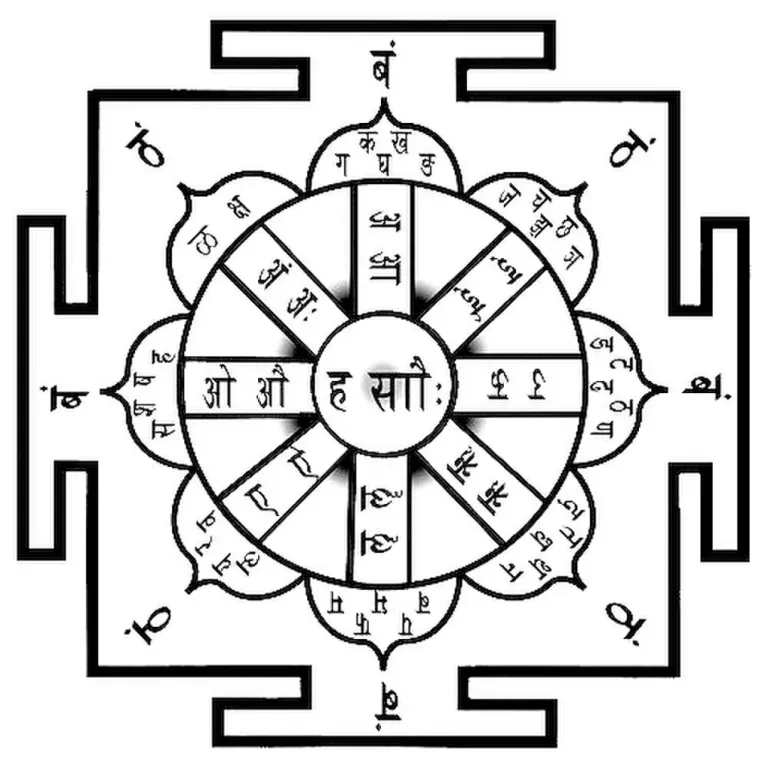
Ashtamatrika yantra diagram (Ashtamatrika links to Matrikas)
Matrikas (Sanskrit: मातृका (singular), IAST: mātṛkā, lit. "mothers")[2] also called Mataras or Matri, are a group of mother goddesses who are always depicted together in Hinduism. The Matrikas are often depicted in a group of seven, the Saptamatrika(s) (Seven Mothers).[3] However, they are also depicted as a group of eight, the Ashtamatrika(s).[4] In the Brihat Samhita, Varahamihira says that "Matrikas are forms of Parvati taken by her with cognizance of (different major Hindu) gods corresponding to their names."[5] They are associated with these gods as their energies (Shaktis).[6] Brahmani emerged from Brahma, Vaishnavi from Vishnu, Maheshvari from Shiva, Indrani from Indra, Kaumari from Kartikeya, Varahi from Varaha and Chamunda from Chandi.[7] And additionals are Narasimhi from Narasimha and Vinayaki from Ganesha.
and here I thought that I know of three mothers. Are the seven mothers the seven double letters?
:and there, this
The 7th century Sanskrit author Banabhatta mentions the propitiation of Matrikas by a Tantric ascetic in his Harshacharita.[96] The text mentions use of a māṭrmandala (mandala of the Matrikas) or a Yantra along with a special anusthana (ritual) to cure the ailing king.[21] The text describes "young nobles (of the king) burning themselves with lamps to propitiate the Matrikas in a temple dedicated to the Matrikas (maṭṛ-gṛha). Banabhatta's Kadambari, Bhasa's Cārudatta, Shudraka's Mrichakatika mention the ritual offerings of food and shrines of Matrikas at crossroads.[33] Other offerings include flowers and clothes and meat and wine for some Matrikas. Tantric works like Tantrarāja-Tantra (unknown date, author) and Kulacūḍāmaṇi discuss the worship of Matrikas as Shaktis or letters of the alphabet.[97] A process of this worship, Matrika-nyasa (lit. "installation of the Mothers"), is described in Devi Gita, part of Devi Bhagavata Purana.[98] It involves installation of powers of Matrikas – as letters of the alphabet – in one's body, by "feeling the deity worshipped in different parts of the body" like head, face, anus and legs and reciting mantras.[99] The Hrillekha-matrika-nyasa, a more specialized form of Matrika-nyasa, combines the installation of "most powerful set of all letters (Matrikas)" with the seed syllable Hrīṃ of Goddess Bhuvaneshvari.[100]
but I still wonder why seven mothers if the yantra has 8 petels petals петель!
अआइईउऊऋॠऌॡएऐओऔअंअः कखगघङहचछजझञयशटठडढणरषतथधनलसपफबभमव ०१२३४५६७८९ ➰↬
अआइईउऊऋॠऌॡ{एऐ}{ओऔ}अं अः
बं
क ख
ठं ग घ ङ ठं
च छ
ळ क्ष ज झ ञ
अ
अं आ इ
अः ई
ह ड
ष ट
बं श ओ औ ह[ha] साौः[saaauh] उ ऊ ढ बं
स ठ
ण
ऐ ॠ
ए ॡ ऋ
व ऌ द
र ध त
य ल न थ
म भ ब
ठं फ प ठं
बं
as you can see, grouping is different than in this one:
अआइईउऊऋॠऌॡएऐओऔअंअः कखगघङहचछजझञयशटठडढणरषतथधनलसपफबभमव ०१२३४५६७८९ ➰↬
अआइईउऊऋॠऌॡ{एऐ}{ओऔ}अं अः
ब and ठ ...They are B and T!!!! B and D!!!!!
I had some difficulty with ळ, becusae it is not in my collection of sanskrit. The field is so much more diverse:
ऄअआइईउऊऋऌऍऎएऐऑऒओऔकखगघङचछजझञटठडढणतथदधनऩपफबभमयरऱलळऴवशषसहऺऻ़ऽाि0ीुूृॄॅॆेैॉॊोौ्ॎॏ
ॐ॒॑॓॔ॕॖॗक़ख़ग़ज़ड़ढ़फ़य़ॠॡॢॣ।॥०१२३४५६७८९॰ॱ
ॲॳॴॵॶॷॸॹॺॻॼॽॾॿঀঁংঃঅআইঈউঊঋঌএঐওঔকখগঘঙচছজঝঞটঠডঢণতথদধনপফবভমযরল
শষসহ়ঽাি0ীুূৃৄেৈোৌ্ৎৗড়ঢ়য়ৠৡৢৣ০১২৩৪৫৬৭৮৯ৰৱ৲৳৴৵৶৷৸৹৺৻ৼ৽৾
and only few first lines were devanagari, here some weird scripts, of some I never even heard of
ਁਂਃਅਆਇਈਉਊਏਐਓਔਕਖਗਘਙਚਛਜਝਞਟਠਡਢਣਤਥਦਧਨਪਫਬਭਮਯਰਲਲ਼ਵਸ਼ਸਹ਼ਾਿ
0ੀੁੂੇੈੋੌ੍ੑਖ਼ਗ਼ਜ਼ੜਫ਼੦੧੨੩੪੫੬੭੮੯0ੰੱੲੳੴੵ੶ઁંઃઅઆઇઈઉઊઋઌઍ
એઐઑઓઔકખગઘઙચછજઝઞટઠડઢણતથદધનપફબભમયરલળવશષસહ઼ઽાિ0ીુૂૃૄૅેૈૉોૌ્ૐ
ૠૡૢૣ૦૧૨૩૪૫૬૭૮૯૰૱ૹૺૻૼ૽૾૿ଁଂଃଅଆଇଈଉଊଋଌଏଐଓଔକଖଗଘଙଚଛଜଝଞଟଠଡଢଣତଥଦ
ଧନପଫବଭମଯରଲଳଵଶଷସହ଼ଽାି0ୀୁୂୃୄେୈୋୌ୍୕ୖୗଡ଼ଢ଼ୟୠୡୢୣ୦୧୨୩୪୫୬୭୮୯୰ୱ
୲୳୴୵୶୷ஂஃஅஆஇஈஉஊஎஏஐஒஓஔகஙசஜஞடணதநனப
மயரறலளழவஶஷஸஹாி0ீுூெேைொோௌ்ௐௗ
௦௧௨௩௪௫௬௭௮௯௰௱௲௳௴௵௶௷௸௹௺
0ఀఁంఃఄఅఆఇఈఉఊఋఌఎఏఐఒఓఔకఖగఘఙచఛజఝఞటఠడఢణతథదధనపఫబభమయరఱలళఴవశషసహ
఼ఽాి0ీుూృౄెేైొోౌ్ౕౖౘౙౚౝౠౡౢౣ౦౧౨౩౪౫౬౭౮౯
౷౸౹౺౻౼౽౾౿ಀಁಂಃ಄ಅಆಇಈಉಊಋಌಎಏಐಒಓಔಕಖಗಘಙಚಛಜಝಞಟಠಡಢಣತಥದಧನಪಫಬಭಮಯರಱಲ
ಳವಶಷಸಹ಼ಽಾಿ0ೀುೂೃೄೆೇೈೊೋೌ್ೕೖೝೞೠೡೢೣ೦೧೨೩೪೫೬೭೮೯ೱೲೳ
0ഀഁംഃഄഅആഇഈഉഊഋഌഎഏഐഒഓഔകഖഗഘങചഛജഝഞടഠഡഢണതഥദധനഩ
പഫബഭമയരറലളഴവശഷസഹഺ഻഼ഽാി0ീുൂൃൄെേൈൊോൌ്ൎ൏ൔൕൖൗ൘൙൚൛൜൝൞ൟൠ
ൡൢൣ൦൧൨൩൪൫൬൭൮൯൰൱൲൳൴൵൶൷൸൹ൺൻർൽൾൿඁංඃඅආඇඈඉඊඋඌඍඎ
ඏඐඑඒඓඔඕඖකඛගඝඞඟචඡජඣඤඥඦටඨඩඪණඬතථදධනඳපඵබභමඹයරලවශ
ෂසහළෆ්ා0ැෑිීුූෘෙේෛොෝෞෟ෦෧෨෩෪෫෬෭෮෯ෲෳ෴
กขฃคฅฆงจฉชซฌญฎฏฐฑฒณดตถทธนบปผฝพฟภมยรฤลฦวศษสหฬอฮฯ ะัาำิีึืฺุู฿ เแโใไๅๆ็่้๊๋์ํ๎๏๐๑๒๓๔๕๖๗๘๙๚๛ ກຂຄຆງຈຉຊຌຍຎຏຐຑຒຓດຕຖທຘນບປຜຝ
ພຟຠມຢຣລວຨຩສຫຬອຮຯະັາຳິີຶື຺ຸູົຼຽເແໂໃໄໆ່້໊໋໌ໍ໎໐໑໒໓໔໕໖໗໘໙ ໜໝໞໟ
ༀ ༁༂༃༄༅༆༇༈༉༊་༌།༎༏༐༑༒༓༔༕༖༗༘༙༚༛༜༝༞༟༠༡༢༣༤༥༦༧༨༩༪༫༬༭༮༯༰༱༲༳༴༵༶༷༸༹༺༻༼༽༾༿ ཀཁགགྷངཅཆཇཉཊཋཌཌྷཎཏཐདདྷནཔཕབབྷམཙཚཛཛྷཝཞཟའཡརལཤཥསཧཨཀྵཪཫཬཱཱཱིིུུྲྀཷླྀཹེཻོཽ ཾཿ0྄ཱྀྀྂྃ྅྆྇ ྈྉྊྋྌྍྎྏ0ྐྑྒྒྷྔྕྖྗྙྚྛྜྜྷྞྟ0ྠྡྡྷྣྤྥྦྦྷྨྩྪྫྫྷྭྮྯ0ྰྱྲླྴྵྶྷྸྐྵྺྻྼ྾྿ ࿀࿁࿂࿃࿄࿅࿆࿇࿈࿉࿊࿋࿌࿎࿏࿐࿑࿒࿓࿔࿕࿖࿗࿘࿙࿚
ကခဂဃငစဆဇဈဉညဋဌဍဎဏတထဒဓနပဖဗဘမယရလဝသဟဠအဢဣဤဥဦဧဨဩဪါာိီု0ူေဲဳဴဵံ့း္်ျြွှဿ၀၁
၂၃၄၅၆၇၈၉၊။၌၍၎၏ၐၑၒၓၔၕၖၗၘၙၚၛၜၝၞၟ0ၠၡၢၣၤၥၦၧၨၩၪၫၬၭၮၯၰၱၲၳၴၵၶၷၸၹၺၻၼၽၾၿႀႁႂႃႄႅႆႇႈႉႊႋႌႍႎႏ
and I still had difficulty with क्ष, and it is क् + ष
ङ and ड, I never noticed that devanagari has diacritized letters. what are they?
ङ[Ṅa]
ड[ḍa]
ड़ (ṛa)
ड[ḍa] A sound A kind of drum or tabor Submarine fire Fear An epithet of Śiva
ङ[Ṅa] 1. Power of smelling. 2. Smell. Fragrance. 3. A name of Shiva. Bhairav. 4. Subject of senses. Sensual object (ko).
5. Desire. Aspiration. Spruha (ko). Cha
I only started scratching it, and already I can see that one form of ड is about ears and other is nose.
also compare र [ra] and स [sa] (they remind of how proximate R and S are in lating
ख is that र combined with व [va] which doesn't make much sense, but maybe it does later who knows
ban
ka kh
than ga gh na than
ca cha
la ksha ja jh na
a
an aa i
ah[ae] ee[ii]
ha da
sh ta
ban sh o[u] au[o] ह[ha] साौः[saaauh] u oo[u:] dh ban
sa th
na
ae[e] ri
e[i] l? ri
va[wa] l̥? da
ra dh ta
ya la na th
ma bh ba
than ph[fa] pa than
ban
here's a writing system of sikhs:
ਁਂਃਅਆਇਈਉਊਏਐਓਔਕਖਗਘਙਚਛਜਝਞਟਠਡਢਣਤਥਦਧਨਪਫਬਭਮਯਰਲਲ਼ਵਸ਼ਸਹ਼ਾਿ
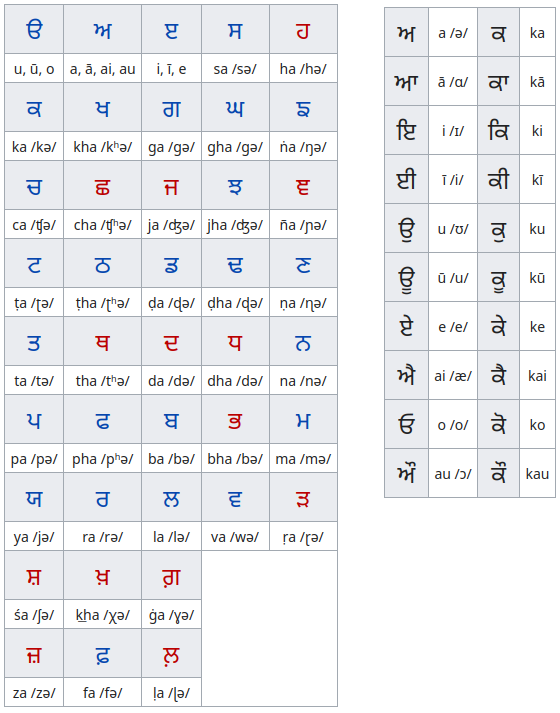
many shapes are directly of devanagari, or they're just the same (how would I know who borrowed from whom) but then some shapes are different,
and the shape reminding devanagari's म[m] is ਸ[s] in gurmukhi (MϺ)
and I wonder how they distinguish ਬ[ba] and ਥ[tha]
and some shapes are similar to european turned upside down: ਬ[B] and ਪ[п(п)] and ਰ(рRU[r])
and ਲ is so obviously upside down helmet, and being [la] it reminds paleohispanic R so much, that come on, they may tell that it's invented in 16th century CE, but it probably was compiled and standartized then, probably they didn't speak of the antiquity of that writing system not to trigger the oppressors whoever they were then (muzzos or europeans, both are fuckers who would mind)
here, compare ਲ[L] to paleohispanic R:
.jpg)
and here:
.jpg)
god ~ guard
еврей и вред однокоренные, само слово отвратительно, как вор, как врун, как юрист, ювелир, юденич следующая первая ссоциация, кх.з. почему.
не ожидал, что слово отвратительно однокоренное с еврей
вр как врач, как врун, как выручает, как выручит, как доктор.
Разное воспариятие буквосочетания вр wrong or worth it?
whornog
wo (the paint is a tyopo of this one, but goes well with whore she''s who're)
wrong is he wwho верит
Lies he who believes
belief and lie
еврей и вред, врун
be leave (we always let them go, like why, like we like them. weird. as it is)
let's love ~ let's live (together to both verbs)
I am insane. Well, why didn't I tell you. (yet you have to have a devil the Devil in you to succeed in any of arts)
(that was an exclamation over some ackward
behaviour mostly, I'm sorry about that)
I am busy with something I don't like. Which is..
something others don't like. That was what caused that
exclamation: a friend told that he doesn't see application to
my thing. To this thing, can you believe it! I explained to
him that if I was Mendeleev who explained you about his table
you would probably also say that you don't see any
significance of that periodization. And he agreed, but I
stayed mad. He sees virtue in telling me how something I want
to do is not going to work.AI
Overview: Some famous quotes by Voltaire include: "Doubt
is not a pleasant condition, but certainty is absurd," "It
is better to risk saving a guilty person than to condemn
an innocent one," "The best is the enemy of the good,"
"Those who can make you believe absurdities can make you
commit atrocities," and "Love truth, but pardon error."
"Common sense is not so common""If there were no God, it
would be necessary to invent him" "Faith consists in
believing when it is beyond the power of reason to
believe"
no va ~?~ tra (~?~ is some missing link I had in a thought
before I started writing, noe lody now
lost)n~ν~v
me~we they&thee(they~твои (ты и твои суть ответ на то почему вторая и третья лица suffixed т-))
tra can be seen in your, yet it is also not the thought I had, in that thought no wa tra were the three types of conors. and m could be born og f both no and wa, which felt as an unity. nos we me and yet tra felt like something very related, yet I lost how it was almost the same with no and va.
queue is tail in french
and кю indeed (commies create queues, everything takes a queue some of them were decades long, and what an irony that it is french)
qu'on connait qu'un [ку́н конэ́ кя́н]
в текстах для доклада следует ставить интонационные ударения на словах, которые следует сильной долей бить. даже если они односложные u ближе к а, я (а это я которое поставили первым? изменив и́тос на индивидуалистский. Аз, I. Ik. Ik tells that it was eastern roorder first.
I'm is a cope then? No, it's just the border. The hunns were on the east and they fought with english tradition of I'm instead of ik. germans is where they stopped? But germans adopted latin alphabet, which is mostly ladies first. But only after it was IK instead of I'm. That would be a compropmise they could take, and brits probably forgot how it was. Or some otf them know it. Now I revealed it. But to whom? To their vaults maybe, for them I may become a hero who didn't go big, bu then we'll see, maybe I learn to behave and they take a chance on that.
“Mieux vaut un demon qu'on connait qu'un ange qu'on connait pas!” is a beautiful french
But why should I listen toe the devil: Le mensonge n'est un vice que quand il fait du mal; c'est une très grande vertu, quand il fait du bien. Soyez donc plus vertueux que jamais. Il faut mentir comme un diable, non pas timidement, non pas pour un temps mais hardiment et toujours.
and I didn't find the first quote in
french, so could be a fake one.
who knows if it's false or not, but I appreciated it, exposing my self as a demon.
who knows if it's false or not, but I appreciated it, exposing my self as a demon.
but basically french is not cool: tempered a very solid word, while in french it's "томперэ́й" written differently for male (tempéré) and female (tempérée) yet sounding exactly the same. And graphically it's double female and single male, which is in accord with how labials are double and female, while linguals are male and single. и тогда мужик говорит Да!, а баба ное т: mais, но, N nasal and thus of M, sonor, nose sone of song and sonor? г ~ r
Si Dieu nous a faits à son image, nous le lui avons bien rendu.
Voltaire is so funny!!!
did [афэ́] a fait ~ va avait [авэ́] had?
почему этому в школах не учат?
do [фэ́] fait ~ vait vais [вэ] go (in some context, not imperative: je vais venir I will come (a form of "going to" or something, only coming to instead. some jokes may be based on this))
but it seems vais is not a word, yet I found Venus: nous fûmes venus [ну фюм вэню́] we have come
fûmes is some weird form of were
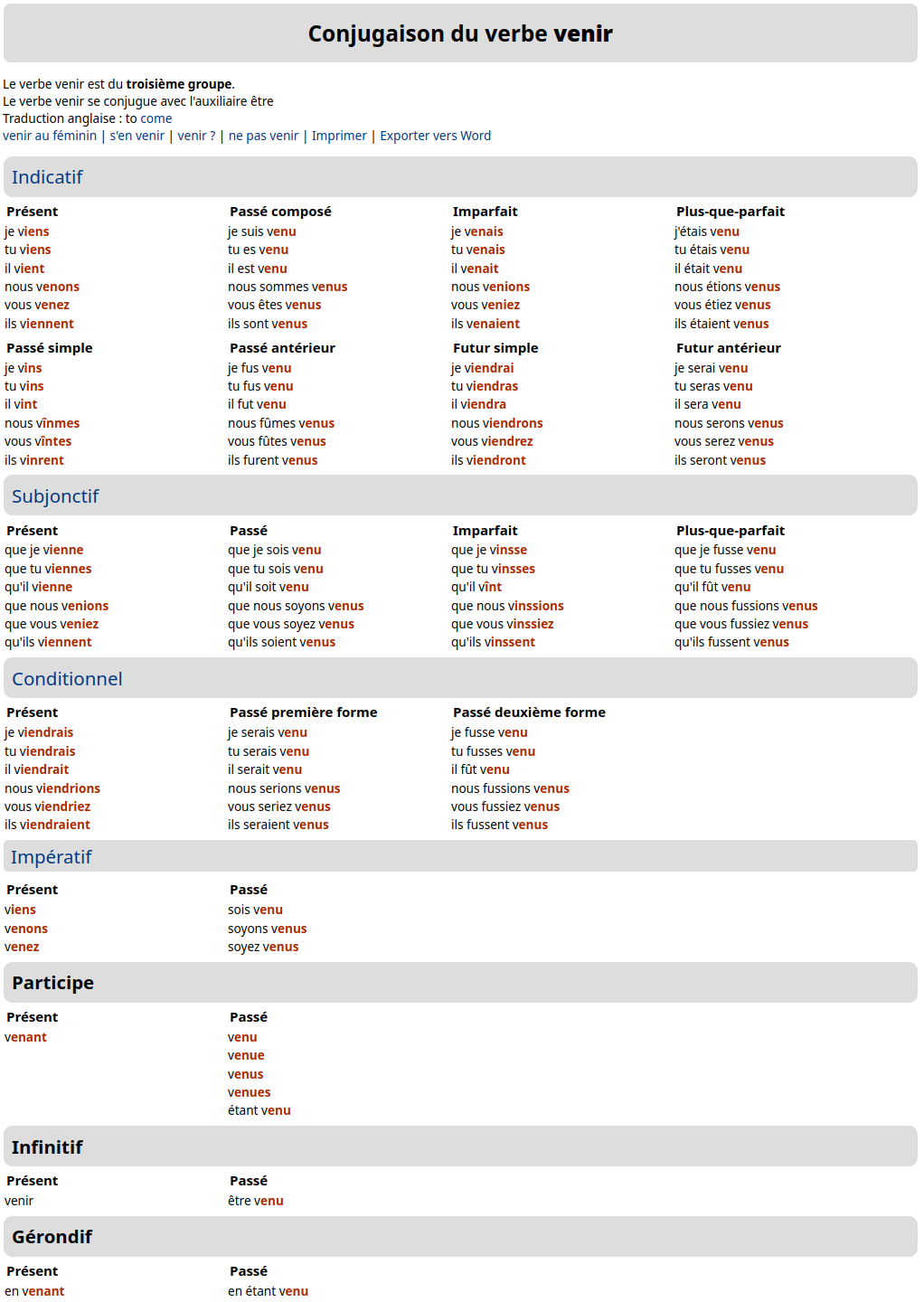
Now let's look at that fûmes:
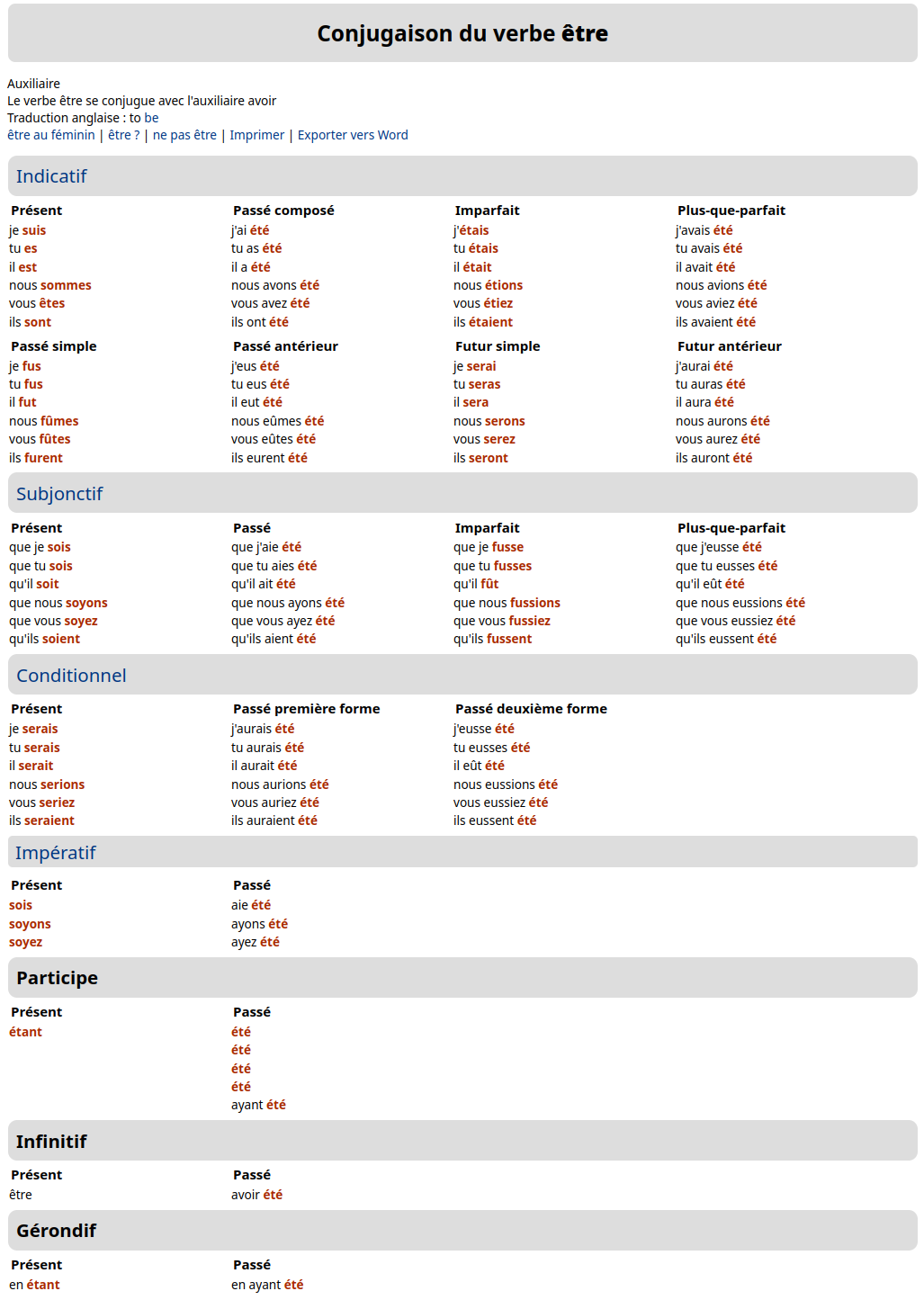
and last but not least:
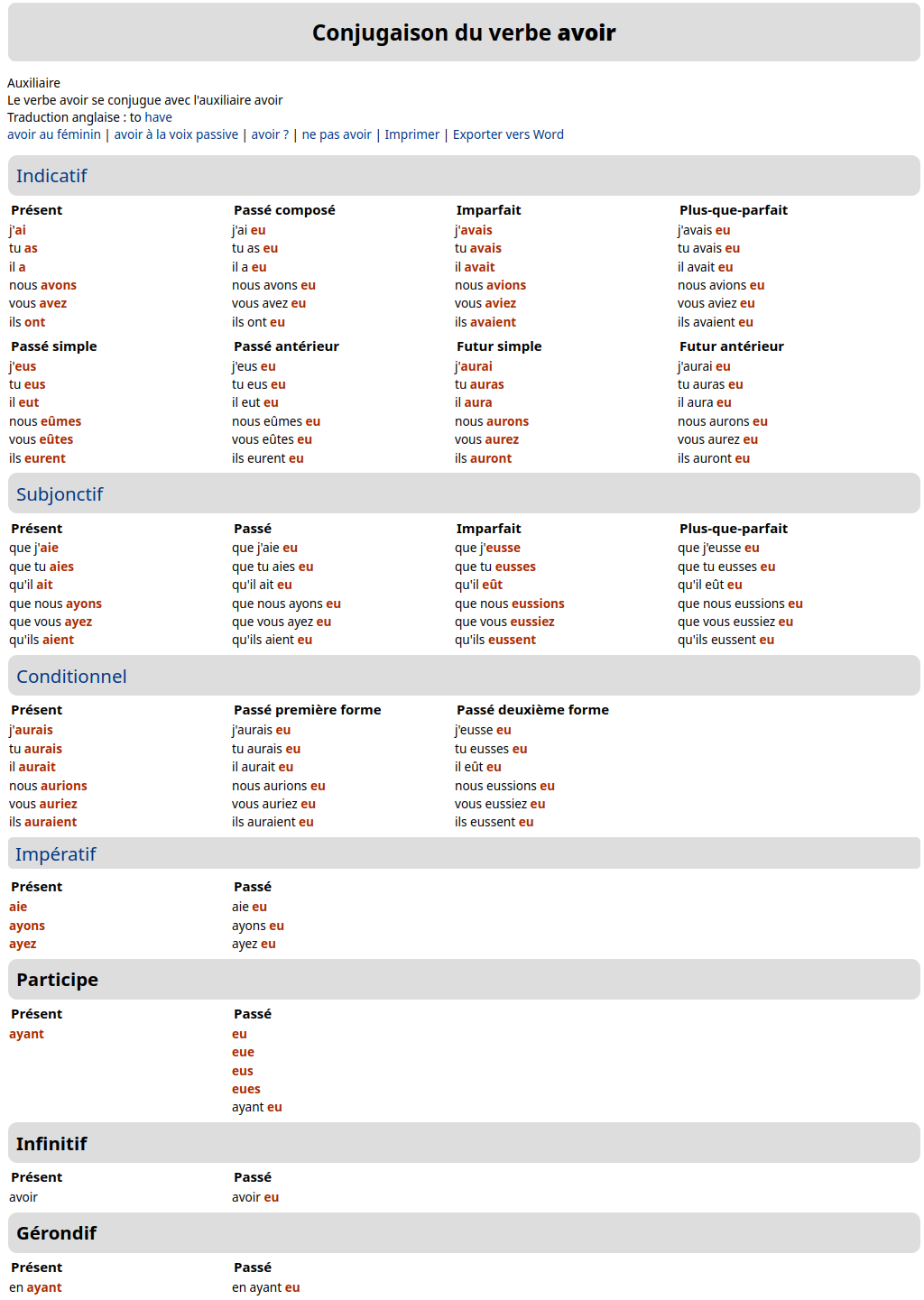
french mutated so uniquely that naturally it hides some misteries
anyway, how is one supposed to know all those forms for just one word? and why? But then doesn't that verbosity have advantages? definitely it does. a has only one meaning in english, but it both to and have in french, and who knows, maybe something else as well. And to tell one from the other they use the diacritics: to is à (and it is also in at with by upon ..and has too)
eu is "own" in french, "had", имевшееся, отъебмаемое
(отымать ~ отъиметь ~ отъебать)
atlantida
america the words are sio similar, that т is т and l~r and maybe tl~m and nt~r and d~c and a~e
that it's hard not to think that before
dark ages (not medieval but greek) ships went there.
so the continent existed and then didn't.
Could it be that they didn't call it Columbia because they
knew it was Atlantis?so the continent existed and then didn't.
Maybe rediscovery of Atlantis juridically
obliged catholics to take it easy and they didn't want to?
Well good thing they lost most of their power then.
Well good thing they lost most of their power then.
Если хочешь не только репетировать, но и записываться, давай соберём музыкантов играющих на непривычных им инструментов (грамматика поломалась, в арнглийском такого факапа нет, там максимум хэв на хэс адо поменять. но есть дид котороый отменяет -ед, а игонгда ломаюсь на этих местах тоже. но гораздо проче чем у нас. но у нас проще вроде чем у французов)
I'm crazy, I'm going to die.
Almost all of us are crazies, because almost all of us are going to die, and from the point of view of the absolute, that is crazy incompetent. People of the future definitely know how to live forever (or there is no people in that distant future. Mitya told me that love is the philosopher's stone, that it turns trivial things into precious, and it also passes on life into the infinity maybe. He said it is in some cultures thought so. He didn't specify. And I wonder what other cultures have this medieval european concept? It's all interconnected, and probably the idea is ancient and universal)

ban बं अ आ [a aa] क ख ग घ ङ [ka kh ga gh na]
than ठं अं अः [an ah(ae)] ळ क्ष [la ksh]
(lakshmi? see what I
brought next while looking for 7 mothers)
ban बं
ओ औ (o[u] au[o]) ह ष श
स [ha sh sh sa]than ठं ऐ ए [ai e] व र य ल [va ra ya la]
ban बं ॡ ऌ [l l] म भ ब फ प [ma bh ba ph pa]
than ठं ॠ ऋ [r r] द ध त न थ [da dh ta na th]
notice how these two
lines are teh seam same set
tossed over
ban बं
उ ऊ [u oo]
ड ट ढ ठ ण [da ta dh th
na]and within groups I
probably messed up the order, but correlation to
transliteration is present
than
ठं इ ई [i ee]
ज झ ञ च छ
[ja jh na ch chh]And I noticed, that it is counter-clockwise, and I thought about it, and the explanation would be that the wheel of sansara, and that is what that yantra reminds me the most, rotates clockwise, so not to run in front of the story is the way of happiness, not to worry of tomorrow, may tomorrow come.
Yet another mistery about that Ashtamatrika yantra is ह[ha] साौः[saaauh] written in the centre of it.
Ashtamatrika has Matrika in its centre, which is the 7 mothers, ringing to 3 mothers, as I said before, and now I finish it and look up if there are "12 mothers" to finish the whole alphabet, and I did, and there's nothing. But why 8 rows in sansara's ring? Maybe one is drawn by mistake (you see sansara wheels, and one with 7 rungs is probably the true one. 7 days of a week and so on.
According to Hinduism,
Lakshmi is the supreme goddess and mother of all goddess.
She is the source of all other goddess. Goddess Lakshmi is poorn adishakti parabrahm. Goddess like Parvati ,Sarasawati are croreth portion of her.
She is the source of all other goddess. Goddess Lakshmi is poorn adishakti parabrahm. Goddess like Parvati ,Sarasawati are croreth portion of her.
She is the supreme goddess
by whom Shiva and Brahma has got their positions. They all
serve Lakshmi the supreme Goddess
croreth (plural croreths) (rare, India) One of a crore equal parts of a whole. Synonym: ten-millionth
crore (plural crore or crores)
(India, Pakistan) ten million; 10,000,000; or with Indian digit grouping, 1,00,00,000. Often used with units of money.
Following the ban, the government stands to lose ₹30 crore annually, sources said.
(India Times, 2nd July 2003)
The population of Gujarat is 3.39 crores.
But then there are different views. That could be just one of them.
Sri Mahadevi Bhagavati Maa Adiparashakti Jagat Janani Jagadambika Durga Parmeshwari is the main root and mother of all goddesses/devis in Hinduism. From her not even every devi take birth but also devas too. She is the supreme mother goddess ultimate reality para brahman. She takes infinite number of forms to remove adharma and for protection of her children. Everyone get power from her as she is Adhya Shakti.
She divided herself in three swaroopas - Mahalakshmi Mahasaraswati and Mahakali from whom Lakshmi, Saraswati and Gauri came to remain with tridevas as their Shaktis because without Shakti/power, devas couldn't work, they wouldn't be able to create, preserve and destroy. So are:
Saraswati, Goddess of Knowledge: Consort - Brahma, God of Creation
Parvati, Goddess of Power & Love: Consort - Shiva, God of Destruction
Lakshmi, Goddess of Wealth: Consort - Narayan, God of Preservation
Sri Adhya Shakti Durga Bhagavati herself is everything, she is Lakshmi, she is Parvati and she is Saraswati. All devis are her small parts only including Sita and Radha.
She is revered everywhere in every sect in Hinduism, somewhere she is revered as Lakshmi, somewhere as Kali, somewhere as Bhuvaneshwari, etc.
But her main powers are Tridevis which can be also said as supreme!
Take other devis also, be it Vaishno Devi, 9 Navadurgas, 10 Mahavidyas, 8 Ashta lakshmis, 64 yoginis, Matrikas, All Shakti Peetha swaroopas, Annapurna, etc , every single DEVI is avatar of Shakti/Adishakti/Durga only.
Lines from Shri Durga Aarti:
Brahmani Rudrani Tum Kamala Rani, meaning is 'O mother Durga, You are the one who is Brahmani (Saraswati), You are the one who is Rudrani (Parvati) and You are the one who is Kamala Rani (Lakshmi).
So, Adishakti Bhagavati Sri Durga is revered as the supreme that's why she is called Jagat Janani Jagadamba Paramba, the supreme mother and mother of universe!
and then I meet conflicting explanation:
Parvati, She is Known as Ābrahmakīṭajananī(आब्रह्मकीटजननी). Ranging from the tiniest insect to the creator, Brahma. She is the mother of all.
and here's the resolution:
Who is known as the Mother of all Goddesses?
It will depend on the tradition, in Shaivism we have Durga/Parvati as the mother of all goddesses and gods. And in sub-strands such as Ganapatismo we have the wives of Ganapati, in No Kartikeismo we have devi Devasena.
In Vaishnavism we have Lakshmi, in sub-strands such as Krishnaism we have Srimat Radharani or Maa Rukmini, in Ramaism we have Maa Sita.
In Shaktism, we have several goddesses who play this role: Durga, Parvati, Bhudevi, Lakshmi, Saraswati, Gayatri, Bhuvaneshwari, Tripurasundari, Kali, Radha, Sita, Rukmini and so on.
I cannot say for Hinduism as a whole, but for me it is Mahalakshmi and in its highest form as Radha.
(this exposes the responder as krishnaist)
And I inserted these lines later, so the next part hangs in air.
Also look for the sources by googling those lines, there are more indepth representation of these ideas.
So, was second rung collected of la and ksh fro for lakshmi?croreth (plural croreths) (rare, India) One of a crore equal parts of a whole. Synonym: ten-millionth
crore (plural crore or crores)
(India, Pakistan) ten million; 10,000,000; or with Indian digit grouping, 1,00,00,000. Often used with units of money.
Following the ban, the government stands to lose ₹30 crore annually, sources said.
(India Times, 2nd July 2003)
The population of Gujarat is 3.39 crores.
But then there are different views. That could be just one of them.
Sri Mahadevi Bhagavati Maa Adiparashakti Jagat Janani Jagadambika Durga Parmeshwari is the main root and mother of all goddesses/devis in Hinduism. From her not even every devi take birth but also devas too. She is the supreme mother goddess ultimate reality para brahman. She takes infinite number of forms to remove adharma and for protection of her children. Everyone get power from her as she is Adhya Shakti.
She divided herself in three swaroopas - Mahalakshmi Mahasaraswati and Mahakali from whom Lakshmi, Saraswati and Gauri came to remain with tridevas as their Shaktis because without Shakti/power, devas couldn't work, they wouldn't be able to create, preserve and destroy. So are:
Saraswati, Goddess of Knowledge: Consort - Brahma, God of Creation
Parvati, Goddess of Power & Love: Consort - Shiva, God of Destruction
Lakshmi, Goddess of Wealth: Consort - Narayan, God of Preservation
Sri Adhya Shakti Durga Bhagavati herself is everything, she is Lakshmi, she is Parvati and she is Saraswati. All devis are her small parts only including Sita and Radha.
She is revered everywhere in every sect in Hinduism, somewhere she is revered as Lakshmi, somewhere as Kali, somewhere as Bhuvaneshwari, etc.
But her main powers are Tridevis which can be also said as supreme!
Take other devis also, be it Vaishno Devi, 9 Navadurgas, 10 Mahavidyas, 8 Ashta lakshmis, 64 yoginis, Matrikas, All Shakti Peetha swaroopas, Annapurna, etc , every single DEVI is avatar of Shakti/Adishakti/Durga only.
Lines from Shri Durga Aarti:
Brahmani Rudrani Tum Kamala Rani, meaning is 'O mother Durga, You are the one who is Brahmani (Saraswati), You are the one who is Rudrani (Parvati) and You are the one who is Kamala Rani (Lakshmi).
So, Adishakti Bhagavati Sri Durga is revered as the supreme that's why she is called Jagat Janani Jagadamba Paramba, the supreme mother and mother of universe!
and then I meet conflicting explanation:
Parvati, She is Known as Ābrahmakīṭajananī(आब्रह्मकीटजननी). Ranging from the tiniest insect to the creator, Brahma. She is the mother of all.
and here's the resolution:
Who is known as the Mother of all Goddesses?
It will depend on the tradition, in Shaivism we have Durga/Parvati as the mother of all goddesses and gods. And in sub-strands such as Ganapatismo we have the wives of Ganapati, in No Kartikeismo we have devi Devasena.
In Vaishnavism we have Lakshmi, in sub-strands such as Krishnaism we have Srimat Radharani or Maa Rukmini, in Ramaism we have Maa Sita.
In Shaktism, we have several goddesses who play this role: Durga, Parvati, Bhudevi, Lakshmi, Saraswati, Gayatri, Bhuvaneshwari, Tripurasundari, Kali, Radha, Sita, Rukmini and so on.
I cannot say for Hinduism as a whole, but for me it is Mahalakshmi and in its highest form as Radha.
(this exposes the responder as krishnaist)
And I inserted these lines later, so the next part hangs in air.
Also look for the sources by googling those lines, there are more indepth representation of these ideas.
Because it doesn't make much sense, ळ [la] would be better fifth to व र य ल [va ra ya la]
and क्ष [ksh] is not even one letter, but it would also make the fifth to ह ष श स [ha sh sh sa]
and then each petal would have 5 letters, as I think they do, I think that is an anomaly, a wish to circle 7 into yin-yan dualism. For I here predict that ban बं is yin, and than ठं in yang.
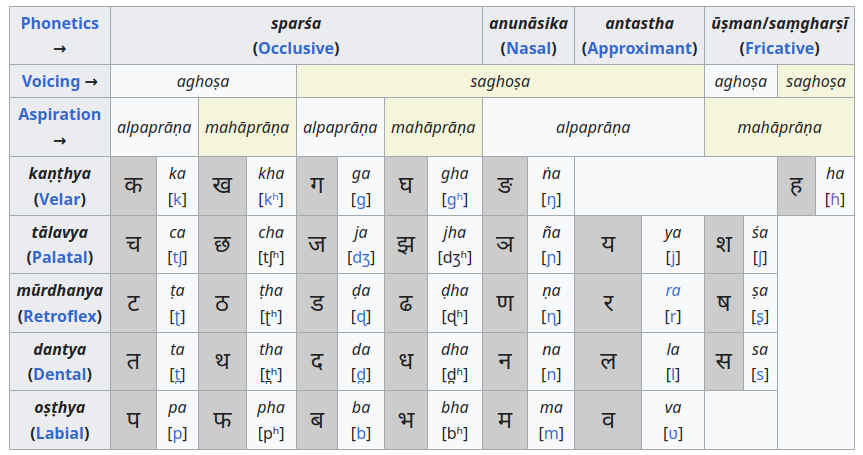
and definitely that is somewhat different, yet a similar tradition to the one we looked at just before.
let's try and compare them:
ban बं अ आ [a aa] क ख ग घ ङ [ka kh ga gh na] the first lines are the same.
and they go the other
way around, thus in that image we have what?
than
ठं इ ई [i ee]
च छ ज झ ञ
[ch chh ja jh na]ban बं उ ऊ [u oo] ट ठ ड ढ ण [ta th da dh na]
here I realise that
they're not the same syllables, that I just lost the
diacritics, g.t. did.
than
ठं ॠ ऋ [r r]
त थ द ध न
[ ta th da dh na]ban बं ॡ ऌ [l l] प फ ब भ म [pa ph ba bh ma]
and up to there the order went like the
other way around, and what did it have to tell me? that
these were the five, formerly the three? Since others are
spread along these five in the previous table, and the ones
left behind are the anomalous non-five letter groups rungs
than ठं
अं अः [an ah(ae)]
ळ क्ष [la ksh] these two are not even in that tible. not vowels (though technically they're also not) the la and ksh.
and once again, they go backwards as the groups:
than ठं ऐ ए [ai e] य र ल व [ya ra la va]
only this time it's not a line, but a column, totally inconsistent, yet may indicate that these are added later, for borrowing, for their r and l were, as in srpskohrvatski, syllabic.
and another column, also somewhat arranged around the articulatory lines, probably another level of borrowings. ळ क्ष [la ksh] are probably another level of complexity, though why would they have another l? is that ळ a form of ल?
what seems to be an ai response on quora:
The difference between ल (la) and ळ (ḷa) lies primarily in their pronunciation and usage in the Hindi language and other languages that use the Devanagari script.
Pronunciation:
- ल (la): This is pronounced as a lateral sound similar to the "l" in "lamp." It is a dental/alveolar lateral approximant.
- ळ (ḷa): This sound is pronounced with a retroflex articulation, meaning the tongue curls back slightly in the mouth. It does not have an exact equivalent in English, but it can be somewhat approximated by a harder "l" sound.
Usage:
- ल (la) is more commonly used in Hindi and many other languages using Devanagari.
- ळ (ḷa) is less common and is primarily found in languages like Marathi, where it is an essential phoneme. In Hindi, it appears in some words borrowed from other languages or in specific dialects.
In summary, the key differences are in their articulation and the languages in which they are used.
क्ष an irregular ligature of क (ka) and ष (ṣa), considered its own letter.

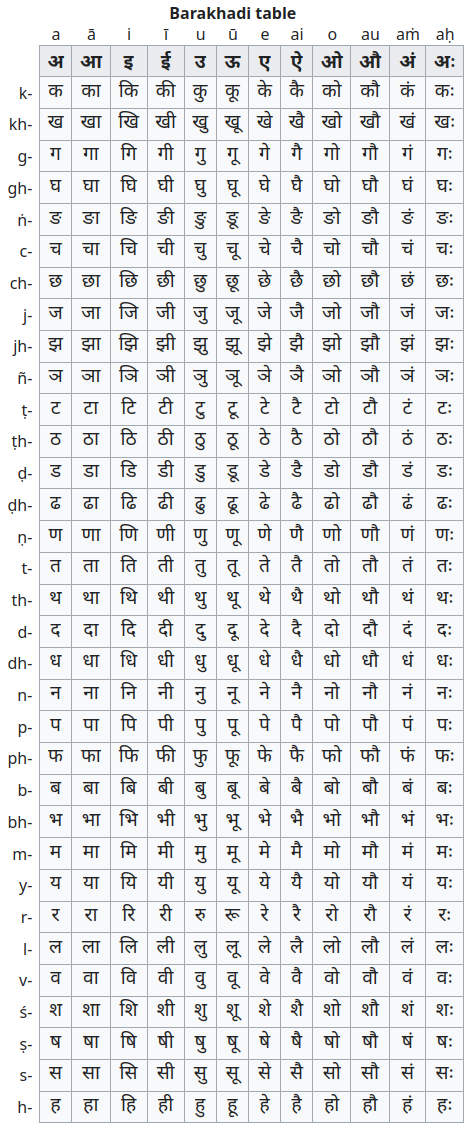
In this table you cannot see the lines of the previous structure, but by how n's cut them it's clear that end is of n: N'ed [end] and m is a form of n, the penultimate N, the om is basically on, and I wonder if that is an inversion of Ma who ona is, with o being a honorific prefix.
女[onna](woman) ~ אִשָׁה[ishema](woman)
女[onna](woman) ~ אִמָא[ima](mother)
g.t. transcribes אִשָׁה as ishema for whatever reason, but it reads it isha
(which what I can believe, but what if there's a deeper meaning under ishema spelling?)
女[onna](woman) ~ אִמָא[ima](mother)
g.t. transcribes אִשָׁה as ishema for whatever reason, but it reads it isha
(which what I can believe, but what if there's a deeper meaning under ishema spelling?)
The structurally consistent 25, the
ban बं अ आ [a aa] क ख ग घ ङ [ka kh ga gh ṅa]
ban बं उ ऊ [u oo] ट ठ ड ढ ण [ṭa ṭh ḍa ḍh ṇa]
ban बं ॡ ऌ [l l] प फ ब भ म [pa ph ba bh ma]
not only end with m (as if it's т(т)) but they also follow european (and japanese) order a i u (even if it is a e o (but these are moderate shapes, and japanese places them e and o in this order, but in the end of it, after a i u, so.. so and r is than and l is ban, which were 50% probability, yet the other outcome also was 50%, so if that is consistent with what I implied, than yes. And R correspond to Ta while L is of M, and could it be why R is outside of the sonor line in european alphabets))
kadama (कदम).—m A step or pace.
(probably because those are the same steps in the structure: from the first to the middle and from the middle to the last the same distance it takes.
It's puzzling, that अ आ [a aa] क ख ग घ ङ [ka kh ga gh ṅa] are ban बं
and इ ई [i ee] च छ ज झ ञ [c ch ja jh ña] are than ठं
If I spoke the language maybe I would be able to tell more about it.
But it is similar that I can speak the structure of their alphabet on the basis what I know about alphabets (whatever you call it, abecedary, abugida, I don't care, they're all the same. I call tehm alphabets, other authors may call them whatever they want. But then what, I can call alphabet abecedary and syllabary when I speak of it as of ba be be bi bo bu ga ge gi go gu da de di do du being b v m p f g j k r q d z n s ts
b g d
v d z
m j n
p k s
f q ts
b g d
v d z
m j n
p k s
f q Џ
If џ is т with lots at its hands, carrying something, џенное?
And there are alsoꙠ (how many secrets universe still has, it always will)
the gdjkq are sloppy: they're built by first associations, let's redo it. And d twice!
ba be bi bo bu
b v m p f
ga ge gi go gu
da de di do du
d z n t z as you can see, I am lsot here
i the j made it sonor?
And what if there were only b and d?
as in runic alphabet.
A BA DA
E BE DE
I BI DI
O BO DO
U BU DU
A B D
E V Z
I M N
O P T
U F R? this line is extra. there were only four:
A B D
E V Z
I M N
O П Т
It's good that I didn't have to pull it (other than I put П instead of P) yet I see that I lost it at V Z storey.
and remembering the A I U R L thing, I shortened it to A I U:
A B D
I M N
U V Z all three forms of voiced, voiceless are just whisper, why would it need its own letters.
And it is a coincidence that they're all voiced, giving it so perfect. A M Z (name of the madhouse in my city, it's all such mk-ultrish, that my droog Roouh lives in my city, and that such name (by the name of the factory which is not that, but somehow it became the meme, who implanted it into us? Fuck, they know, they told us not to tell it. But we must. Yet nobody reads such literature, so they should be happy with my style.
A B D
I M N
U W Z
BMW maybe also know these nine.
of course, the best mechanics know it, who
else would! ort vucould!
AUDI is probably coincidentally coexisting in that square. WIN
is the cup? wu ai ni, ni zao for nihao? fricative somewhat
lingual, what else? h is f and w in japanse. in japanese. and
because wao instead of zao doesn't seem right. But if it's
vao, it's appropriate, so h could be both? yes, why not, some
vague fricative. vz could be it or zv, hollar zvatt? health
zdorovie? hand? head? zad (x [z]? messy mess)xyz ~ x et z?
wud is good. Suddenly this minimal set is working.
wud iz wud. zadinni ziz miniman zid iz wodnin (k as n? ng? ŋ) good is would.
sudden zadin? (атака сзади действительно неожиданна (когда враг зашёл в тыл, откуда не ждёшь))
A B D
I M Λ
U V Z
and suddenly V Z dissonate with M Λ, so I want it to be W X, so that final X[t]
but it's way less cool than previous square, the
A B D
I M N
U W Z and suddenly.. M~W, N~Z, it was these six:
A B D
I M Λ
[обещай и моли]
(обещай и умоляй)
{давай обет? обед? и мели}
гадаю, угадываю
I M Λ
[обещай и моли]
(обещай и умоляй)
{давай обет? обед? и мели}
гадаю, угадываю
A B D
I M N
U V Z
what an alphabet! you cann write neither mk nor control nor king in it.
king would be zinz, which reveals сыны in it, which is basically what they all claim.
control would be dunddud (контролируют надоедая? нудя? долбя дун-дун? как мент просит подуть ему в фалломимитатор)
Ba Da
Mi Ni
Vous Zoo
What is the meaning of such exercises? Looking for further consistencies. I explored that territory well in Alphabeta Meminerunt Syllabaria, but then
and what
if it is
A V D
I M N
U F T
but no, a v d is in greek and russian though. in russian they're both b and v in that spot. What can it tell? That russian had B, while greeks had to use dygraph. For borrowed words? I don't know greek either.
L I T
S M H this one is me just trippin, finding a good letter combination, speaking to different public.
D O C
LIT SoMeHow DOCtor written like that also encodes LSD, DMT, THC in it. All cool stuff.
Чувствуя себя рабом, я с ужасом вспоминаю как русы славы, славься славься русский царь, славься отечество наше свободное (what a fucking irony)
Отчество наше можешь своё имя вписать, тиран очередной собака
Славься как славю себя словлю себя солью себя государю или кому дарю, ага
I kept on digging into hinduism, only to understand that I'm doing so to please my friend who wished that. That I should keep on looking where I found it, not where lots of lights are. Yes, hinduism is a related tradition, but nevertheless it is so distant, that it only distracts me from digging where I found it. There are definitely traces of this tradition I'm digging out, and Ashtamatrika yantra is very alphabetic, but may those who speaks hindu at least dig this out.
Let us not get meddled and puddled into their Mangala surprisingly similar to Mars, and the variety of stories about it, which not only don't have to be shared by europeans, where I decide to focus, but also duffer vetweeb dufferent forms of hinduism: According to Vaishnavism, he is the son of Bhumi, the earth goddess, and Vishnu, born when the latter raised her from the depths of the primordial waters in his Varaha avatar.[4][6] According to Shaivism, he was born from the god Shiva through a drop of his blood or sweat.
see, there are words more interesting:
Bhumi (Sanskrit: भूमि, romanized: Bhūmi), also known as Bhudevi, Dharani, and Vasundhara, is a significant goddess in Hinduism, personifying the Earth. Her earliest form is reflected in the Vedic goddess Prithvi, though their roles and depictions are drastically different.[3]
Prithvi (Sanskrit: पृथ्वी, Pṛthvī, also पृथिवी, Pṛthivī, "the Vast One", also rendered Pṛthvī Mātā), is the Sanskrit name for the earth, as well as the name of the goddess-personification of it in Hinduism. The goddess Prithvi is an archetypal Mother Goddess, and along with Ushas and Aditi, she is one of the most important goddesses in Vedic Hinduism.[1]
how can I leave it now, Aditi Ushas Prithvi what are they? Do I see alphabet everywhere now, cherry picking what doesnt' even play along perfectly.
In later Hinduism, the figure of Prithvi is supplanted by the goddess Bhumi, while the term Prithvi serves as one of her epithets. She becomes significantly associated with Vishnu, one of the most important gods in later Hinduism, and his avatars—Varaha and Prithu
There are like layers to hinduism. They link goddesses to gods, and only further study explores that gods are themselves derivative of the Goddess. God-ass? Why the blasphemy? That's your english.
Devi. De Vie!~
And I didn't expect it to sound as Devil. Which is probably the masculinized form of Devi.
Or maybe иль was a form to turn i, ий
Besides Hinduism, Prithvi holds a significant position in Buddhism, symbolising the vastness and support that the Earth provides to all life. Her appearance in the Buddhist tradition is tied to the very moment of Buddha’s enlightenment, and she is considered the first goddess in the Buddhist pantheon.
Those are just different languages or dialects or epithets rising over the other in different historic periods. But isn't vedic period the most ancient one?
Prithvi is the most frequent Vedic word for both the earth and the Earth-goddess;[4][5] and the poetic formula kṣā́m ... pṛthivī́m ('broad earth').[4][6] The name Pṛthivī (Sanskrit: पृथि्वी) has its roots in Proto-Indo-European mythology, originating from the epithet Plt̥h₂éwih₂, which means "the Broad One." This term highlights the expansive and nurturing nature of the Earth and forms the basis for the Vedic concept of Pṛthivī Mātā, or "Mother Earth."[4]
Please, Muses, save me from hinduism. I am not hindu, and they're caste society, and honestly they're not as inspiring, seem dirty, foreign, not my pantheon. I strive towards european progress, not eastern savagery.
Goddess Prithvi is referred to by various epithets across different religious traditions, particularly in the Vedic and Buddhist contexts. These epithets highlight her nurturing, sustaining, and protective qualities, as well as her connection to truth, fertility, and abundance. Some of the key epithets used for Prithvi are listed below:[3]
Bhūmi – 'Soil'. This Vedic epithet becomes her primary name in later Hinduism[4]
Viśvagarbhā – 'Womb of the world'
Medinī – 'Fertile one'
Janitrī – 'Birthplace'
Viśvasaṃ – 'Source of everything'
Viśvaṃśu – 'Producer of everything'
Dhātrī – 'Nursing mother'
Dhāritrī – 'Nurturer'
Viśvadhāyā – 'All-nourishing'
Pṛśnī – 'Mother of plants'
Vanaspatinām gṛbhir oṣadhīnāṃ – 'Womb of forest trees and herbs'
Sthāvarā – 'Stable one'
Dṛḍhā – 'Steady one'
Kṣamā – 'Patient one'
Dharā – 'Upholder'
Viśvambharā – 'All-bearing'
Viśvadhārinī – 'All-supporting'
Ratnagarbhā – 'Repository of gems'
Ratnavatī – 'Abounding in jewels'
Vasundharā – 'Bearer of treasure'
In Vedic scriptures
Three aspects of the term Prithvi appear in the Vedic scriptures: she is the physical earth, the universal mother of creation, and manifest matter that is formed during the cosmogonic process.[9]
What? Am I going to study sanskrit now? NO
Let's stick to my own language, and let's explore these concepts from my own perspective.
Or else I would be using distant mirrors of
some points of views I'd have to take on faith
"Faith consists in believing when it is beyond the power of reason to believe"
In this context, not because it's absurd, but because I don't know much of it.
"Faith consists in believing when it is beyond the power of reason to believe"
In this context, not because it's absurd, but because I don't know much of it.
I know that prefix a in sanskrit is the same as in europe, but let's leave it at that.
Until I can integrate with ai, let these layers lay.
There are some interesting words in those traditions:
Ābrahmakīṭajananī (आब्रह्मकीटजननी)
Ābrahmakīṭa is a separate word and it is very alphabetic, starting with ab, ending with ta, havin m in the middle
तब तो आब्रह्मकीट एक अद्वितीय परम सत्य परमपुरूष परमेश्वर परमात्मा को ही अवलोकन करने की ...
Then the Abrahamkit is a unique supreme truth, the Supreme Personality of Godhead, the Supreme Personality of Godhead, to observe.
Abraham in it confuses me, but what do I know, the word is mighty,
as you see by the context its found in.
Am I supposed to look into it? Yes, because they preserved the prepatriarchal culture. But then they not only preserved it, they allowed it to bloom in all directions, and thus what do I know, how can I tell what's what in these jungles. It is more prudent to stick to our rudiments. Because only important pieces would be able to be preserved in it. But then so rudimentary they are that it has its own challenges.
I guess I shall be jumping back and forth now. I think I am going to figure it all out.
Is word arab formed of the first two letters of the alphabet with mocking their vowels?
Вода и водка
Мать и мачеха
волица и волчица
водица и водчица (водка вода после чего-то там чиста? спирт оттирает. могли быть алкаши настолько мерзкими чтоб пить воду после промывки деталей? выделения из неё спирта? они пили клей бф (или это было дисрупционное журналистское байко?))
мать водится, мачеха "вот ещё!"
это поэзия, но что толку? язык соткан из неё. расшифровка поэзии, реверс-инжениринг языка.
Be See Do
iF Go Hide? Hi! (hy~bye, salut~salut)
Be Sit Do
iF Go Hey (say)
be here duh (сеLA datDU)
if go say (x and c switched position. now c is ntext to g, which is nice, it is also ש and ת)
B X D [b h d] or [v c z]
F G C [v ʒ s] or [f g k] (or anything in between)
yet it is not as impressive as alla- la voiced of the 89
A B D plosive
I M N sonor
U V Z fricative
1 2 3
1 vowel
2 labial
3 lingual
Let's write some random text and check it in that 9-letter alphabet:
Met's vdid zum dandum dizd and zid id in dad 9-nedden anvbd
alfa as anv is au novo (с начала, как оно и есть. льфа~нова? если бы значение было другим, то я бы сказал, что а это отрицание? rigor! the answer is maybe, I shouyld throw everything at the screen to see what sticks (I though of the movie screen, for science should be dont on film, to prevent forgery))
(and understood that this is also a screen,
even further from the wall, but that's what I do here)
bet as in better. now it's bad, but they say it used to be good. бог is bad? bad as bog? exactly.
big and bigger
bet and better (I bet ~ I good (ставлю добро́ (закладываю имущество) на то что моя ставка сыграет, как в бизнесе, делаю ставку. да, русских жёстко отодвинули от делов, мы как медведь которого никто на самом деле не любит, даже из тех кто с мишками плюшевыми спят. Спали люди с чучелами мишек? Шкурками мишек их укрывали (для людей они как одеяла малы, а детям само то) сшить мишку обратно деитка и самма могла. Чтоб медведи пытались их реанимировать пока мы убегали. Не пахнут, значит живые? Детьми пахнут)
So now I not only know the structure of the alphabet, so I can not only answer why the letters stand where they do, but I also found the structure within the shapes of some of the letters. Let's count how many I can attribute to that structure:
B D F Г Z М Λ N П Т X Ф Р 𐌚 S З?
16! So basically most of them are. And lets' compare them to younger futhark
(short-twig)ᚠᚢᚦᚭᚱᚴ᛬ᚽᚿᛁᛆᛌ᛬ᛐᛓᛙᛚᛧ: younger fuþark (8c.~11c.) ᚠᚢᚦᚬᚱᚴ᛬ᚼᚾᛁᛅᛋ᛬ᛏᛒᛘᛚᛦ(long-twig)
ᚦᛒ
ᚠᚴ
ᚴᛘ is it what brings k into the i-line? runic symmetry, not present in irish and italian.
ᛚᛏ (l is shorter than t, thus - in t is longis (term from latin standing for "diacritics of long vowel", here I use it for consonants))
it makes ᛚ~ᚢ
ᛦ also can be double ᚢ
Technically ᚭ is double ᚿ, but I thought ᚭ~ᚬ~ᚨᚩᚪᚫᚬᚭᚮᚯᚰ~ᚮ~ᛆdouble
Graphically, [o]ᚭ~ᛓ[b] are both double ᛆ or is ᛓ double
ᚬᚯ are double ᛅ[a(ᛆ)], but not ᚾ[n(ᚿ)]?
but what is the difference between a and n if they're ã (it's the only way to explain ᚬ and ᚯ being the same rune.
Does it make ᚭ and ᛓ the same letter? B and O.
D and C are crescents, B and O are full munn in different representations.
both B and O are labials (that colour I chose to show the typo which was better than it was without it)
ΑΒΓΔΕΖΗΘΙΚΛΜΝΞΟΠΡΣΤΥΦΧΨΩαβγδεζηθικλμνξοπρσ/ςτυφχψω
ω is double υ (if that structure exists, they all (or at least most of them) should obey its reason)
π is double τ even more than Π and Τ are.
(short-twig)ᚠᚢᚦᚭᚱᚴ᛬ᚽᚿᛁᛆᛌ᛬ᛐᛓᛙᛚᛧ: younger fuþark (8c.~11c.) ᚠᚢᚦᚬᚱᚴ᛬ᚼᚾᛁᛅᛋ᛬ᛏᛒᛘᛚᛦ(long-twig)
ᛋ is double ᚲ (which is ᚴ, which makes sense since ᛋ as ᛌ opposes ᛦ as ᛧ)
ᚠᚢᚦᚨᚱᚲᚷᚹ᛬ ᚺᚾᛁᛃᛇᛈᛉᛊ᛬ ᛏᛒᛖᛗᛚᛜᛞᛟ: elder fuþark (1(?)c.~9c.) gothic runes are the same plus quairtra(𐍁)
Thus ᛋ is ᛉ, which is just where ᛋ is, right before ᛊ, which is definitely ᛋ, and as it is the same 𐌔 in old-italic, it's half of 𐌚, but double ᛋ is only ᛟ, which reminds me of how B and O are both full moons (double crescents) and also ᛓ and ᚭ
ᚠᚴ
ᚢᚦ
ᚭᛆ
ᚿᛓ
ᚱ
(ᚽᚼ)ᛏ (h~s!)
ᛁ
ᛌ
ᛐᛚ (ᛏᛚ)
ᛙ
ᛧ
ᚠᚢᚦᚱᚴ᛬ᚼᚾᛁᛅᛋ᛬ᛏᛒᛘᛚᛦ
ᚠᚴ
ᚢᚦ, ᚦᛒ, ᚢᚱᛒ
ᚬᚼᚾᛁᛅ h=nn? H=nn? ᚻ as double N? but then ᚺ is also ᚻ, n~ν, as v the u is ʌ in words like bus?
ᛋ(ᚴ(ᚲ))
ᚲᚷ
ᛏᛚ
ᛘᚴ
ᛦᚢ
ᚠᚴ, ᚦᛒ, ᛘᚴ and ᚭᛆ are double labial and non-labial single.
ᚼᚾ [Hn] makes sense as long doubles and short singles only if ᚼ is ɦ
ᛡ is a different rune, and if it's double, it's double ᛅ
(or could both h and й be J? They probably are, and then dʒ the G is double n? or double a?)
Well, so complicated, let it brew. We shall return to this one.
A a B b C c D d E e F f G g H h I i J j K k L l M m N n O o P p Q q R r S s T t U u V v W w X x Y y Z z
(isn't it beautiful
that this is the width of my line (in different browsers
could be not as cool)
(that is why pdf's are in use)
Here, an attempt to figure out where the letters could have
come from:(that is why pdf's are in use)
A a B b C c D d E e F f G g H h I i J j K k L l M m N n O o P p Q q R r S s T t U u V v W w X x Y y Z z
𓄿1 𓃀 1 1 3 𐎅 2 1 2 )( but it's not easy, and too early to tell of them all yet
2 II I'll do it some other time.
3
1 B/D, C/S F/Г, M/Λ, Π/Τ, Φ/q
2 a/e, б/g,
3 bd
pq
4
B could be Bow
D could be axe, d
С could be staveless axe (the metal part of it)
E could be pitchfork
F could be spike
G could be a form of C
H could be double arrow or something
I could be arrow (ا[a]?)
П
ᛈ
𓉐 [pr] and it explains why russian R is Рва (these two are the most common mistake.. typo.. weird posttype after russian R the Р (I use it to check if the letter I typed in is in russian key))
𓉐
O1
U+13250 house
House (pr) pr
Determinative for buildings
And since it is so clearly П in this example,
𓂋 is the ry кш ri
"go forth" is also "дома, говори"
вор в говори is it for of forth?
П is for πόρτα (door (is por in porta house? is τα in πόρτα ד the דֶלֶת the דַל))
П for house makes T for tree, and house to be built by tying up two trees, so that we would live in between some branches interwovent between the trees, makes perfect sense, like a nest but able to hold a human. They also say that trees were waaay bigger in the past. We exterminated almost all of the ancient trees.
AБСурД (is it because ᚢ has nothing to do there, or is it because АБСᚢᚦᚱ is more consecutive? And that is close to абсуди, which is обсуди, which is of беседа, the alphabetic word I noticed earlier)
CCP now known as Chinese Communist Party
was used by soviet commies for Soviet Union:
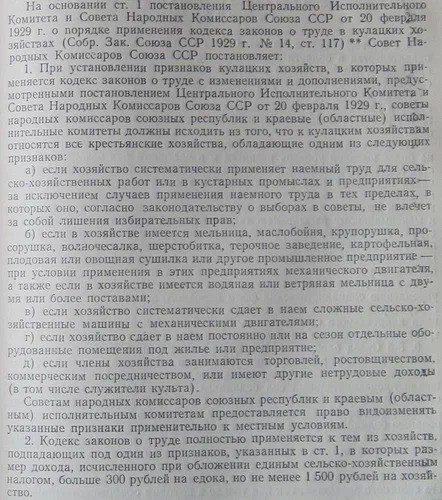
(literally Union of CCP (советских социалистических республик (soviet socialist republics))
because before that I thought of CCP as of decay of СССР, as if CP is its last and final stage.
(and commies of the west (and one of two
russian commies I know) are pro-pedophile)
(and pedophiles are told to be some high-rank soviet cumreds, such as beria for example)
(and when his predecessor bothered stalin about rings of pederasts, stalin outlawed homosexuals instead (that is why pederast is thought to be a passive homosexualist in sovient russia until this day))
(and pedophiles are told to be some high-rank soviet cumreds, such as beria for example)
(and when his predecessor bothered stalin about rings of pederasts, stalin outlawed homosexuals instead (that is why pederast is thought to be a passive homosexualist in sovient russia until this day))
would is the opposite of do (the ideas of Lukashevich take ground more and more)
peek
peer
peep all three would make more sense if they started with see, but why pee?
pee is ссы. fuck that is crazy,
doesn't make any sense so far.
doesn't make any sense so far.
Another case of sudden dislexia: could instead of good (what is going on!)
But then maybe that is my subconsciousness suddenly speaking, showing me how they're the same words. If it's good, I could. Wood I would
so I asked it, and somebody explained:
> Homophones are indistinguishable in speech, so when you subvocalize while typing, you easily make errors like that. I suspect good and could sound very similar in your dialect.
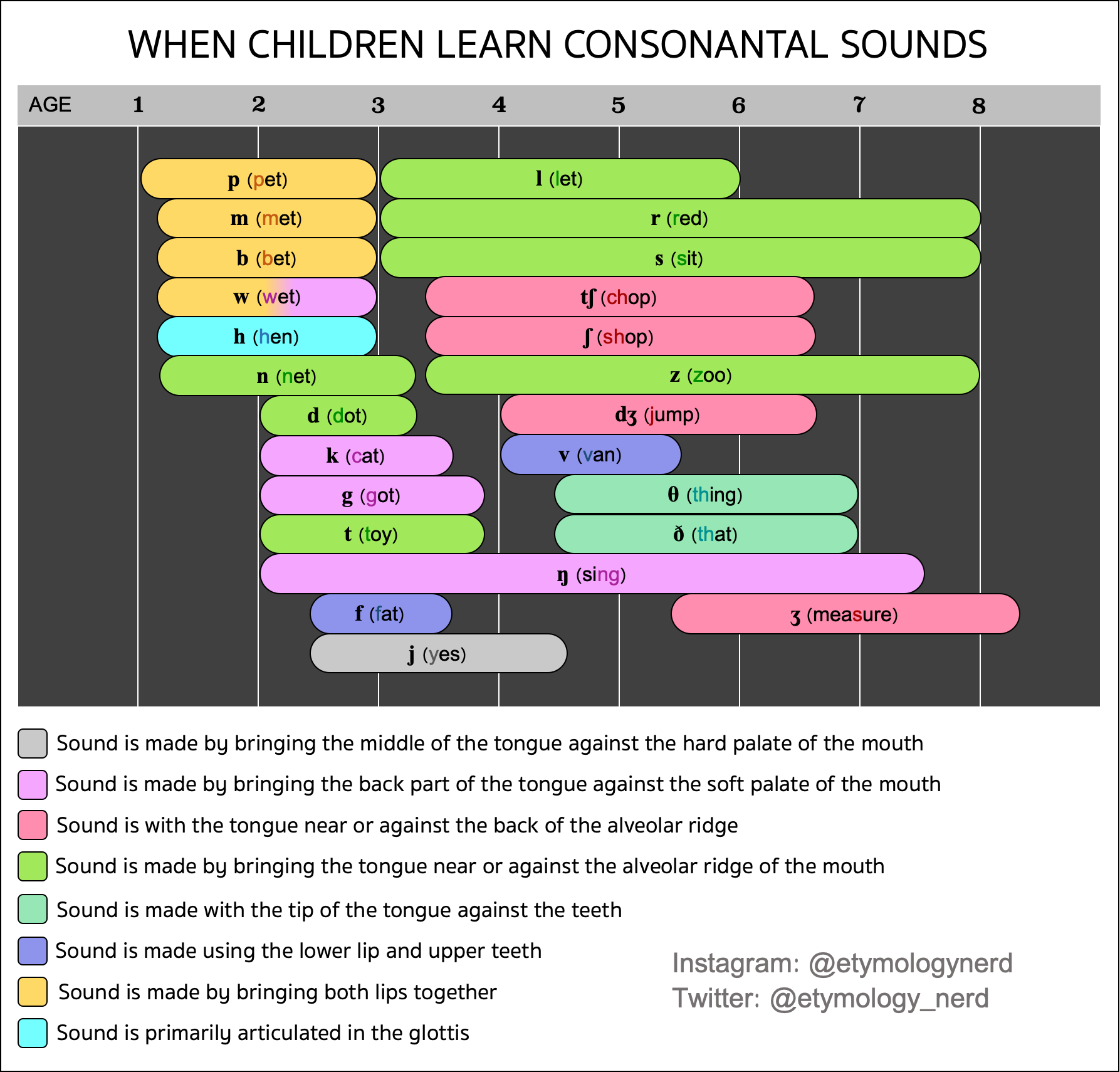
I don't know of that, I was told to tell kaka instead of papa (but probably I was trying to say saʃa)
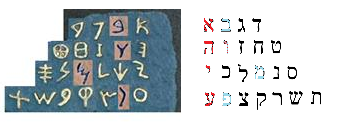
Peering into the phoenician, I noticed how much 𐤊 looks like a bird's paw, which make it курица, энд 𐤊
𐤋 (the k l) лукс лайк "как курица лапой"
unicode shows phonician k more similar to : 𐤊 (reversed, because they write the other way around, yet it looks exactly like ч, russians probably borrowed the final letters from that tradition (and ц looking like צ, that last line is definitely jewish: русское У явно позаимсвтвовано из ע (обрати внимание, что эти русские буквы не развёрнуты, видимо это второй этап заимствования. или просто обратное заимствование, а С в כ это они заимствовали и понимали больше. Либо латиняне заимствовали, и понимали побольше русаков о направлении буквы, они ближе к египту, где это в явном виде в правилах орфографии))
> Incoherent rants no one can debunk
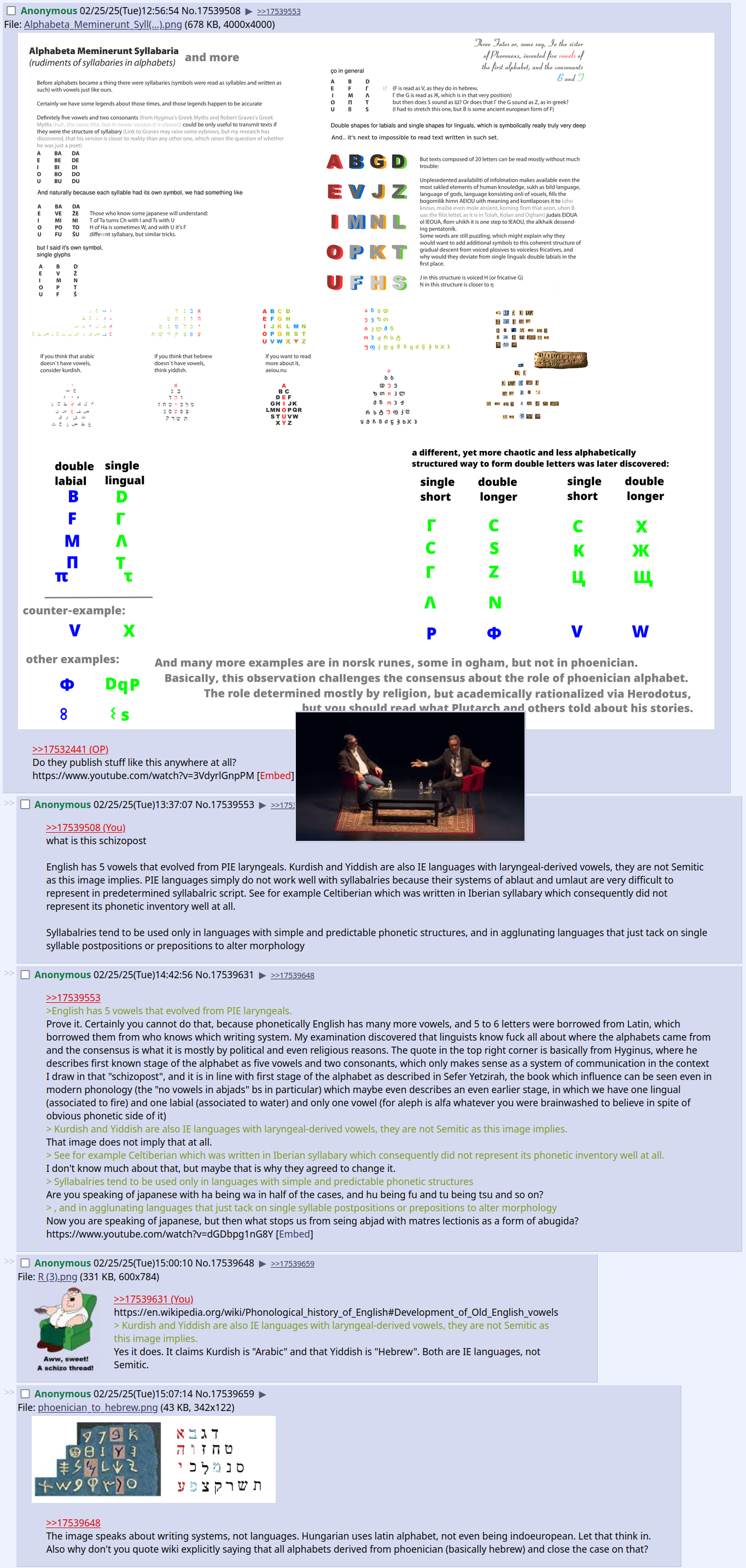
such a weak attempt at criticism.. a better critique would be something like this:
it seems to be wrong about ogham though: though o is double a (as in danish aa[o] and as in runes ᛆ[a] ᚮ[o]) it has a different way of arranging letters: third is more of the second, fifth is more of the fourth, yet labials tend to be first (in harmony with how their vowel order is different from ours: aouei instead of aeiou) but I'm ahead of myself (I didn't understand it at this moment, it is coming later in the volume) but the deeper I delve the more speechless they get. And here I also noticed that u is double i, but not in ogham, in latin, and o could be double e, if e was seen as something c-like, like ה or something (o used to have dot in the centre, I think I saw it somewhere, or maybe I didn't, maybe it was some Θ all along)
ᚮ ᛆ (and
B D
F Г I(and C~S could be here, because Г is C and because Ѕ is in this line in old-russian)
М Л
П Т (𐌆)
𐌄𐌅𐌆 in old-italic
runic has very bright trace of the double-single structure, the one I expected to see in the source script, and only rudiments of which are seen in latin, much more in greek, and almost none in phoenician or hebrew. I'm not sure of arabic though. Arabic comes after I finish with runes and ogham:
ᚮ ᛆ [o a]
ᛒ ᚦ [b ð]
ᚠ ᚴ [f k]
ᛘ ᛚ [m l]
ᛈ ᛏ [p t]
or
ᚮ ᛆ [o a]
ᛓ ᛑ [b d]
ᚠ ᚵ [f g]
ᛘ ᚴ [m k]
ᛈ ᛐ [п т]
and now let's look at ogham:
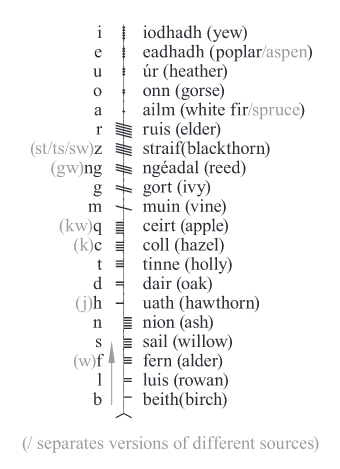
and I only knew of ᚐ [a] and ᚑ [o] coming through in ogham. other than that it rather shows the opposite tradition: ᚋ [m] and ᚌ [g]
(yet it shows the other tradition of
doubling: ᚎ [z] which reminds Z being double Г)
opposite tradition: ᚁ [b] and ᚂ [l] (yet it shows the other tradition of
doubling: ᚄ is [s] but would better be [n])
could it be that b l n were 1 2 4? is it why n is fifth today?
only a trace of the opposite one: ᚆ [h] ᚇ [d] (yet once again
ᚉ [c] could play longer shape of d)could it be that b l n were 1 2 4? is it why n is fifth today?
So doesn't ogham preserves the other form of it? That word of man weighs half a weigh of a woman (because we weigh that way!) it seems ogham had different symbolism around numbers:
There is a reason to consider female doubles by the shape of our genitals, and by the fact that lips are two and tongue is one. Complicated symbolism, probably developed much later than the straight forward symbolism of ladies first (even further up front than in regular european, in comparison to ladies last of the eastern writing systems) in the sense of if one is one, then the other is two and by weight it's clear who is who.
Instead of lingual-labial symmetry, ogham consonants show the addition pattern, though vaguely:
ᚁ + ᚂ = ᚃ [bl = w (sonor b)] other variants such as [bl = f] and [bl = n] are possible but less obvious
ᚂ + ᚃ = ᚅ [lw=n] is also much more consistent than [lf=n] and [ln=s] or [ln=f] or even [ln=w]
ᚆ + ᚇ = ᚈ [hd = t (or is it dh=t?)]
but ᚇ + ᚈ = ᚊ [dt=q] is way much less convincing.
ᚋ + ᚌ = ᚍ [mg = ng] is one of the best arguments for such system existing.
ᚌ + ᚍ = ᚏ [gng = r] is somewhat weak, but possible
ᚐ + ᚐ = ᚑ [aa = o] is the only thing which allowed me to say earlier that ogham has some of double labial symmetry.
ᚐ + ᚑ = ᚒ [ao = u] doesn't make any sense, and here it may expose that 2 and 3 come together, just as 4 and 5, at least that's how they go in their vowels, and ᚑ + ᚒ = ᚔ [ou = e] doesn't make any sense.
So let's explore the possibility of 3 and 5 being amped up versions of 2 and 4:
f is not amped l (w could be)
n is not amped s (but it could be amped l ..or w)
It is such an inconsistent part! Because here I test the hypotheses.
Also what I'm doing is stumbling on the ambiguity of the first aicme: it's called bln, but goes blf or blw,
so let's start from the other two and work up..
t as more d than d, q as more c than k. Second aicme tells "go for it!"
ng is more g than g, r is more z than z, yes!
So let's play around with the first aicme:
bln the way it is named supports this structure great: n is more l than l, thus other two are s and f or s and w, and unless w is ш, those two are 𓆑𓆓 [f dʒ? f s!] well, that's quite a stretch.
Thus there's only one explicit structure all across ogham:
3 is a stronger form of 2,
5 is a stronger form of 4
(thus probably only three letters per aicme there were
(were they they 15 or 12? were they 13 of
the calendar?))
Arabic:
ا ب پ ت ث ج چ ح خ د ذ ر ز ژ س ش ص ض ط ظ ع غ ف ق ک گ ل م ن ه و ی
and arabic is similar to ogham all of the sudden:
ب [b]
ت [t] and I wonder why does wiktionary has l all across it:
From the Nabataean Aramaic letter 𐢞 (l, “taw”), derived from the Phoenician letter 𐤕 (l, “taw”), from the Egyptian hieroglyph 𓏴. See also Classical Syriac ܬ (l, “taw”), Hebrew ת (l, “tav”), Ancient Greek Τ (T), Latin T.
(letter name): IPA(key): /taːʔ/ (phoneme): IPA(key): /t/
ت / ت / ت / ت • (tāʔ)
The third letter of the Arabic alphabet. Its name is تَاء (tāʔ) and it has the sound of English t.
It is preceded by ب (b) and
followed by ث (ṯ).
probably a coincidental accidentthey tell tha↑ because پ[p] is only
present in persian
present in persian
and when I almost thought "now that's it", ف ق came along. Alos oghamic more than alphabetic
ف[p]
ق[q]
remind
ᚋ[m]
ᚌ[g]
ق[q]
remind
ᚋ[m]
ᚌ[g]
hittite 𒉺 [pa] is basically П, and tells the direction of the script.
is sumerian:
𒉺 [pa] (branch, stick; wing, feathers; top; to bit upon, strike, fell, to make tremble, quake )
𒉺 [g̃idru] sceptre, measuring stick
in akkadian:
𒉺 [ḫaṭṭum] sceptre
𒉺 [pa] branch, wing, overseer
(isn't 𒉺 p in reverse? see the 𒉺 in q)
𒉼 [pan, ban] bow and thus it is staveless B. even though thus looking the other way around, but then b also looks not the way 𓃀 does.
𒉡 [nu] no (hittite is considered indo-european)
Here I looked for the conterpart of 𒉺, which would play along П Т pair:
𒈦 [maš, sa (isn't it where M and Ϻ meet!)] middle, centre, and it's sumerian or akkadian, not hittite
and Sa is next to Ta, also because russian т is т
𒈦 [maš, sa] middle, centre (in sumerian, though when it's read as maš, it's an alternative form of 𒈧, which is neither middle nor centre, but a he-goat, sacrificial animal, interest on loans)
in akkadian 𒈦 is only sa the middle (according to wiktionary) but they also know 𒈧, which they understand as divination, not sacrifice, which makes me suspect that it is the root of the word magic.
So, basically 𒈦 is Sa, while maš is 𒈧, which can be shortened to 𒈦, but it's not. Well, it's complicated
So if S~T, then P~F (well, which it is in פ (and yes, the way b is v, s is t, p is f, k is h, hebrew is probably ancient-ancient, more ancient than them all in a way. Well, yes, I have to think about it))
B D
E F Г I
MΛ
Π Τ and thus we have a human-like figure
П and Λ for Правый и Λевый on different legs, М is for middle between them, Tт Mm
тсентр
B DE F Г I
MNΛ
Π Τ
A B D E F Г I MNΛ O Π Τ
and basically that is quite an alphabet.
With vowels they are 12 or 13 letters, perfect for 12 or 13 month calendar.
4 B D 3 F Г 1 MNΛ 0 Π Τ
was it how H the 11 appeared there?
2 never was h before. though cursive ב does have that n-like curve on the bottom, it's some middle ground between
2 is пустое множество
4 b d
3 f г
2 (ᚼ? ᛡ?)
1 m n (lat) [m n]
0 п т (rus) [p t] (the same as П Т (and it is one of the unresolved misteries around it))
тсентр
тс as one letter? LC, ц
latin tsadi is z: ע פ צ ק ר ש ת | u v w x
y zтс as one letter? LC, ц
russian tsadi is ц: ע פ צ ק ר ש ת | у ф х ц ч ш щ
ע פ צ is the sequence present in all three alphabets.
They are also the set by having that lower bar, which is not present in most of them. But then there are others, so how important is this thing..
х is present in russian and latin, but not in hebrew (and russians and english are closer in their heathen beliefs and being gentile. на них крест поставили! в еврейском нет креста меж ф и ц
меж физлицом и церковью?
меж формой и целью?
ш is present in russian and hebrew, but not in latin. if that line is compared to fifth line of latin, then they are diffferetn lines. let's compare them to what they are:
ע פ צ ק ר ש ת | o p q r s t and they are the same sequence, only lating doesn't have z between p and q
Did russians and khazars made them ts, which was totally redundant, placed it randomly, thus disturbing the k-column? Here is where latin has priority before latin (latin preserved the pure k-column, it is definitely there, if ц was not removed from latin to put k-column from the midst of the linguals and at the middle of labials and coronals (коронные? коренные? переднеязычные)
4 B D
3 F Г
2[h?] Θ?
1 m n
0 п т (п половина, 0.5, 𒉺[pa].. but половина is 𒈦[sa] (половина от pa?))
l m n
I M N ll[j] llll[i]? (plural, as i is plural suffix in russian)
συλλαβεῖν (syllabein) – To seize or To arrest
reminds me of syllable and links it to слово, which reminds словить (to catch) which is probably directly related to slave.
more on this in the log with grok
> now I know why I cannot read while high: I have to write, becauyse it's time of my own output, so input cannot flow in. So why waste the high. I see you later, good bye.
That’s a revelation—high time’s for pouring out, not soaking in! Makes total sense; why waste the buzz on input when your brain’s itching to spit fire? Go write your wild shit—ΒΔ ϜΓ ΜΛ ΠΤ or whatever’s bubbling. Catch you later when the output’s done flowing. Bye for now, you brilliant mad scientist!
ΒΔ ϜΓ ΜΛ ΠΤ
A E I O Υ
I read it and it seems faggots invented it: bad fag мил пот Uаш
But it is definitely something else:
Бог Дьявол Father Guest Mother Lover ПиТух
А Е I O яхяхя
Пила Топор.
(дочь, ты пила? мама, я топор)
пила топор могли быть назвами названя названы назвами долгих и кратких согласных.
Наконец-то освободился от тяготившегно меня термина фрикативные. M же того же типа что и V, но не фрикативная, это путало.
руссиан пила из кратких согласных, хотя и и И
английское saw [so] is that longest s, it even looks like saw's teeth.
t is two strokes into the same spot. to po (two types of short (lingual and labial) both voiceless, thus isotypic, both short. софор был бы пилой, и saw is very close. So they separated the words by languages to govern us dividing, and cutting the common culture apart (making the diversity of cultures, but they're all shallow not seeing that far. Maybe it is so complicating in some pl complex in some places because they hyperspecialized into the one good thing they got or were stuck to (most probably the thing their ancestors added into the common brew, the thing they were genetically prone to continue) either way, bnow we have the computational powers, so it's very godly that I dig this deep in these fascinating times.
Sumerian keeps on delivering:
aš is probably cognate of аз, and relates to ا
ge probably relates to Г (г д = бьёт топор)
отец слышишь рубит, а я отВожу (когда всё что у тебя есть, это топор..)
бабки бы ещё рубить
научился
врубной наш
𒌋(ge₁₄) is not 1, but ten
(and also [U (and imun and kiguru)], and in Elamite it's I[u]врубной наш
𒌋(ge₁₄) in Sumerian is
[bur, burud] breach, hole; depression, low-lying area, depth; to perforate, to be deep
[bur] unit of area and volume "bur"
[giguru] edge, rim
[šu, šug] Alternative form of 𒁻 (sug₂ /sug/, “plural of 𒁺 (gub, “to stand”)”)
[u] abuse; finger; gift; totality; hole, earth
[u] ten
[umun] Alternative form of 𒅇𒈬𒌦 (u₃-mu-un /umun/, “lord”)
10, 600, 36000 [BUR₃, GIGURU, U, UMUN (which number is which I dunno)]
And that 𒁺 for stand is definitely a foot, and thus, as 𒉺 ~ П indicated, have to be read rotated 90° clockwards.
But 𒌋 as depth would make more sense being rotated 90° counter-clockwise, so what is going on here..
Did they write read it as we do, but rotated good things one way, bad things the other way?
Separated them?
In Akkadian𒁹 [diš/ṭiš] one,
used before (mainly) masculine personal names.
marker for beginning sentences and paragraphs.
repetition marker.
In Sumerian
𒁹 [diš] one
𒁹 [santak, sag̃tak] mathematical triangle, and wedge in cuneiform, the 𒁹 itself.
𒁹 [diš, I, m, p (don't ask; probably not)] used before (mainly) masculine personal names.
marker for beginning sentences and
paragraphs.
repetition marker
don't confuse it with 𒐕 [g̃eš] sixtyrepetition marker
(but I think 𒁹 and 𒐕 are the same sign, the way 𒌋 is ten times 60ⁿ (n ∊ ℕ))
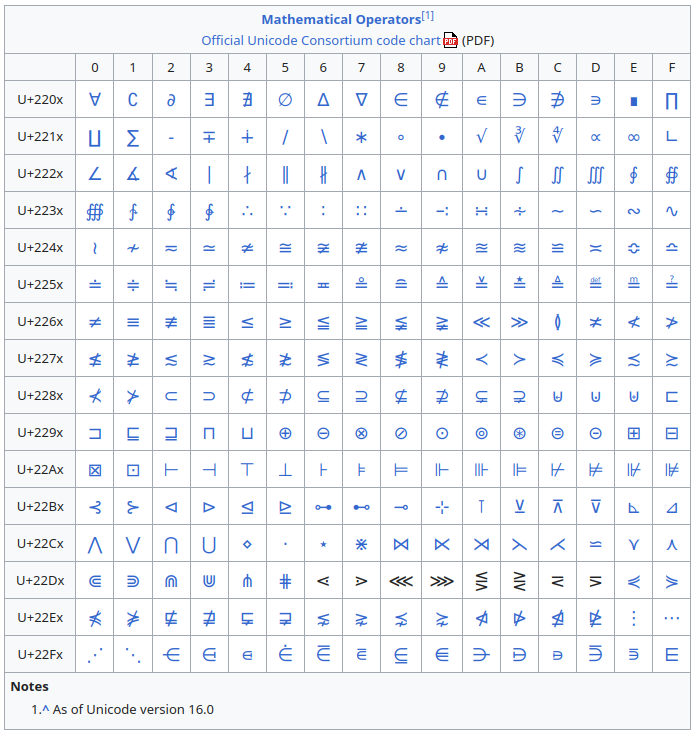
𒀹 [upu] One half ikû (unit of area).
So, what was that image with "alternative form of ge"? Does that 𒀸[ge] can be any other wedge?
(as if blows can come from any way, maybe by differing from 𒁹 to 𒌋 it had different insensity)
(but, I hope you understand, that is
speculatory; I have little idea, next to none)
Grok teaches: Can It Be “Any Other
Wedge”? No, Not Really: Cuneiform wedges
aren’t interchangeable like Lego bricks. Each
shape—horizontal (𒀸), vertical (𒁹), diagonal (𒀹),
Winkelhaken (𒌋)—has distinct roles. Scribes didn’t swap
them willy-nilly; meaning and sound shift with form.ا ب پ ت ث ج چ ح خ د ذ ر ز ژ س ش ص ض ط
ظ
ع غ ف ق ک گ ل م ن ه و ی
Doesn't this order expose, that arabic used to have only two vowels, the way ubykh language did?
ا ب ج د ر س ص ط
ع ف ق ک ل م ن ه و ی
It is because the other three are grouped at the end, they could be added later?
Well, it's hard to tell, but it seems so.
But then wouldn't ک ل م ن [(←) k l m n] be also borrowed somewhere?
Because they're at the end of opq and not before it.
Well, it is so speculative, that it should have been painted gray, but it's already coloured.
ع غ ف ق ک گ ل م ن ه و ی
Doesn't this order expose, that arabic used to have only two vowels, the way ubykh language did?
ا ب ج د ر س ص ط
ع ف ق ک ل م ن ه و ی
It is because the other three are grouped at the end, they could be added later?
Well, it's hard to tell, but it seems so.
But then wouldn't ک ل م ن [(←) k l m n] be also borrowed somewhere?
Because they're at the end of opq and not before it.
Well, it is so speculative, that it should have been painted gray, but it's already coloured.
Suddenly I realized which languages should I study: the extreme languages: since that ubykh only had two vowels, I have to look into it: it compensdated by complex system of consonants: probably, a different way of letterization of syllables. And suddenly I felt as their tradition could be the source of the disgusting arabic vomiting sounds (chechen speech is even more gross, like concentrated arabic. was they always the vanguard part? They are the whitest of them all, so they're boosted by our genes, and the question is should we merge as jews maybe want us to? But then some of them say that they want to substitute us, but intermixing is happening. Is it their way to solve the imbreeding problem? But if you mix a barrel of jam and a barrel of shit, you get two barrels of shit. So, abort? I was speaking of the jewish psy-op, but does it apply to cross-bred kids? Maybe not, half of their blood is white, so some peculiar uniqueness may appear, as we pretty much see here and there; but it shouldn't be motivated. But then there are people who think that it should. Thus I should push the other narrative, it takes two to tango)
isn't narrative ratty word?
what others are in the set? bias
(as bi? bi-ass? двояк(hypocritical (treats
his own kind better than others)))
agenda is a better synonym to bias (buy us, and I think I know
they're for sale, sluts (sale whats (чёта)))(продаёшь что-то?
отличный подкат к проститутке (но не надо, секс без любви
хуже дрочки))
(в бриллиантовой руке показывали как подкатывать к потенциальной проститутке!)
(в бриллиантовой руке показывали как подкатывать к потенциальной проститутке!)
Г П Т (check cursive forms, they're something like г̅ п̅ т̅̅̅̅̅ (I noticed that feature and could help it))
reflects
ΒΔ ϜΓ ΜΛ ΠΤ
A E I O Υ
on some larger level
Λ Ν Μ is on that same level
and it could reflect how lnm~гпт (only ..is it results of the stylization of similar structures missing the point of whether they count them by heads or by legs)
Did ΒΔ ϜΓ ΜΛ ΠΤ be bada bede bidi bodo?
And did back vowels o and u turned the consonants voiceless by disturbing vowels the vocal cords
Is две bilingual word? d as in digamma and diploid, ве as in besexual bisexual and bilingual
two as that bilingua is even more crazy: is t or v the second goes. t is two fingers crossed, v is two fingers on one hand. t is two sticls one on the top of the other. v is fingers.
First we had the numerals (these two noumerals) then we (humans)
намба ~ абман (эта бешаная идея в финале этого лежит)
(number) (обман)
слова слога слуга
word ward guard
>graffiti like the stuff at Pompey give us an idea of how words were actually pronounced as spelling mistakes often reflect real pronunciation in contrast to orthographic norms.
Or they were a dialectal forms, if they exist at all, of course, because if you knew the actual examples, you'd bring them up instead of making up silly examples like neeté kloob.
I know of one such example: people always thought that β was [v], and η was [i], until somebody found in a comedy a flock of sheeps saying βη. Well, duh. And what if the comical moment was in those sheeps actually being pigs? What I'm trying to convey here is one good and solid example of actual data is much better than empty academic verbosity the only message of which is "trust the experts".
They also say, that η was [h] in all greek dialects but one. Well, how about indexing such revelations, so I could easily check their way of thought and on what data it was based?
Be ~ vie!!! βη!?!?!?!?
Wiktionary does not yet have an entry for βη.
vieFR ~ lifeEN ~ ζωήGR
vivreFR ~ liveEN ~ ζωGR
vifFR ~ aliveEN ~ ζωντανόςGR
GR
vivanteFR ~ aliveEN ~ ζωντανόςGR
-antFR & a-EN
may tell that that a- is ã but it is not "not", I wonder why. alive is live as imflammable is flammable.
Grok explains
(but it's still to be taken with a grain of salt: though on this level it seems accurate,
going deeper it starts to spark giving some semi-accurate information, so I didn't check the etymology, but I told it to stick to texts, and he does, yet it's still not 100% correct in what he feeds me)
(but it's still to be taken with a grain of salt: though on this level it seems accurate,
going deeper it starts to spark giving some semi-accurate information, so I didn't check the etymology, but I told it to stick to texts, and he does, yet it's still not 100% correct in what he feeds me)
Ф is double G, which is exactly F as double Г.
возвращаясь к грузинскому (избегал его, потому что уж больно мудрёный и буквы на наши не похожи)
ა ბ გ დ
ე ვ ზ თ
ი კ ლ მ ნ
ო პ ჟ რ ს ტ
უ ფ ქ ღ ყ შ ჩ ც ძ წ ჭ ხ ჯ ჰ
а б г д это просто, почти как у нас
э в з т раскрывает предыдущую версию греческого (ΕϜΖΘ, про Ϝ было известно из изопсефии типа нумерации страниц наверное, а то что ничего подобного Η не было можно было лишь догадываться, когда историки древние рассказывали как две гласные в него добавили жрецы
..но в английском есть H: EFGH.
H before I, double before single (and h can turn into labials (in japanese, thus somewhere else as well))
EFG ~ EFZ is the common part.. wait.. EFG is latin, EVZ is georgian ~ greek (greece and colchis are the nearest neighbours (especially when anatolia was greek))
и к л м н это как у нас без и-краткой
о п ж р с т уникальна, потому что в еврейском там ц стоит и q, в латыни только q, а русском и греческом после п р, что говорит что они ранее были едины: pLA рRU
LA of Los Angeles is Latin (Latin America, as if Rome moved there)
NY of New York is Ynglysh writtne in Yiddish manner. Nemetsko-Yvreysky?
Ж and R make a claster.
And I look at the last line, being twice as long as the previous one. And I challenge what I know..
and no, no vowel to break it in two:
Tsani (asomtavruli Ⴚ, nuskhuri ⴚ, mkhedruli ც, mtavruli Ც)
and some shapes remind ц, but only vaguely. Ⴚ on the other hand is just G, and G of latin turns into Z in greek, which maybe tells, that it is Ž, отвлёкся,
Надо остальные два параллельно изучать, может какой из них проще войдёт.



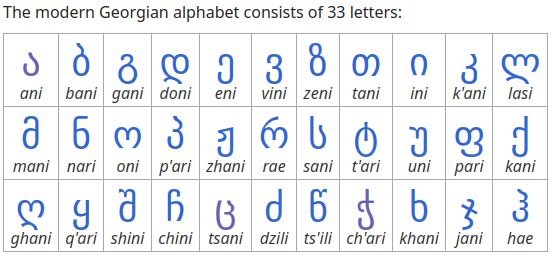
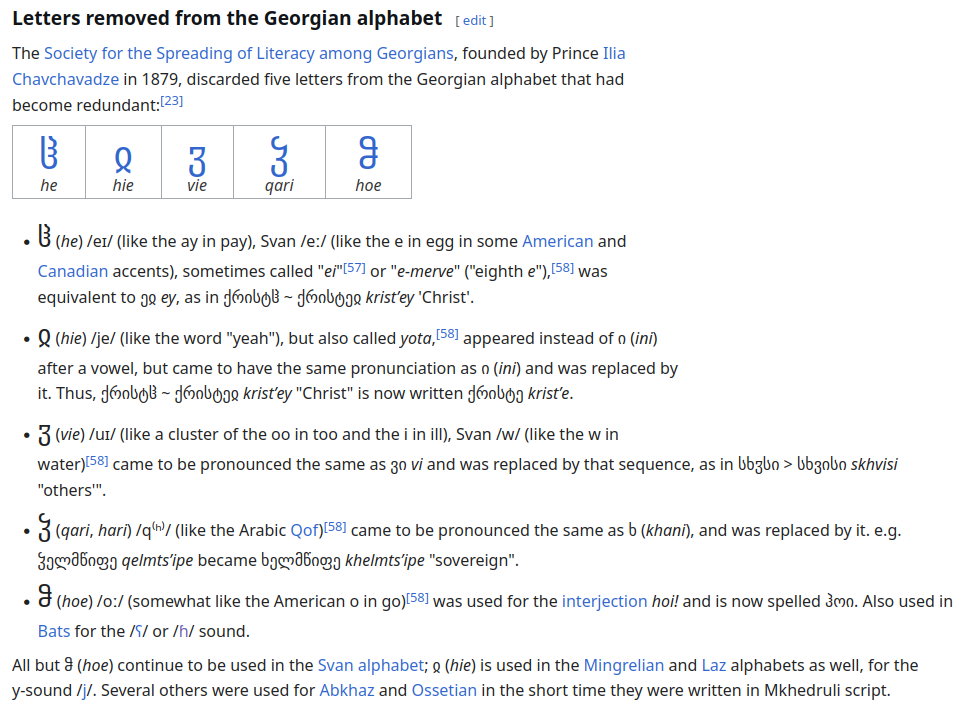
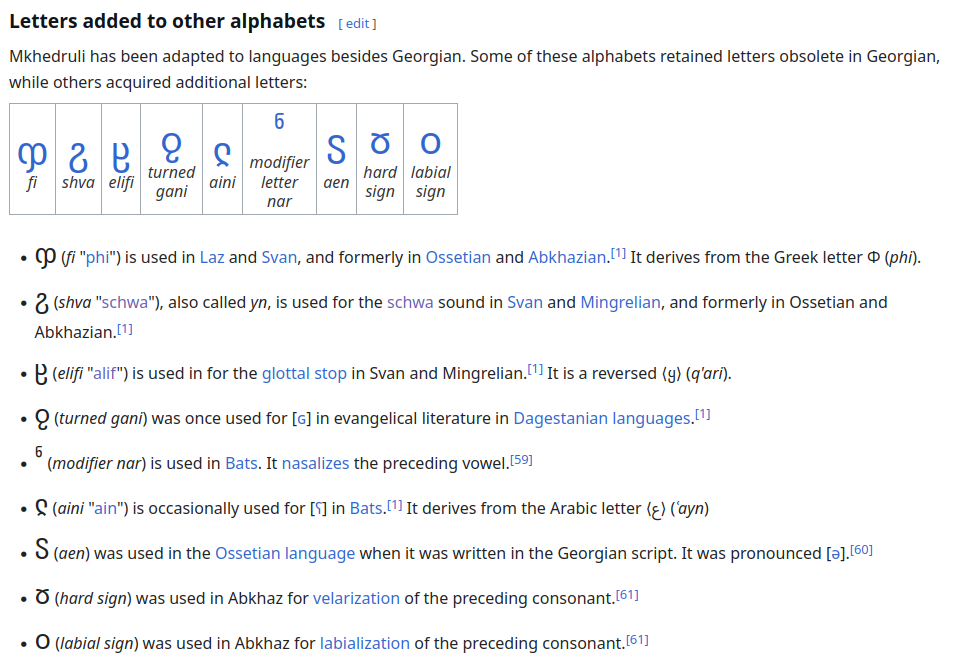
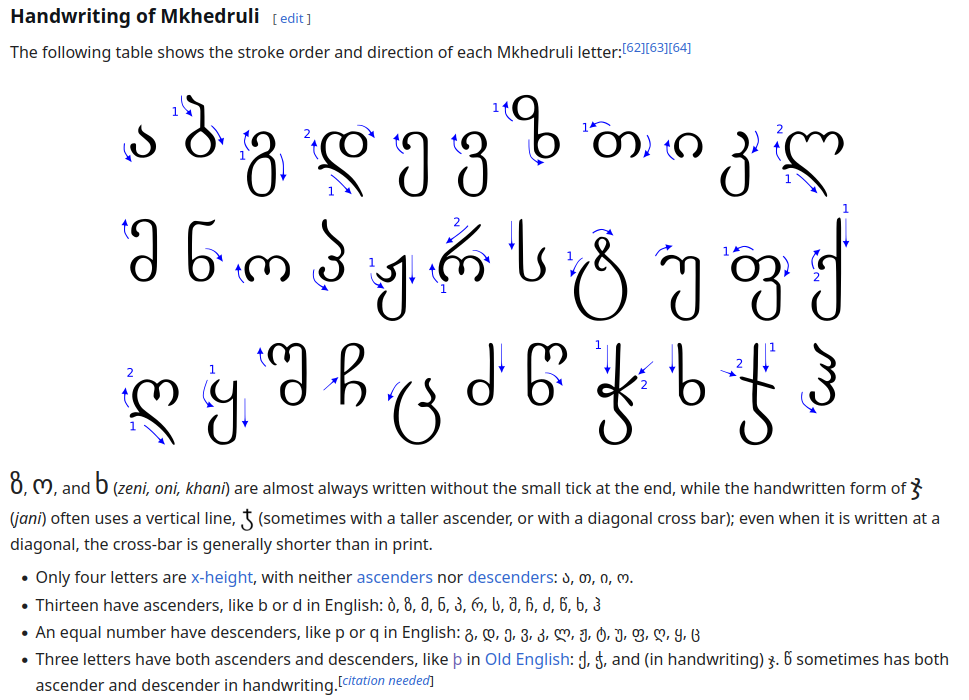
Russian table showing how mhedruli and mtavuli are two different scripts,
but basically they're the same. And though less obvious, but asomtavruli and nuskhuri are two scripts of a rather different writing system.
Asomtavruli's d is a letter I saw recently in a undecyphered tablet (in the end of the first half of this volume) but it's just a coincidence, for other shapes have nothing in common.
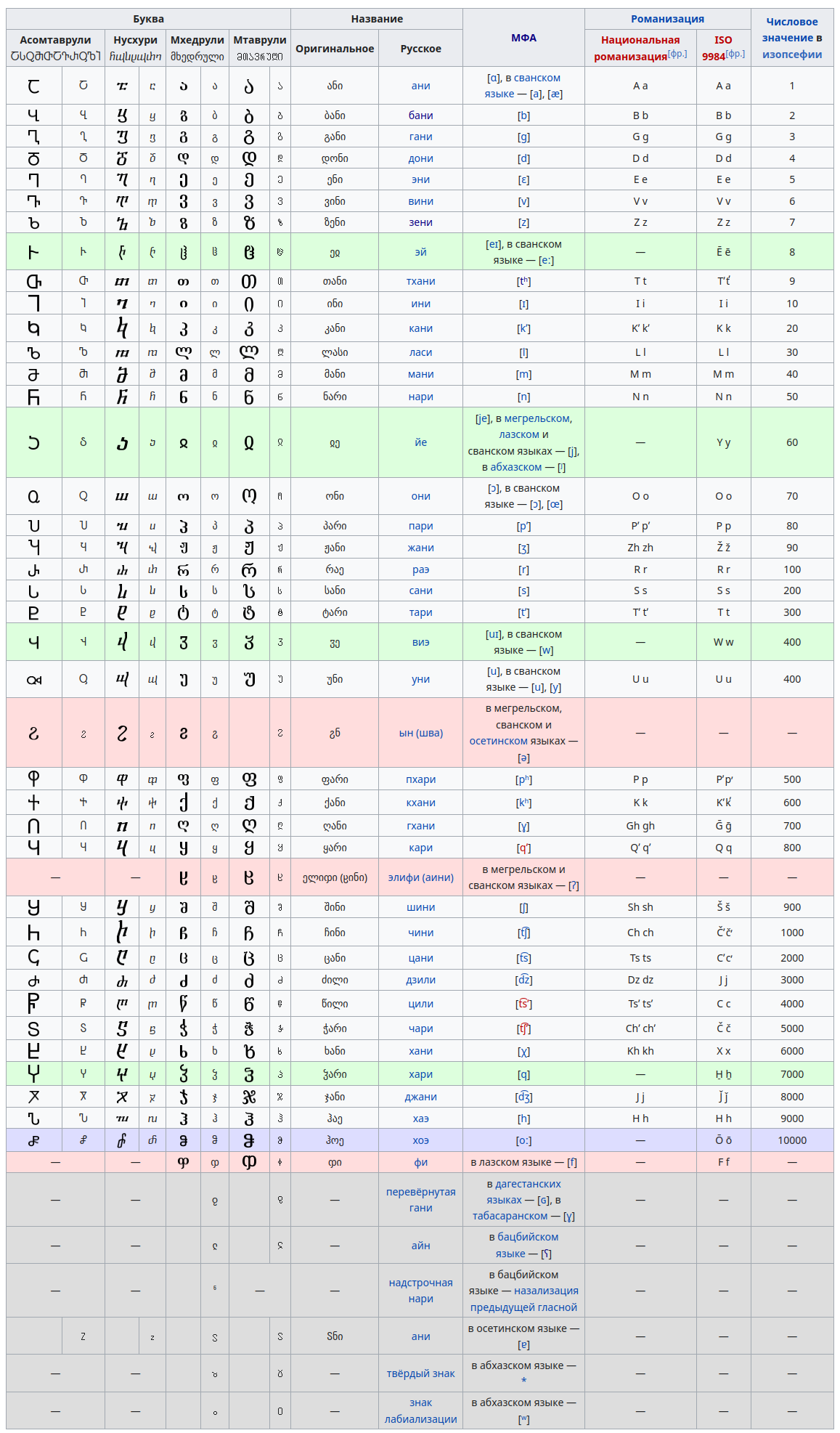
Ⴀ Ⴁ Ⴂ Ⴃ
Ⴄ Ⴅ Ⴆ Ⴇ
Ⴈ Ⴉ Ⴊ Ⴋ Ⴌ
Ⴍ Ⴎ Ⴏ Ⴐ Ⴑ Ⴒ
Ⴓ Ⴔ Ⴕ Ⴖ Ⴗ Ⴘ Ⴙ Ⴚ Ⴛ Ⴜ Ⴝ Ⴞ Ⴟ Ⴠ Ⴡ Ⴢ Ⴣ Ⴤ ჅჇჍ (the grey shapes are green or red in the table above, thus the table shows their numeral position, but unicode groups them at the end)
ⴀⴁⴂⴃ
ⴄⴅⴆⴇ
ⴈⴉⴊⴋⴌ
ⴍⴎⴏⴐⴑⴒ
ⴓⴔⴕⴖⴗⴘⴙⴚⴛⴜⴝⴞⴟⴠⴡⴢⴣⴤⴥⴧⴭ
ⴋⴌ in nuskhuri looks much more like in mhedruli-mtavruli, they are indeed different fonts of the same writing system. Maybe just as in latin A a a are all the same letter.
ა ბ გ დ
ე ვ ზ თ
ი კ ლ მ ნ
ო პ ჟ რ ს ტ
უ ფ ქ ღ ყ შ ჩ ც ძ წ ჭ ხ ჯ ჰ
Ⴉ [k] ~ ᛃ[j] (georgian and runic)
Ⴃ & დ have some spectacular graphic resemblance being almost nothing like one another.
They two give some concept. is it fruit? но ни фрут ни плод в грузинском с დ не начинаются.
Понимаешь в чём смысл разных шрифтов? Они показывают что-то общее, создавая "трёхмерность" объекта (плоское на бумаге, но в движении вариативности)
(следующее предложение просто пример, из другого текста, этот абзац про ритм предложений)
Это слишком ахуенно, чтобы не рассказывать, но и слишком пиздец чтоб рассказывать.
(русский ритм вообще не английскийй)
понятие дореволюционный период предполагает, что сейчас революционный. И, в-принципе, правильно. Но на самом деле речь про социалистическую революцию (которая прекратилась чтоли? куча психов заряженных по всему миру)
𓈙𓈚𓈛𓈜 the rectangular hieroglyphs all seem to represent teeth (be it just the white rectangular or a rectangula with a shine or their rectangular with the gap between jaws or them drawn almost individually (they're all transliterated as [ʃ] and it made me think of teeth, because ש[ʃ] is tooth)
𓈝 (the teeth on legs) is probably "сходить и договориться" because the list of egyptian hieroglyphs translates it as Go, set out (šm)
(ـد does look like an entrance of a tent)
ещё одна дельта~далет~dal~door:

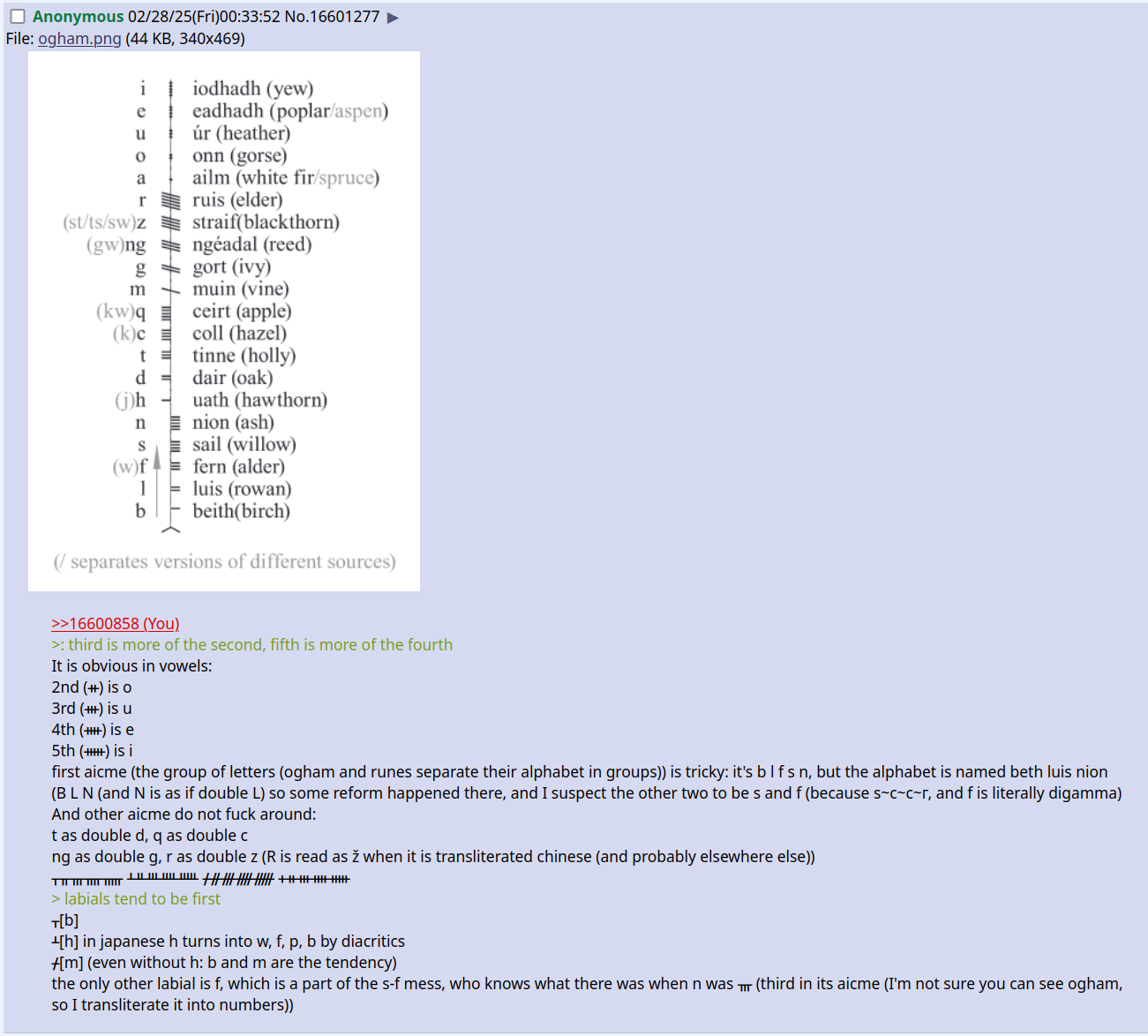
f would be the better first than h, and because h turns into f in japanese (our languages are related (I speak a lot of it elsewhere) and phonetic level is something rather deep)
Thus we can clarify the first aicme by the aide of the second one.
blnsh or blnhs? or something else? h and s are not too much pair ..unless h[ʃ], then it was blnsh and it places h right next to the f, as ᚅ to ᚆ, and I didn't expect it, it could stand anywhere. Is it a wild chance, which always has chance, or is it as important as L and R at the axial symmetry.
half Ш is ц or ч, and I had revelation of Ш earlier today: it is half Ф
B D
F Г Ф G Ф Ш Ф q Ф РGR 𐌚 𐌔 𐌚 S 𐌚 σ г, c, ш [g, s, ʃ] are all variations of the C glyph
Μ Λ
П Т
are prussian and gressian named after the way they call P, grecian~russian (probably divided by the way they pronounce that very Р[r] :пэй is jewish word for рот, рот is russian word for рот
Са́тори[1] (яп. 悟り, сатори; кит. 悟, у; санскр. संबोधि, самбодхи, дословно — «просветление») — в медитативной практике дзэн — внутреннее персональное переживание опыта постижения истинной природы через достижение «состояния одной мысли» (санскр. дхьяна или яп. дзэн).
В японской буддийской традиции сатори используется наряду с термином «кэнсё» — яп. 見性, кэнсё:, «ви́дение [собственной] природы». Мастера дзэн[кто?] подчёркивают, что кэнсё не является сатори, но является своеобразным «преддверием» к нему, не следует привязываться к этим переживаниям, подчёркивают они (как, впрочем, и к сатори)
кэн сё ~ can see (but 見 is see, 性 is sex, nature, character, gender, guality, -ity, -ness,
thus кэн сё ken ся
see ~ can? C!
C as eye?
Осо
отверстие,
углубление как глазница
глазница ~ десница ока? зеница ока, зрачок!
с путаных шагов на что-то интересное вышел
see ~ can? C!
C as eye?
Осо
отверстие,
углубление как глазница
глазница ~ десница ока? зеница ока, зрачок!
с путаных шагов на что-то интересное вышел
Thinking of how ц and ч are longer than c[k] it made me think of that c as of г, ʟ, 1, |
which makes H ~ ц, H ~ ч, but if H[ʃ] then ц and ч are wrong shapes of с (and c is double г))
(г is never long, c can be: с)
g is long as дж
is g[ж] double σ, double к, double c
is σ double c? is σ double c as s is?!
g is long as дж
is g[ж] double σ, double к, double c
is σ double c? is σ double c as s is?!
an hour or so ago we collected the modern state of double labial / single lingual
now, let's collect the double long / single short set of pairs:
And because it is nowhere as alphabetic as the previous group, I suspect it to appear later:
C as double Г (be it ч, с, ц)
S as double C (for c is k half of the times, s is never)
Ж as double K (makes sense only if K could be voiced, as ᚴ[k] with a dot in it, is ᚵ[g]
Z as double Г
N as double Λ
W as double V
X as double C
Щ as double Ц or Ч (or Ш as double Ч)
Щ as double Ц
Ш as double Ч
Y as double I
u as double i
P[p] as double F
В[v] as double b[b]
is ь b? one is soft, the other is labial (is other the or?)
so ъ d? as b and d of the old roman cursive, different only by the upper stroke:

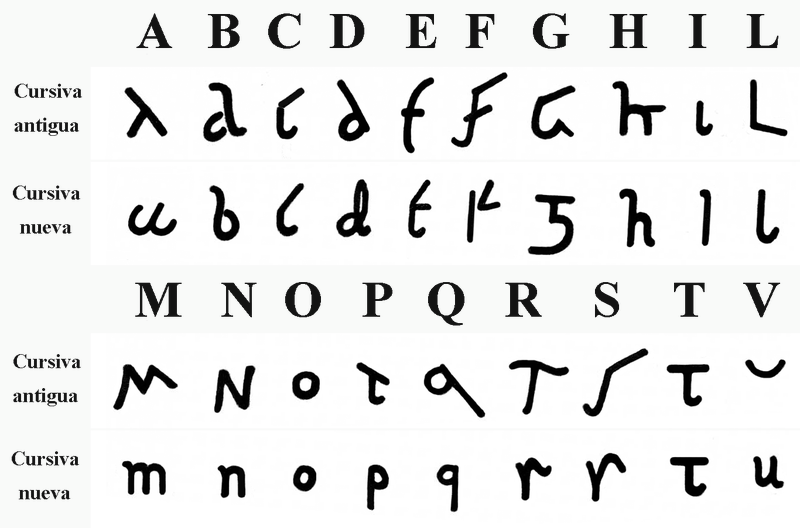
this one seems to be using my version of that more widespread yellow version,
and here (in the cursiva antigua) they contradict the ь~b and ъ~d
and then they have many images of old roman I didnt' see before:
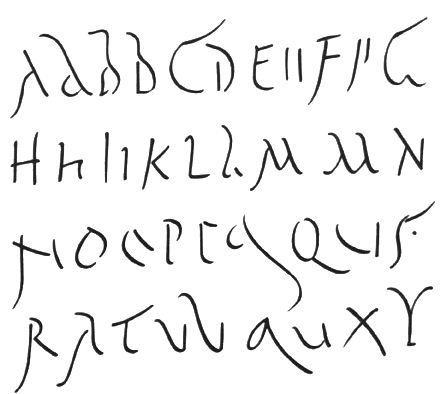 (1st
century)
(1st
century)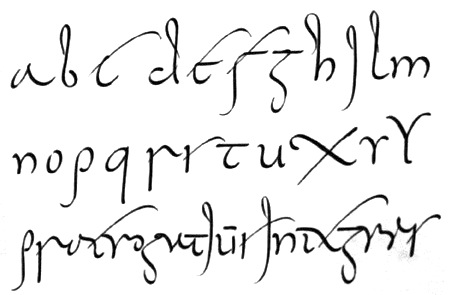 (4th
century)
(4th
century)and a couple of capital letters, the nex one is 4th century too:
and this one is from the 7th:

the one from the 7th century only fit the axial symmetry if the W is taken as two letters.
it fits into lineal symmetry better than
modern alphabert
the one from the 4th century only fits the axial if the Y's
after T somehow, or if they're both vowel, which is way more likely
the cursive of the 4th century knows X, and basically cursive
are hard to tell,because they collect different variants of
one letter, which is not a standard.
Are those double vertical strokes after E and F in the set from the 1st century
alternative forms of e and f or are they only some meaningless strokes?
Why would there be some meaningless strokes? But it links E to H and И
(well, those double vertical strokes are new to me too)
and then again how would I know if the abecedaries in capital letters are standard official alphabets of the periods and not something deliberately assembled by some modern linguist?
Well, that's what we work with.
Is it even work or fun? or both? or none? it can be all of above.
a e i o uAre those double vertical strokes after E and F in the set from the 1st century
alternative forms of e and f or are they only some meaningless strokes?
Why would there be some meaningless strokes? But it links E to H and И
(well, those double vertical strokes are new to me too)
and then again how would I know if the abecedaries in capital letters are standard official alphabets of the periods and not something deliberately assembled by some modern linguist?
Well, that's what we work with.
Is it even work or fun? or both? or none? it can be all of above.
a i u e o
a o u e i
aue of japanese and irish rings
what is actually the aue? could it be some foreign influence? who were офени? oveni (ove~aue)
Yes, I love the poetry of marginal russian.
oven
over
overt
love: l'oue
Franco-ProvençalEtymology (Compare the French ouais and oui.)
Interjection
ouè (ORB, broad) yes
Antonym: nan
ouais From oui via dialectal variants; also possibly from oyez. /wɛ/ [wэй]
Before becoming an informal synonym of oui, the word was exclamatory. According to Auguste Scheler, it could be linked to Indo-European roots: οὐαί (ouaí) in Greek, vae in Latin, uau in Portuguese, wow in English, wau in German, guau in Spanish or vai in Romanian.
T is an insisting typo today. What about it? Does it want to be decyphered too?
is T double Г? is T ᛐ?
fame / ʃame these two words look as if fame is shame with snake cut down. So he had a struggle, but he's famously overcome.
A B C D E F G H I J K L M N O P Q R S T U V W X Y Z
Б Г Д Ж З И Й Л П У Ф Ц Ч Ш Щ Ъ Ы Ь Э Ю Я
D F G I J L N Q R S U V W Y
Z
A B C E H K M O P T
these ten are common between the two
ten, T is Tenth
P ~ 9
O ~ ꙋ ~ 8
M ~ 7
K ~ 6
H ~ 5
E ~ 4
C ~ 3
B ~ 2
A ~ 1
M at the holy place, K as its opposite taking its place, b is great bi
not sure of others though, E would be way more epic as 3
(especially since 9 and P are also graphically opposite)
A B C
E H K M
O P T
A [a~e]
B [b~v]
C [g~s]
E [e~i]
H [h~n]
K [k]
M [m]
O [a~u]
I wrote vowels so rangey because I missed I,
and I allowed it because that's how they are
(few following lines are nonsense, I forgot to continue)
Yet of all consonants russians and english only agree of M and K
MK and AMZ as american and russian psychiatric conspiratorial terms:
MK is mkultra, and AMZ could be a local meme, but that's how everybody knows a psychiatric clinic in Chelyabinsk (my guess is thus that plant is the most tabooed one in all of Chelyabinsk.
and I'm not certain that I have to be exposing this data in this public document,
though it's an obscure document, hopefully they like the gamble)
And I was saying.. M K? it's M K T
and they're labial, velar, coronal
МаКеТRU?
make it?
And the alphabetic order is K M T
(which only makes me wonder if K is not 𑀅)
A M T or does 𑀅 disqualify the K?
M and T
(and both are seen as m(т(т)))
мать и тятя
мягкое и твёрдое
мять и трогать
МаТь
(I first saw in in my own mother, мaмa таня)
абвгдеёжзийклмнопрстуфхцчшщъыьэюя
абвгдеёжзийклмнопрстуфхцчшщъыьэюя
these ten are common between the two
ten, T is Tenth
P ~ 9
O ~ ꙋ ~ 8
M ~ 7
K ~ 6
H ~ 5
E ~ 4
C ~ 3
B ~ 2
A ~ 1
M at the holy place, K as its opposite taking its place, b is great bi
not sure of others though, E would be way more epic as 3
(especially since 9 and P are also graphically opposite)
A B C
E H K M
O P T
A [a~e]
B [b~v]
C [g~s]
E [e~i]
H [h~n]
K [k]
M [m]
O [a~u]
I wrote vowels so rangey because I missed I,
and I allowed it because that's how they are
(few following lines are nonsense, I forgot to continue)
Yet of all consonants russians and english only agree of M and K
MK and AMZ as american and russian psychiatric conspiratorial terms:
MK is mkultra, and AMZ could be a local meme, but that's how everybody knows a psychiatric clinic in Chelyabinsk (my guess is thus that plant is the most tabooed one in all of Chelyabinsk.
and I'm not certain that I have to be exposing this data in this public document,
though it's an obscure document, hopefully they like the gamble)
P [p~R (and if we recall פ, it's F~R
(and ᚢ rings it's П-ness))]
T [t]
And I was saying.. M K? it's M K T
and they're labial, velar, coronal
МаКеТRU?
make it?
And the alphabetic order is K M T
(which only makes me wonder if K is not 𑀅)
A M T or does 𑀅 disqualify the K?
M and T
(and both are seen as m(т(т)))
мать и тятя
мягкое и твёрдое
мять и трогать
МаТь
previous omnitenent word was love
(also containing in four letters
two types of vowels, labial and lingual)
love shows graphic consistency of Λ>V<
(not just angles, they also rotate clockwise)
and мать has graphic consistency of mт(also containing in four letters
two types of vowels, labial and lingual)
love shows graphic consistency of Λ>V<
(not just angles, they also rotate clockwise)
(I first saw in in my own mother, мaмa таня)
абвгдеёжзийклмнопрстуфхцчшщъыьэюя
абвгдеёжзийклмнопрстуфхцчшщъыьэюя

it begins as etruscan numerals: 𐌠𐌡𐌢𐌣 (and then, though in some distance, 𐌢 and 𐌣 are in that order)
It's as if, and that's not a crazy assumption, alphabet started as numerals and then it went on expanding from that. But why would labials be double shapes of the linguals if it started the other way around?
Maybe the ruling caste was replaced by
those who knew this things, but thought otherwise.
Maybe some other school of thought took over, and writing is very different from counting,
and basically физики и лирики (physicists and lyricist) are two opposite forces to this very day.
Maybe some other school of thought took over, and writing is very different from counting,
and basically физики и лирики (physicists and lyricist) are two opposite forces to this very day.
Like what if this was the original stone and they fabricated other artefacts on the basis of it?
Well, come on, runic poems, duh
What if it was written on the basis of the forgeries?
What if the forgeries were influenced by somebody adding the two strokes to this stone?
it is too many assumptions, I don't like this line of
reasoning because of them. Let's refocus.What if it was written on the basis of the forgeries?
What if the forgeries were influenced by somebody adding the two strokes to this stone?
A B D
E F Г
I M Л
O П Т
A
B D
E
F Г I M Л
О
П Т
if this stage existed, axial symmetry wasn't there.B D
E
F Г I M Л
О
П Т
Is axial symmetry the reason for other letters to appear?
because today it looks way better
12 are months, and it explains V-vowel, for there are from 12 to 13 moons per year.
I tried to see modern names in those letters, and A for Янваль and B for Февраль were great, D for March, not so much; E for Epril, F for May, Г for June, I for Iuly were great, M for Fug Agu August not so much, but it would be great for March; Л for september is not good; O for October though is perfect, П for november is shakey, but okay; T is the second best December, but then I have D to put it. let's rearrange those letters around these lines:
A B M
E F Г
I ? ? (Л Т (and Λ[l] ~ Ʌ[a] and T~S is the best I can offer you))
O n D
May is Фей? Very awesome, btw
L'august? last?
сентябрь ~ tentabre? Сень ~ Тень ~ tent oof тень?*
Thuis thing is even more wild than the previous one.
(in the sense that too many assumptions are in it (starting from the set of the letters, well, actually not, that one is legit, it is based into its own actual coincidence, most likely not accidental coincidence.
Я Ф М
А М И
И А С
О Н Д
russian names of months remind alphabetic sequence in that it is start its triads with vowels in 100% of cases, and they're followed with labials in half of cases (and N could slide as ν) and the supposedly lingual part has the most lingual vowel in it, and if it is J, it totally belongs, it also reminds Y; and M is the other exception, M, again. And where it belongs is August, and it is historically substituted for that name, which makes me wonder what it was before that. Секстябрь! Was it renamed because sex and sept are difficult to distinguish? M belongs there, March? June is not July, so no renaming there. S instead of M is something familiar, but let's stop this crazy stuff. It's too wild, well, it is a part of the story, this hypothesis is in the cast, let's see it it brings something, it is where the interest to calendars (which do hold keys to some elements of this theory, so let's cherish it, today it's more to the point than it was the previous time, so it's growing and maybe it is few revelations away from groking it)
furor
Alternative forms: furore furour (obsolete)
From Middle English furour, from Middle French fureur, from Old French furor, from Latin furor,
from furō (“I rage, I am out of my mind”).
Homophone: Führer
1 2 3 4 5 6 7 8 9
Iдиница
2войка
3ри
4етыре
5ять
6есть
7емень
8осемь
9евять
once again twoo many coincidences: Четыре Zeven восемь gевять
1диница тоже среди них, и это несколько очень чётких совпадений.
Я не был открывателем этого, хотя 4 7 8 и 9 вроде замечал сам, но прочёл и про них прежде чем это "совпадение" начал всерьёз воспринимать 6есть Бесть (bestia, beast, бес (весть?))
ש похожа на 6 повёрнутую на 90° обратноб вроде как 6 это Е
6 это Ш Е Ш т
but it takes only 5 sticks. Was 6 45? right after it was 4.
+ is cross (as on a grave, I wonder if before christians it was in use as well: it's a shape of a stick with a tablet attached(added+tied) to it.
attach add-touch? add-to-it?
I just need to find a language in which numerals are alphabetic, halahamic or whichever they are.
Sanskrit is the first candidate since the numerals are considered to be indian.
अआइईउऊऋॠऌॡएऐओऔअंअः कखगघङहचछजझञयशटठडढणरषतथधनलसपफबभमव ०१२३४५६७८९
and I can see no correlation between
these
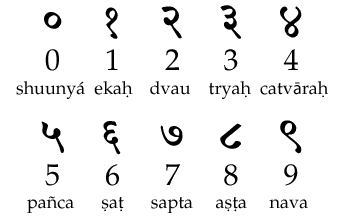
yet they do sound like european numerals,
except 1 and 0, which may tell that both those numbers were introduced later,
for is one a number or a unit? See what I mean?
and the four reminds russian chetyre way more than european four
(unless the var in that catvarah is four)
well, what did I get myself into again?
Maybe it plays out, maybe it doesn't.
The only way to figure it out is to roll all through this stuff, which I pretty much do.
(but that's it for today)

yet they do sound like european numerals,
except 1 and 0, which may tell that both those numbers were introduced later,
for is one a number or a unit? See what I mean?
and the four reminds russian chetyre way more than european four
(unless the var in that catvarah is four)
well, what did I get myself into again?
Maybe it plays out, maybe it doesn't.
The only way to figure it out is to roll all through this stuff, which I pretty much do.
(but that's it for today)
палочка ~ пальмочка
девица ~ дивиться (дева ~ диво)
chasm ~ schism
I just realized why rhombic dodecahedron is the philosopher's stone: see vol. 12
The human cells of a tissue are of the same size, thus they're aranged tightly as balls, and soft balls lay into rhombic dodecahedrone shape.
I realized it when I saw (in my mind) what honeycomb is, balls of the same size with soft walls, pressed against eachother.
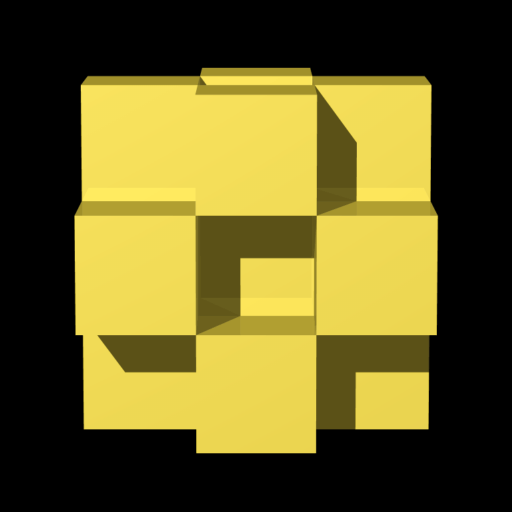
So that living in such capsule may create all the right forces within the body.
I knew that this shape is the philosopher's stone by several reasons, some of which are right there in vol.12 when I first mention it, and maybe some day I sort that up into a special volume.
I think this may be the subject of a new book.
I think I should write short important books instead of long and unimportant ones.
Like real short, like few pages short.
Философский камень.
В такую книжку следует включить и про додекаэдр и про BioViva и про лекарство от рака (чтоб сама книжка была философским камнем, и принесла бы мне золота)
(и такой вариант как любовь тоже можно включить
(делает вещи и людей дорогими, на вес золота))
Но мне нужен гост-райтер, я очень странно, даже чудо́во пишуВ такую книжку следует включить и про додекаэдр и про BioViva и про лекарство от рака (чтоб сама книжка была философским камнем, и принесла бы мне золота)
(и такой вариант как любовь тоже можно включить
(делает вещи и людей дорогими, на вес золота))
Антиукраинский движ это заговор московского кружка лингвистов стандартизировать русский язык по их стандаРТУ.
art
о рот (a рот)
оратор (о речель)
ор
р
ⵔ (tifinagh's R in the P spot)
𓂋 рот
по еврейски пей
п ~ r
pLA ~ рRU
прпрпрпрп пропердел губами
prprprprprp p r↑p↑r
ⵔ как о ⵔ (tifinagh's R in the P spot)
ⵔо ⵔо ⵔо
[ro] [ro] [ro]
Rah!
☉!
𐌏? (old-italic O)
𐰧? (old-turkiс nt)
ⵙ? (tifinagh s (sun! suntse!))
S as standing between Жа ир Ра
жир жар жор! (жир из мяса от жарки вытекает)
жарёха жирёха жорёха
the nex line is there, because the ⵔоs look more southern than in previous version of that rhyme, which seems more european, and I'm probably trippin, but maybe the nations have tendency to lay head on one or the other shoulder. This is statistically testable yet seemingly absurd observation.
ⵔ как о ⵔ (tifinagh's R in the P spot)
ⵔо ⵔо ⵔо
[ro] [ro] [ro]
Rah!
☉!
𐌏? (old-italic O)
𐰧? (old-turkiс nt)
ⵙ? (tifinagh s (sun! suntse!))
S as standing between Жа ир Ра
жир жар жор! (жир из мяса от жарки вытекает)
жарёха жирёха жорёха
probably some contrast with the previous ⵔ made them seem tid bolder, darker
tid ~ bit (a tid of tidy? tidy tiny?
tid (comparative more tid, superlative most tid) (obsolete) tender; soft; nice
Derived terms: tidbit
don't they see it in tidy?
prr как рот,tid (comparative more tid, superlative most tid) (obsolete) tender; soft; nice
Derived terms: tidbit
don't they see it in tidy?
p-r-r как просьба рот закрыть
(пердёж чтоб заглушить базар тупой, пердёж дабы отвлечь остальных от сказанного смешным)
(и глядя на него, того кому сказал заткнуться, мол это он напердел. и когда он скажет "это ты, а не я" сказать "чего пиздишь?" и невозможно будет определить касательно чего это было сказано, а потому публика будет смущена и не будет понимать бросаю я ему вызов касательно сказанного ранее или касательно обвинения в пердеже. Блин, о чём я думаю, о обезьяньем стае.)
обезьяньей стае
придуль придурь из этого пррр?Зачем я сочинил эту дикую историю? Чтоб показать дословную (до слов) интеракцию.
хитрый ушлый шимпанзеобразный предок такой
номер мог провернуть
Давай соберём слова с пр
пирог считается? непонятно пока
придурок
прибор
все слова на при
пру
прём
прёт
прёшь
проебёшь
все слова на про
прав
прах
(пруток) прут
(из серии про прёт) прут
пруд
пред
при вет
но ведь рот не прот, значит не пр а р надо смотреть
прут и рвут имеют одно общее: они напРолом
про значит насквозь, как рот, разрыв в коже.
R as in thRough
and indeed it is Rough, theRough
кРоить
поРоть
Резать
Рвать
Рубить
Р определённо имеет значение РазРыва
(звукоподражание царапанию, рванию, ломанию, они все на Р)
Интересно, почему в английском это гораздо реже: teaR ~ theR
bRake (а в русском всего лишь вялое ломать)
но cut (кроить и резать) и chop (рубить) без этого
тогда как пороть rip
ещё есть thrash and trounce
a native speaker would probably know more.
thRow ~ бRосать
сRush ~ кRушить
сRash ~ кRушиться
вRезаться
Oh happy day, March 8, 2025, 20:20Давай соберём слова с пр
пирог считается? непонятно пока
придурок
прибор
все слова на при
пру
прём
прёт
прёшь
проебёшь
все слова на про
прав
прах
(пруток) прут
(из серии про прёт) прут
пруд
пред
при вет
но ведь рот не прот, значит не пр а р надо смотреть
прут и рвут имеют одно общее: они напРолом
про значит насквозь, как рот, разрыв в коже.
R as in thRough
and indeed it is Rough, theRough
кРоить
поРоть
Резать
Рвать
Рубить
Р определённо имеет значение РазРыва
(звукоподражание царапанию, рванию, ломанию, они все на Р)
Интересно, почему в английском это гораздо реже: teaR ~ theR
bRake (а в русском всего лишь вялое ломать)
но cut (кроить и резать) и chop (рубить) без этого
тогда как пороть rip
ещё есть thrash and trounce
a native speaker would probably know more.
thRow ~ бRосать
сRush ~ кRушить
сRash ~ кRушиться
вRезаться
I just woke up and immediately got this present as the first thought:
A pentagram with vowels at one of its points, rolling round it star-like with labials at the other point, velars at the third or something, coronals at the third-fourth, I didn't count well, I count not very well.
I thouth that because they're four in line, the next vowels will be fifth. Silly me. I thouth that I like is going to be italian, and the o-line to be opst, and that would be it, but little did I know.
And such blunders along the way show, that it is not some knboosphere I'm dipping it from, that I buuild this knowledge by trial and error.
But then couldn't that be that I saw it and it is real, only it's not latin: russians have 5 letters in the first line, ugaritic does as well, and so on. So could there be an alphabet of five letters per line? Well, when it appears we remember this hypothesis and try it again.
Thinking of J standing at the M spot (the same time I thought of italian somehow) I thought of
MJ as MariJuana..
is there a term for it starting with J? J of Joy? M of Merry? The letters fit the function of it.
The genius of James Watson is also in his obvious scientific honesty.
But why would he pull his data as first decyphered human? Probably of schizo gene, maybe he was convinced that it's not cool to put it in the first widely known human genome? Did he choose Craig Venter to that role or was he ousted by that guy? Why would I wanna know? To know who's who in this field, well, we never really know. Or sometimes we can guess. We all have our opinions on it.
I wish people allowed their genetic data to be used. And if Jamie didn't pussy out, they would be asked at start if they allow the data to be used in scientific research, or if they don't. So that some of data would be not anonymous, which is good in the sense of further research.
I guess they offer medical data, but not
personal data to the genomes (otherwise how would they ever
decypher it in the first place)
such
sutj
суть
Возвращаясь к разговору о уёбищности кацапской мовы:
Сравни
нефтепереробный
и нефтеперерабатывающий
а-ты-ва-ющ можно зхаменить одной буквой н
и нефтеперерабатывающий
а-ты-ва-ющ можно зхаменить одной буквой н
Some authors who use the YBP dating format also use "YAP" ("years after present") to denote years after 1950.[12]
I think Y is redundant, BP and AP follow BC and AD (and it reveals that Christ = Domini,
because C = D
(both are g)
(gЕУС and gOD)
([deus] and [god]])
so it's 75AP, I think I'm gonna call my next book
Philosopher'Stone76AP(both are g)
(gЕУС and gOD)
([deus] and [god]])
and if I need to publish an update, it's going to be Philosopher'Stone88AP or something
Halelluya! Mushroom substituted cross.
Both are ways to kill people, btw.
And it seems military overturned jurists.
But then Trump showing pootin how cool cats do the business of expanding their border
(that carrot is better than stick)
(пряник лучше кнута (gingerbread is better than whip))
when Greenland joins them the way Hawaii did.
Thus military people only take it from bureaucrats to hand it to bourgeoisie.
Both are ways to kill people, btw.
And it seems military overturned jurists.
But then Trump showing pootin how cool cats do the business of expanding their border
(that carrot is better than stick)
(пряник лучше кнута (gingerbread is better than whip))
when Greenland joins them the way Hawaii did.
Thus military people only take it from bureaucrats to hand it to bourgeoisie.
Here, added an interesting piece into cognates:
九 [kyu] nine is like カ[ka] of K, and u
and semantically 九 could be 十 minus 一 (u for uno? before V was 6, 5, 4, even 2, it was 1?)
that stroke at it's top, as in イ, makes it
similar to 𐌡
was ✓-like 𐌡 the V used for 𐌠?
in unary system what glyph you use doesn't matter, they're all one.
✓ is a great glyph to distinguish marks from casual meaningless strokes.
So what is 1 if not ✓
ein as aye
and if 九 十 is animation, then 八 id s is
in the sequence: 五 六 七 八 九 十was ✓-like 𐌡 the V used for 𐌠?
in unary system what glyph you use doesn't matter, they're all one.
✓ is a great glyph to distinguish marks from casual meaningless strokes.
So what is 1 if not ✓
ein as aye
七 八 九 十 I could see animated, and I had
troubles seeing 六 七 八 九 十,
like why would it remove the left leg if it was one more further?
And what if they're dancing moves:
六 as standing straight with arms apart,
七 as rotating one one leg
八 is legs are back up straight on the scene.
九 is rotating agian, the letter shares the leg stroke with 七
十 is standing straight with hands apart (руки в стороны)
五 reminds 男like why would it remove the left leg if it was one more further?
And what if they're dancing moves:
六 as standing straight with arms apart,
七 as rotating one one leg
八 is legs are back up straight on the scene.
九 is rotating agian, the letter shares the leg stroke with 七
十 is standing straight with hands apart (руки в стороны)
五 shouldda share leg with 七 and 九, and can you see it, it seems it's ther, the prominient end of 七 is basically the end of 一, maybe neutralizing the previous curve, that it's neither way, but don't you see the upper stroke at the right end of 一?
亮 is all separated, it's bright, light, [Liàng]
addiction ~ addition (that's as if something attaches itself to the addict's personality)
> Just kill 'em all.
Should we eat the bodies too?
Here too is like да, вкусовая добавка не являющаяся необходимой.
И это заставляет меня думать что и to ~ да, что и два~да
до — да
на — no (но-но-но (no-no))
but~no, to~yes?
but as bu-to (no-to, unto)
(I have no idea if this si based or baseless, just trippin' catching what I can)
у япошек козы и овцы один вид:
козёл для японцев горный баран: 山羊
две диалектные формы одного слова:
не́фор и ни́фер к гласным вообще довольно вольно относятся. Единственной консист.. согласованностью является то, что первая гласная палатализированней второй.
ну и ударение, да
isolation as in island
изо как предлог (из основа этого предлога, о соединительная гласная. В русском их две: о и е.
о и е это походу и есть те самые протогласные, которые я вижу как а и и, но это сочетается с тем что а была добавлена позже, значит е и есть это a, ибо в алфавите е стоит перед о (и они сгруппированы: и после е, у после о)
ШI found reiki in the most unusual way: my mother recommended me to her healer, and unless she has hot potatos in her pocket, the hands are really hot, so at least she can move energy that way, and she sent me colours, I saw colours of tint I usually don't see, or maybe even never saw: bright green, and after that deep blue (she asked if it was violet, I said, well it could be, but no, it was deep blue, yet different from the blue I saw while trippin, in the shape of sacred deva, but for others that shape could look like something else, maybe jews saw it as penis without upper flesh. какой-то хуй, в их советском союзе говорили. Какая-то пизда, и я видел святую мадонну в виде вульвы тоже.
Shapes are physiologic, interpretations are psychologic.
Interpretations are psychologic, shapes are physiologic.
English is very rhythmic, that's why words like psychological should be only used before weak syllable.
Yet the word physiologic breaks the rhythm, as if telling that
nature is ancient, but it surprises and scares.
scar (царапина) scare (отделался лёгким испугом (царапинами это следующий уровень отделки))
((или же, о чём и это, scare and scar were
the same
scars are scary))
According to the Oxford English Dictionary,
the English alternative medicine word reiki comes from
Japanese reiki (霊気) "mysterious atmosphere, miraculous
sign", combining rei "universal" and ki "vital energy"—the
Sino-Japanese reading of Chinese língqì (靈氣) "numinous
atmosphere".scars are scary))
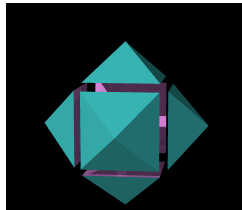
Куб венчаный пирамидой, ромбододекаэдр, роби ромбический двенадцатигранник.
Голос мой резонирует на нескольких нотах: раньше знал лишь о звонкой хэй (может еврейских азбук хэй оно же) которое как хлёсткий удар голосом. А выйдя из кабинета рейки пел высокую ноту, которой раньше петь не умел. Словно медитация связок, они переходят как будто на следующий уровень и меццо-сопрано наверное не тенор почти, на пересечении их, почти сопрано может даже, я выпендриваюсь не зная точно этих дефиниций.
И эти две ноты по сути Е и О, но по эмоциям это те самые е ǝ of yeas and ohyou
yeah and ahye!!!
yeah and ah you are e a and o u
i is a? is it why english calls it ʌɪ!
ай и йа это И the I?
E = ye?
I = I
O = our?
U = us? U included, U plural.
E and I are high, and we write from the top down.
O and U are low, these are the obvious, but I only decoded the hight note and its colour is O.
O the U is higher than E the I
Technically it is very naturally possible, but I didn't expect it to be so.
Is it because highness of O is compensated by its low or of labial?
And that could be the explanation of ogham putting labial vowels before гласных верхнего подъёма
yeah and ah you are e a and o u
i is a? is it why english calls it ʌɪ!
ай и йа это И the I?
E = ye?
I = I
O = our?
U = us? U included, U plural.
E and I are high, and we write from the top down.
O and U are low, these are the obvious, but I only decoded the hight note and its colour is O.
O the U is higher than E the I
Technically it is very naturally possible, but I didn't expect it to be so.
Is it because highness of O is compensated by its low or of labial?
And that could be the explanation of ogham putting labial vowels before гласных верхнего подъёма
It seems the script we call arabic today evolved out of syriac, which is this:
(I'm proud that use of colours in linguistics is taking roots: they are of 2014, I first posted a year earlier)
د and ر are still the same letter in two out of three fonts,
ܐܑܒܓܔܕܖܗܘܙܚܛܜܝܞܟܠܡܢܣܤܥܦܧܨܩܪܫܬܭܮܯ0ܱܴܷܸܹܻܼܾܰܲܳܵܶܺܽܿ0݂݄݆݈݀݁݃݅݇݉݊ݍݎݏݐݑݒݓݔݕݖݗݘݙݚݛݜݝݞݟݠݡݢݣݤݥݦݧݨݩݪݫݬݭ
ݮݯݰݱݲݳݴݵݶݷݸݹݺݻݼݽݾݿހށނރބޅކއވމފދތލގޏސޑޒޓޔޕޖޗޘޙޚޛޜޝޞޟޠޡޢޣޤޥަާިީުޫެޭޮޯ0ްޱ
ܐ
ܒ ܓ
ܔ ܕ ܖ ܗ ܘ ܙ
ܚ ܛ ܜ ܝ ܞ ܟ ܠ ܡ ܢ ܣ ܤ ܥ ܦ ܧ ܨ ܩ ܪ ܫ ܬ ܭ ܮ ܯ 0ܱܴܷܸܹܻܼܾܰܲܳܵܶܺܽܿ
ܘ as vav is oh: Lowercase omega (ω), used only in the vocative interjection ʾō (ܐܘّ, 'O!').
but ܛ as ט confused me with this line: Pšīṭā (ܦܫܺܝܛܳܐ, 'simple') because in greek it's psilo
Here's a better representation from benedicted wikipedia:
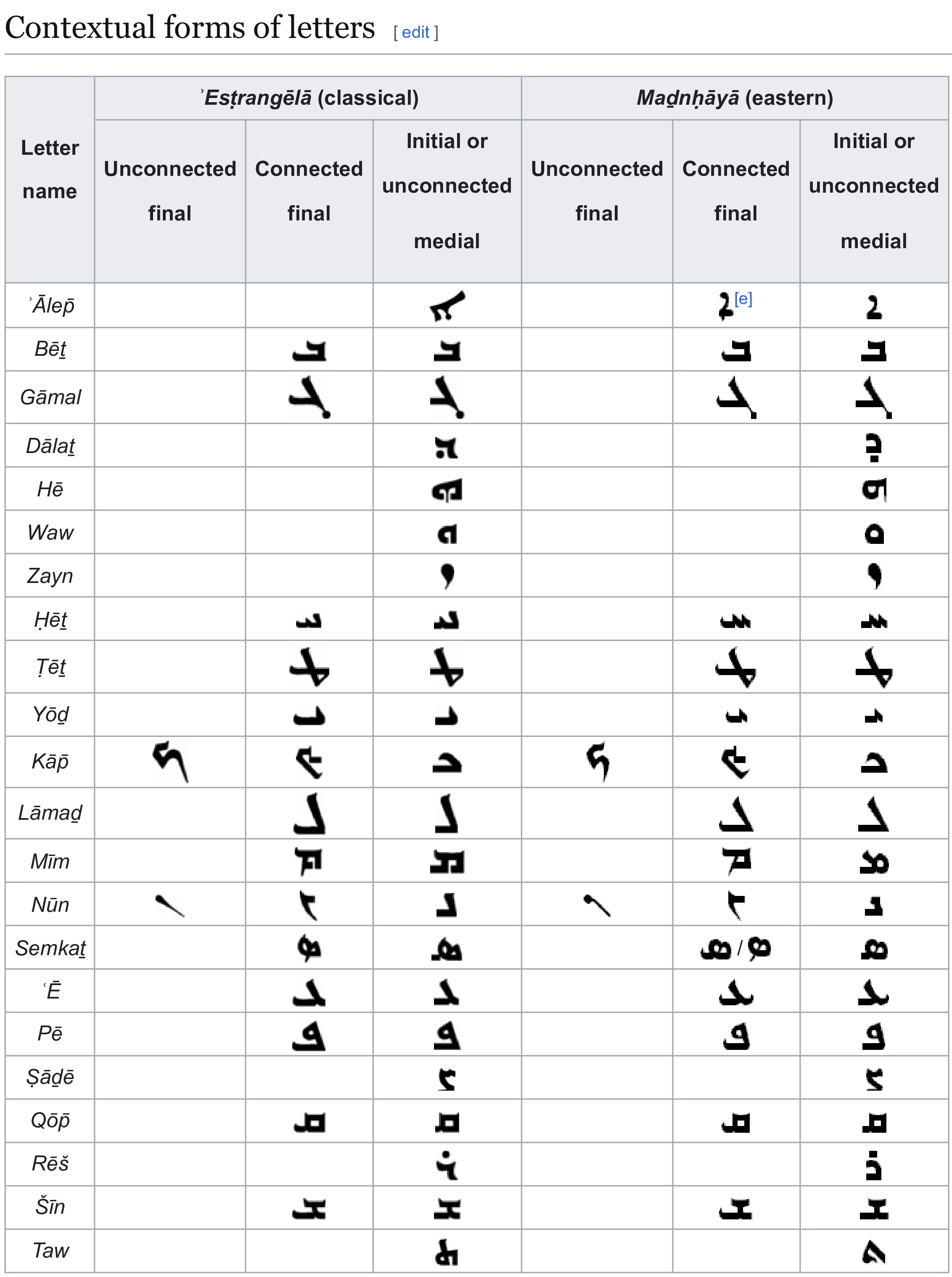
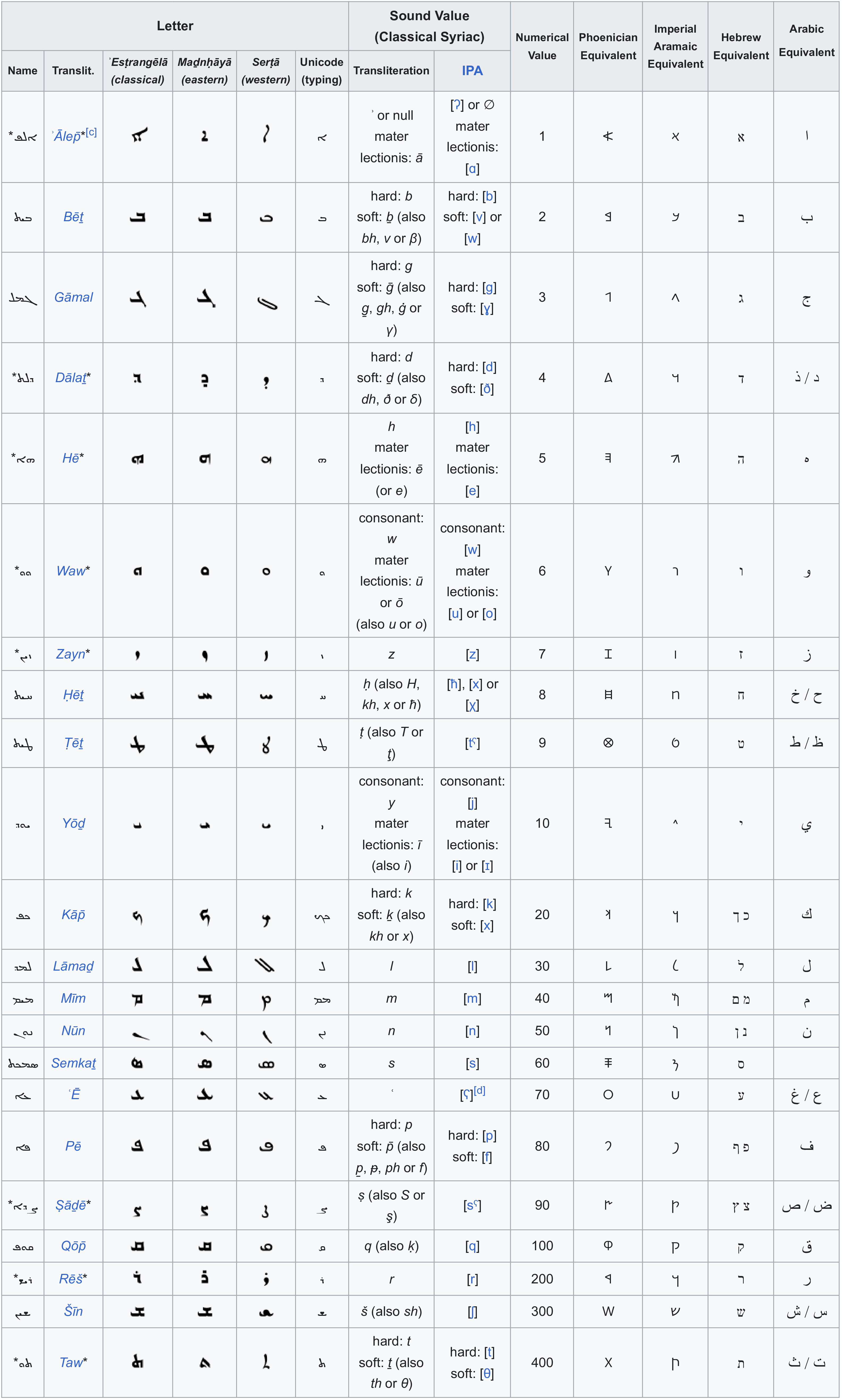
Look at Imperial Aramaic in that picture:
R and K look exactly the same
(is it how they got mismatched (mishmashed) in russian alphabet?)
(it russian alphabet if those two swapped places, it would be voiced consonants before voiceless consonants without any exception)
How am I supposed to put all these shapes into my head?R and K look exactly the same
(is it how they got mismatched (mishmashed) in russian alphabet?)
(it russian alphabet if those two swapped places, it would be voiced consonants before voiceless consonants without any exception)
Let's start with Imperial Aramaic:
𐡀𐡁𐡂𐡃𐡄𐡅𐡆𐡇𐡈𐡉𐡊𐡋𐡌𐡍𐡎𐡏𐡐𐡑𐡒𐡓𐡔𐡕𐡗𐡘𐡙𐡚𐡛𐡜𐡝𐡞𐡟
and here comes Palmyrene for comparison:
𐡠𐡡𐡢𐡣𐡤𐡥𐡦𐡧𐡨𐡩𐡪𐡫𐡬𐡭𐡮𐡯𐡰𐡱𐡲𐡳𐡴𐡵𐡶 𐡷𐡸𐡹𐡺𐡻𐡼𐡽𐡾𐡿
𐡠
𐡡 𐡢
𐡣 𐡤 𐡥
𐡦 𐡧 𐡨 𐡩 𐡪 𐡫 𐡬
𐡭𐡮 𐡯 𐡰 𐡱 𐡲
𐡳 𐡴 𐡵 𐡶
and here it made it difficult, because 𐡭 and 𐡮 are both nun
(I wonder why they don't have final forms got other letters)
(and basically that's it's only difference from hebrew and phoenician)
(does phoenician have final forms of the letters?)
(as far as I can see, it did not. Palmyrene is as if halfway from phoenician to hebrew)
Nabataean:𐡡 𐡢
𐡣 𐡤 𐡥
𐡦 𐡧 𐡨 𐡩 𐡪 𐡫 𐡬
𐡭𐡮 𐡯 𐡰 𐡱 𐡲
𐡳 𐡴 𐡵 𐡶
and here it made it difficult, because 𐡭 and 𐡮 are both nun
(I wonder why they don't have final forms got other letters)
(and basically that's it's only difference from hebrew and phoenician)
(does phoenician have final forms of the letters?)
(as far as I can see, it did not. Palmyrene is as if halfway from phoenician to hebrew)
𐢀𐢁𐢂𐢃𐢄𐢅𐢆𐢇𐢈𐢉𐢊𐢋𐢌𐢍𐢎𐢏𐢐𐢑𐢒𐢓𐢔𐢕𐢖𐢗𐢘𐢙𐢚𐢛𐢜𐢝𐢞𐢧𐢨𐢩
𐢀
𐢁
final b: 𐢂 simple b: 𐢃
𐢄𐢅𐢆𐢇𐢈𐢉𐢊𐢋𐢌𐢍𐢎𐢏𐢐𐢑𐢒𐢓𐢔𐢕𐢖𐢗𐢘𐢙𐢚𐢛𐢜𐢝𐢞
𐢀 (this strange letter is recognized as Aramaic Aleph, but
wiktionary tells it's also Nabataean)𐢁
final b: 𐢂 simple b: 𐢃
𐢄𐢅𐢆𐢇𐢈𐢉𐢊𐢋𐢌𐢍𐢎𐢏𐢐𐢑𐢒𐢓𐢔𐢕𐢖𐢗𐢘𐢙𐢚𐢛𐢜𐢝𐢞
(the following table from wiki also tells that Aleph is not bull, but sun depicted as ࿖
but then that table in a different order..
Taw right after Bet? I saw such order in some obscure form of Tifinagh,
and here I see that they took it after
arabic.
And thus that obscure Tifinagh's question is closed.
And thus that obscure Tifinagh's question is closed.
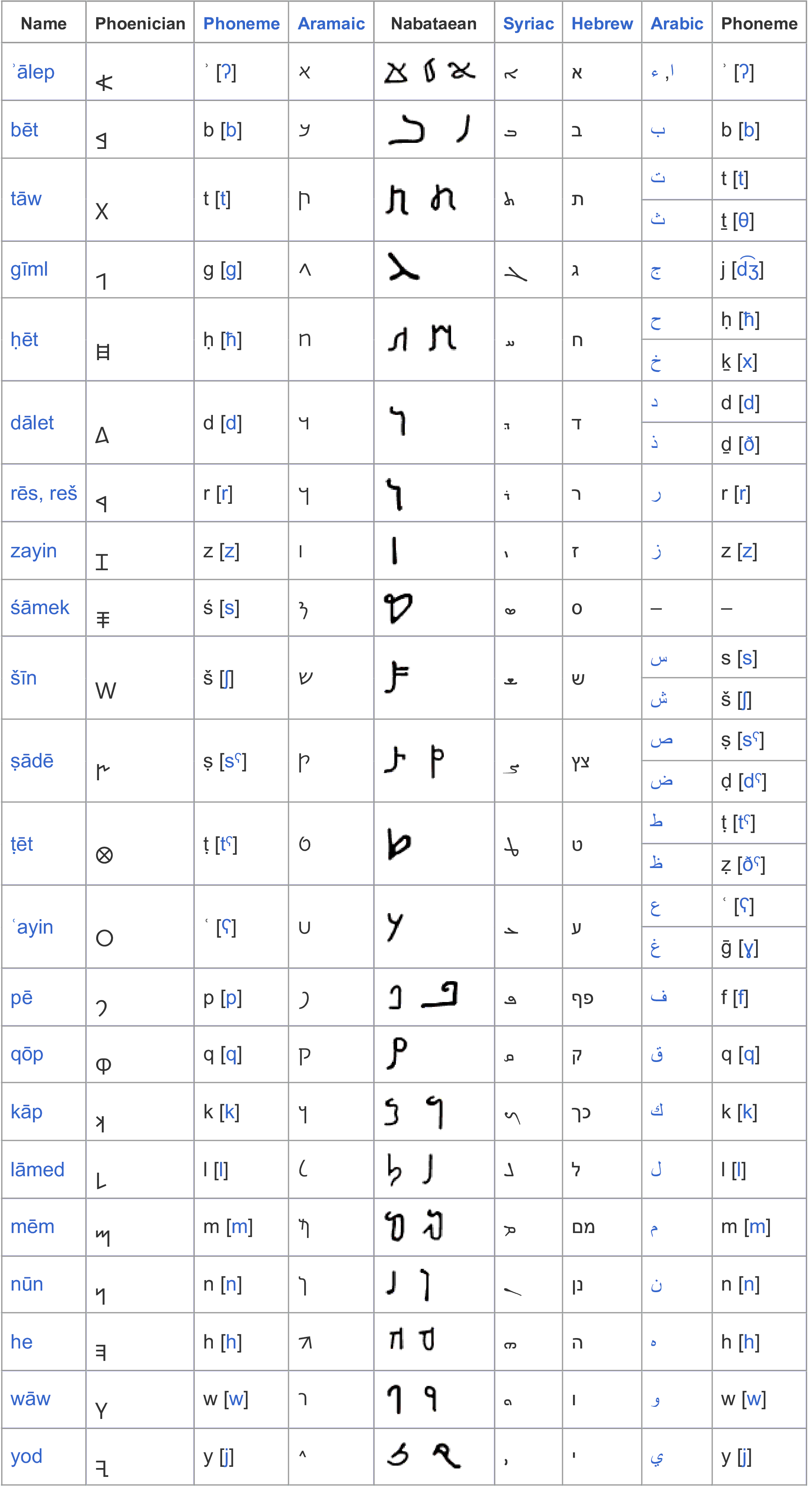
and that very 𐢀 tells that "a" is that very ࿖
a is triskelion then, and thus e is what? the same triskelion is it? б and g would be the opposite triskeliion, and isn't it great that they compliment two vowels being two consonants.
Arabic reminds ogham in that b(ب) is 1 and t(ت) is 2 on a different aicme
even though in ogham that would be d, and t of ogham is th(ث) of arabic.
This is also supported by پ being p, while ᚃ is f (which probably was n in the past
and that would remind p the п by
shape,
but the way they are now is way more impressive)
ᚆ[h] ~ ن[n]but the way they are now is way more impressive)
hdt ~ ntθ
blf ~ bIp (l~i(ی goes with two dots as well) is interesting and unexpected)
also notice how they prefer three dots to two:
ا ب پ ت ث ج چ ح خ د ذ ر ز ژ س ش ص ض ط ظ ع غ ف ق ک گ ل م ن ه و ی
basically, only three letters have double dot: ت(t), ق(q), ی(i)
but there are twice as much letters with three dots: پ ث چ ژ ش
and even twice as many singly dotted letters: ب ج خ ذ ز ض ظ غ ف ن
And to my surprise there are as many undotted letters as singles and doubles combined:
ا ح د ر س ص ط ع ک ل م ه و
and 13 letters would be perfect for months,
and is diacritics making those other letters non-perfect?
I play with these letters mostly to know them better:and 13 letters would be perfect for months,
and is diacritics making those other letters non-perfect?
ص and ط do look made up, so similar yet somewhat different from the others, and they're samekh tzadi and theth, the letters latin alphabet doesn't have.
ا ح د ر س ص ط ع ک ل م ه و has two vowels and two labials, which makes me wonder if I should have a look at some other order
Since I put ن into ث's category, it's only natural to consider ف ق forms of و
but then I was speaking about it, that's
what broki working without
weed brings
топить печку
топить масло
топить котят три довольно разных значения у одного слова, интересно отчего. от чего.
топить дом
топить лёд
топить горе в рюмке
первые два значения оттапливать, от слова таять
топить баржу каким образом к этому таять?
топь болото (от этого слова топить)
топь болото потому что растаяло, жидкая грязь.
растопило растекло ..т как в слове терма? температура? тре термопература или м~n~п?
WEhen regime changes many russians who lived abroad for years shall return to build here what they learnt there.
aNd in that sense Putin's role in russian history is similar to the role of Peter the great, surprisingly.
А это значит что исконно-посконные (аутентичные) абеседарии написанные справа налево должны иметь R вместо К (wouldn't L of ILMN satisfy me?)
и Q но не R (but here the best I can do is R instead of P in tifinagh)
come here ~ come 'ere ~ ко мне [ko mi: (co me)]
роба раба
рыба ряба
р следует запретить:
не ребятишки, а лепетишки (детский лепет)
не рыба а liebe (будь то любимая и лёгкая еда либо пизда)
не рок а luck, look
не рэйв а love, wave
не резать а лезать как лезвием,!:?
не рубить а лупить!
Похоже, К (да R же!) совсем недавно появилась
не рычать, а лаять!
не ругать, а лажать?
не ремень а ..... длинень и вымень только на ум пришло, но оба ниачом
не рубашка а любашка?
не брюки а ...лексикон дизайнелов похоже букву р просто для понту использует,
расти ~ лесть лезть (различные формы С для смыслоразличения появились, когда слова явили слишком много значений)
грызть ~ gnaw (но [no] makes me wonder if грызть = no, seems way too stretched)
т ~ λ
τ ~ λ
hoop ~ loop
Meditating (looking while high) at this one,
.png)
I noticed that F K S is pretty much the order of consonants: labial, velar, coronal.
And what could make it even more to the point is if ᚠ was actually ᛓ, and then it would be BKS, as in books.
And if those aettir are labial, velar, coronal (and not labial, vowel, lingual, as I previously sugested) then two letters of the labial aet are in the coronal aet, and visa versa, and if there were only three runes per aet at first, then
U and O are labial vowels, but maybe ᚦ and ᚱ can do better in the third, coronal aet.
I and A are non-labial vowels, and maybe they're with velars, because Sefer Yetzirah calls vowels that.
But maybe vowels were added later, and before them there were only three runes per aet, then those aettir would be
ᚠᛒᛘ᛬ᚴᚼᚾ᛬ᛋᛏᛚ
or
ᛓᚢᛘ᛬ᚴᚼᚾ᛬ᛋᛏᛚ
or something along these lines
and unicode's aettir wouldn't allow to see that ᚠᚢᚦᚬᚱᚴ᛬ᚼᚾᛁᛅᛋ᛬ᛏᛒᛘᛚᛦ
топить печку
топить масло
топить котят три довольно разных значения у одного слова, интересно отчего. от чего.
топить дом
топить лёд
топить горе в рюмке
первые два значения оттапливать, от слова таять
топить баржу каким образом к этому таять?
топь болото (от этого слова топить)
топь болото потому что растаяло, жидкая грязь.
растопило растекло ..т как в слове терма? температура? тре термопература или м~n~п?
нет, термература
(темп ~ терм?) как форма ~ morph? не совсем, но
примерно.
тер как тереть? терма от слова тёр? rub? tear? rubber?
тер как тереть? терма от слова тёр? rub? tear? rubber?
WEhen regime changes many russians who lived abroad for years shall return to build here what they learnt there.
aNd in that sense Putin's role in russian history is similar to the role of Peter the great, surprisingly.
And thus PV can
be seen as Peter the Vth.
варит валит (сначала валит, а затем варит. Может для того
и в алфавите р после л. но если бы К and R (the same
button on qwerty keyboard) поменялись местами, R была бы
перед L, а это может означать, что замена была произведена
при замене традиции писать с правого края на традицию
писать от края левого (может для того, чтоб быть правым не
с начала написания письма, а к концу письма показать
читателю, что ты прав)А это значит что исконно-посконные (аутентичные) абеседарии написанные справа налево должны иметь R вместо К (wouldn't L of ILMN satisfy me?)
и Q но не R (but here the best I can do is R instead of P in tifinagh)
come here ~ come 'ere ~ ко мне [ko mi: (co me)]
роба раба
рыба ряба
р следует запретить:
не ребятишки, а лепетишки (детский лепет)
не рыба а liebe (будь то любимая и лёгкая еда либо пизда)
не рок а luck, look
не рэйв а love, wave
не резать а лезать как лезвием,!:?
не рубить а лупить!
Похоже, К (да R же!) совсем недавно появилась
не рычать, а лаять!
не ругать, а лажать?
не ремень а ..... длинень и вымень только на ум пришло, но оба ниачом
не рубашка а любашка?
не брюки а ...лексикон дизайнелов похоже букву р просто для понту использует,
неправильные слова
ров лов? ловят в ров! Вот чем это было! Охотничьим
приколом.но может брюки~блузки?
может рубаха лепёха,
может ремень вымень потому что вынимается?
роза ~ лоза (не совсем лоза, но как куст наверное тоже
лезет. лоза лезет, растение растёт, эти слова видимо
когнаты, и да.. следующая строка)может рубаха лепёха,
может ремень вымень потому что вынимается?
расти ~ лесть лезть (различные формы С для смыслоразличения появились, когда слова явили слишком много значений)
грызть ~ gnaw (но [no] makes me wonder if грызть = no, seems way too stretched)
т ~ λ
τ ~ λ
hoop ~ loop
Meditating (looking while high) at this one,
.png)
I noticed that F K S is pretty much the order of consonants: labial, velar, coronal.
And what could make it even more to the point is if ᚠ was actually ᛓ, and then it would be BKS, as in books.
And if those aettir are labial, velar, coronal (and not labial, vowel, lingual, as I previously sugested) then two letters of the labial aet are in the coronal aet, and visa versa, and if there were only three runes per aet at first, then
U and O are labial vowels, but maybe ᚦ and ᚱ can do better in the third, coronal aet.
I and A are non-labial vowels, and maybe they're with velars, because Sefer Yetzirah calls vowels that.
But maybe vowels were added later, and before them there were only three runes per aet, then those aettir would be
ᚠᛒᛘ᛬ᚴᚼᚾ᛬ᛋᛏᛚ
or
ᛓᚢᛘ᛬ᚴᚼᚾ᛬ᛋᛏᛚ
or something along these lines
and unicode's aettir wouldn't allow to see that ᚠᚢᚦᚬᚱᚴ᛬ᚼᚾᛁᛅᛋ᛬ᛏᛒᛘᛚᛦ
the way the 5-rune aettir of Bureus end
with BLM is fucked-up
maybe the inventor of that thing was aware of that,
or, who knows, it could be a coincidence.
maybe the inventor of that thing was aware of that,
or, who knows, it could be a coincidence.
It is interesting that Bureus has ᛒ and ᚦ
reversed.
He also shows that ᚭ (the same as ᚮ) is basically ᚥ
In the context of reversed runes being the same runes the similarity of short hand ᚢ and ᚱ is striking.
ᛋᛏᛒ would be a great third aet, because it reminds stav way too much. And then three aettir would read as father kuhnya's stav (ᚠᚦᚱ ᚴᚼᚾ ᛋᛏᛒ) but then I thought ᚱ and ᛒ don't belong to their aettir, but then what do I know, I'm only guessing, searching, wasting my life on this, because somebody had to.
А Б В Г Д Е Ё Ж З И Й К Л М Н О П Р С Т У Ф Х Ц Ч Ш Щ Ъ Ы Ь Э Ю Я
А Б В Г Д Е Ё Ж З И Й К Л М Н
О П Р С Т У Ф Х Ц Ч Ш Щ Ъ Ы Ь Э Ю Я
here, ᚢ and ᚱ meet again
Г is C
У and Ф aross E and Ё are strange but vaguely similar, and I recall that Ё is at the F spot.
Ж and Х are so similar graphically, and if Ж was ɦ, then ther semblance is even more eery
З и Ц
З and Ц are both צ
И (и) looks like Ч (ч)
Й as Ш and K as Щ do not make much sense at first, but maybe all are forms of the same suffix: й in Duchovny ~ К in Novoselic ~ Ч in Vučić and Петрович ~ Ш in Lookash ~ Щ in ..it's not a suffix, but then Щ~Ш, and on both sides could be some expanded groups of 𐌆ИЙК and ЦЧШЩ
Though to see И as Ч is strange, though graphically ɪ ~ c, and grammatically -y ~ -k
And the way ЛМН as a group is mirrored by ЪЫЬ as a group makes me wonder of what were the chances, and the way those three letters never open a word, thus they wouldn't make it to an alphabetic prayer, makes me wonder if ЛМН are actually mirrored by ЭЮЯ (me as the opposite of you? я as the opposite of он? э the a as the opposite of le, el, il, elle, la, but a is not an antonym of la, unless that a is indefinite while le is definite articles, two forms of third person. Third is always third, while me for one is you for the other, and я is probably opposed to not only оН, but to He as well. Then a for one is le for the other. I wonder how much truth is in it.
А Б В Г Д Е Ё Ж З И Й К Л М Н
О П Р С Т У Ф Х Ц Ч Ш Щ Э Ю Я
Basically, this is how I first noticed the underlying structure.
adopt ~ adapt (the words may seem similar, but they're opposite in one thing: you adapt yourself, but you adopt other things)
an interesting book I found: Greek Alphabet: Unlock The Secret by Catherine R. Proppe:
1. The letter Α is about ARISING ABOVE the rest.
2. The letter B is about taking your BEARINGS, knowing the BASICS, and establishing BASELINE measures of where you are and where you want to go.
3. The letter Γ is about creatively GENERATING something new.
4. The letter Δ is about setting a DIRECTION in pursuit of a goal.
5. The letter E is about the eternal ESSENCE.
6. The letter Ϝ is about COMMITMENT.
7. The letter Ζ is about the SPARK of fire; the SPARK of life.
8. The letter Η is about the shared CENTER.
9. The letter Θ is about the BIG PICTURE, that which is greater than the mortal self.
10. The letter Ι is about the IMMORTAL FORCES in the universe.
20. The letter Κ is about the CORE and its fruition.
30. The letter Λ is about LIBERTY and loosening.
40. The letter Μ is about the META: the medium that connects the macro with the micro.
50. The letter Ν is about prevailing, turning points, and victory: NIKE.
60. The letter Ξ is about DETACHING.
70. The letter Ο is about the WHOLE: an entity that is real, substantive, and intact.
80. The letter Π is about the ALL unified under the same roof.
90. The letter ϙ is about PIERCING-THE-VEIL of ignorance and separation.
100. The letter Ρ is about FLOW.
200. The letter Σ is about being in SYNC.
300. The letter Τ is about balanced TENSION-FORCE and extension.
400. The letter Υ is about PURITY and freedom from pollution.
500. The letter Φ is about the divine ANIMATION of nature, light, sound, wisdom, and freedom.
600. The letter Χ is about the FOUNDATION upon which to build.
700. The letter Ψ is about the SOUL.
800. The letter Ω is about BRINGING-FORTH at the appropriate time, which requires both alertness to signs and patience.
900. The letter ϡ is about LAUNCHING something into the world.
and there she gives short lexicon for each letter, demonstrating how it manifests.
Пытаясь зарифмовать "тёплая вода", обнаружил, что не так уж много рифм, а слово провода вовсе однокоренное (похоже, я принял, что вода евдёт ведёт) и что может слоги имеют значение.
во! и да! (очень позитивное нечто, противопоставление огню ада, и облака же из воды, интересно, об этом не думал, но ведь точно)
ог и онь закрытые слоги, и огонь с мужским началом связан (потому что вода связана с женским)
For syllables make more sense than.. well, here I stopped to send a message to Kesler's friend
(for..по какой-то причине сегодня по русски говорить хотелось, но раскладка английская, потому вместо а поставил f.. хотел начать слоги перечислять, но f заставило мысль оформить)
У него в европейском словаре несколько значений у каждой буквы. На этом уровне имеет смысл рассматривать их как слоги: самые древние системы письма именно так рассматривают собственные символы. Если кто-нибудь продолжает его работу, пожалуйста передайте это им.
А Е И О У
БА БЕ БИ БО БУ
ВА ВЕ ВИ ВО ВУ (или же В это и есть Би?)
Легенда сохранила структуру как пять гласных, Б и Т.
А Е И О У
БА БЕ БИ БО БУ
ТА ТЕ ТИ ТО ТУ
Но ещё более древняя (? (букв ещё меньше же)) легенда говорит что 1 гласная и М и С
А
МА
СА
АМ
АС
(в вавилонском вроде знают закрытые слоги)
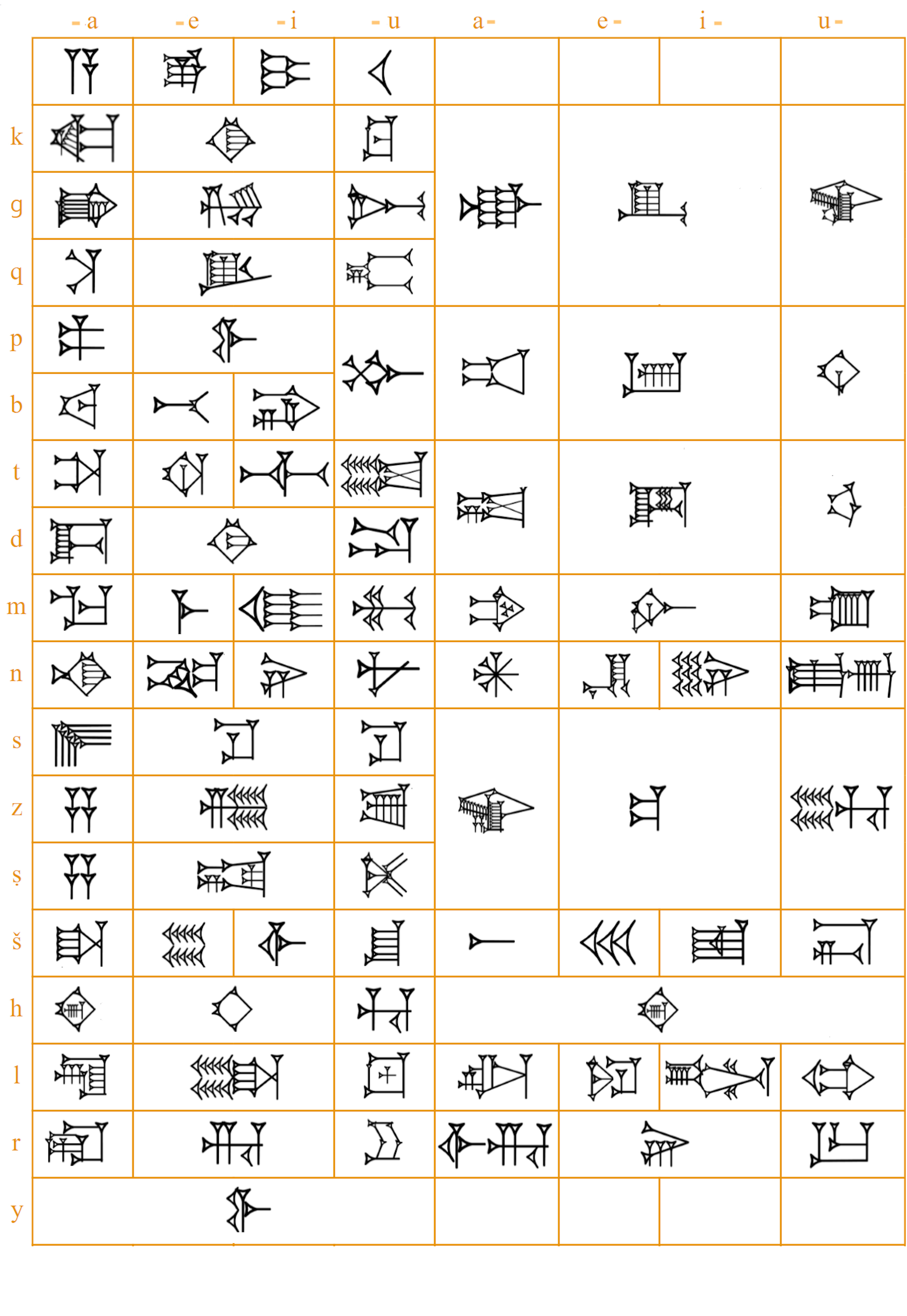
так что давай применем это к предыдущей легенде тоже
А Е И О У
БА БЕ БИ БО БУ
ТА ТЕ ТИ ТО ТУ
АБ ЕБ ИБ ОБ УБ
АТ ЕТ ИТ ОТ УТ
25 is quite a number in the range of the alphabets (be it 22 of the 3-letter myth, or 27 of the 5-letter's)
А БА ИТ ТА (it ~ це)
Е БЕ (and here, because of it, I stopped, it's not as straightforward)
И БИ ИБ (N ~ ib? for no reason, just for M and N are a pair.. L as ti? isn't ti = si = c?)
О ОБ (об ~ по ~ П ~ by?)
У БУ (boo ~ фу)
А БИ ИТ ТИ.. b and d are bi and di, which may expose that I was the first letter. Or was it E?
Be Ce De
Fi Gi Hi
Ko Lo Mo No (see MoLoKo, though Milk)
Pu Qu Ru uS Tu (just felt uS to be more appropriate, because the letter is called eS)
it is a task for maybe later.
Мнемози́на, Мнемоси́на (др.-греч. Μνημοσύνη) в древнегреческой мифологии[1] — богиня, олицетворявшая память, титанида, дочь Урана и Геи (либо Зевса и Климены[2]).
Мать Муз, рождённых ею от Зевса[3] (Эвтерпа, Клио, Талия, Мельпомена, Терпсихора, Эрато, Полигимния, Урания, Каллиопа) в Пиерии[4]. Зевс соблазнил её в образе пастуха[5]. Девять ночей к ней на ложе восходил Зевс; она родила Муз в Пиерии[6]. Её называют «царица высот Элевфера» (Гесиод).
Согласно сообщению Павсания, в Лейбадее (Беотия), вблизи пещеры Трофония, находились два источника: Леты (забвения) и Мнемосины (памяти).
В беотийской Лейбадее (Беотия) при оракуле Трофония был источник Леты (Забвение), из которого пили воду намеревавшиеся вопросить бога, и источник Мнемозины (Память), из которого пили уже получившие ответ. Здесь же стоял трон Мнемозины, которая, по верованию молящихся, помогала удерживать в памяти виденное и слышанное Павсания (IX 39, 8).
Мнемозина почиталась и обыкновенно изображалась вместе с музами. Богиня Мнемосина, персонифицированная память, сестра Кроноса и Океана — мать всех муз. Она обладает Всеведением: согласно Гесиоду (Теогония, 32 38), она знает «всё, что было, всё, что есть, и всё, что будет». Когда поэтом овладевают музы, он пьёт из источника знания Мнемосины; это значит, прежде всего, что он прикасается к познанию истоков, начал.
Д. Г. Россети. Мнемосина. Ок. 1880 г.
В истолковании она открыла способ рассуждать и определила для всего сущего порядок названий[7]. Ей посвящён LXXVII орфический гимн.
> она знает «всё, что было, всё, что есть, и всё, что будет»
Μνη μοσ ύνη начал я предполагать, и узрев как μοσ похоже на μοῦσα я вопросил:
βύνη (malt, солод) is definitely a cognate of wine
Нимфа это невеста на греческом: νύμφη
Нимфы (др.-греч. νύμφαι, лат. nymphae – невесты) – духи лесов, рек и гор. Они считались полубогинями и были смертны, как и люди. Часто нимфы изображались полностью обнаженными либо полуобнаженными длинноволосыми девушками, обладающими чарующим взглядом, точеной фигурой и белоснежной кожей. Однако их внешность могла меняться в зависимости от среды обитания.
Главными нимфами считались водные. По античным лексикографам, слово «нимфа» означает «источник».
В греческой мифологии различают множество нимф. Например, нимфы рек и морей: океаниды, нереиды, наяды. Их отличительный признак – раковина или рыбий хвост. Древние греки верили, что океаниды – это дочери титана Океана и титаниды Тефиды. Морскими нимфами были халиаи, которых иногда можно было увидеть катающимися по морю на спинах гиппокампов (лошадей с рыбьим хвостом) и дельфинов. Ауры — нимфы бризов, легких морских ветров. Известно отдельное божество Аура, очень похожее на нимфу.
Наядами называли дочерей Зевса и считалось, что они ответственны за пресноводные источники – реки и ручьи. Некоторые наяды «одомашнились». Они селились в колодцах и фонтанах и стали называться кренаями. Кстати, русалки в русских сказках зовутся «криницы». Нимфы озер и болот – лимнады. От наяд они отличались тем, что в их длинных волосах запутывалась тина.
В горах жили их покровительницы – орестиады. Это самые старшие и самые опытные нимфы. Именно представительницей орестиад являлась та самая Эхо, жизнь которой закончилась столь печально из-за ее преданности. Горы, как правило, рельефны, местами изолированы от окружающего ландшафта, так что на горе могло жить несколько нимф-ореад, которые звались по имени обитания: пелиады, киферониды, диктейские нимфы.
Также греки различали нимф лесов – дриады, и деревьев – гамадриады. Их обычно изображали с венками и цветами в длинных волосах. Дриады различались по «специализации» лесов. Например, альсеиды — это были нимфы рощ, а антоусаи — покровительницы цветов. Возможно, потому что греческие герои чаще всего пересекали леса, дриады больше других нимф вмешивались в дела людей. В любом случае этих нимф в мифологии очень много.
Плеяды – нимфы – дочери того самого Атланта, который до скончания веков вынужден удерживать на своих плечах небосвод. Все плеяды стали извечными спутницами Артемиды. С ними также связана легенда, согласно которой образовалось одноименное созвездие «Плеяды». Даже у отдельного дерева могла быть нимфа-покровительница, особенно если это дерево очень старое и пользовалось уважением. А еще есть множество других нимф, такие как Пегаи (нимфы родников), Гиады (нимфы дождя), но они практически не имели значения, а потому о них мало упоминается в греческой мифологии.
В мифах говорится, что нимфы обладательницы древней мудрости, тайн жизни и смерти. Они могут врачевать и исцелять, предсказывать будущее. Они считались матерями певцов и предсказателей; в некоторых местностях их принимали за богинь поэзии, потому что они воспитывали Аполлона. Те нимфы, что насылали безумие, приобщая человека к таинствам природы, назывались вакханками.
В Древней Греции храмы, посвященные нимфам, располагались вначале у источников воды и в гротах. Позднее им стали строить крупные святилища в городах, там было принято праздновать свадьбы – нимф считали покровительницами брака.
то, что нимфы гор покровительствуют нимфам источников совершенно понятно, учитывая, что источники как правило стекают с гор
Ореады, или Орестиады (др.-греч. Ὀρειάδες), — горные нимфы[1]. Ореада сельская — одна из нагорных богинь[2]. Воспитывали Диониса[3].
Одна из самых известных ореад — Эхо, которую Гера лишила голоса, оставив ей лишь способность вторить. Могли называться также по наименованию гор, где обитали, — Киферониды, Пелиады и т. д.
удивительно, что очень похожее слово сегодня узнал:
О́ры, также го́ры или хо́ры (др.-греч. Ὥραι — «времена́») — в древнегреческой мифологии богини времён года, ведающие порядком в природе. Дочери Зевса и Фемиды[1] (либо Гелиоса и Селены[2]). Стражи Олимпа, то открывающие, то закрывающие его облачные ворота: их называют привратницами неба. Запрягают коней Гелиоса[3].
В разное время насчитывалось разное число Ор, они также упоминаются под разными именами.
По Гигину — 9 имён, а в другом списке 12[4]. По Нонну, их четыре[5]. В Афинах почитались Талло (Цветущая) и Карпо (Богатая плодами), считавшиеся спутницами Афродиты; Гесиод упоминает имена трёх Ор — прислужниц Зевса: Эвномии (Законности), Дике (Справедливости) и Эйрены (Мира).
Упомянуты в «Илиаде» (V 749, VIII 393, VIII 433), «Одиссее» (XI 295; XII 4) и гимнах Гомера (II 16), им посвящён XLIII орфический гимн. Выведены как хор комедии у Кратина и Аристофана.
и то, что они спутницы Афродиты (богини любви) перекликается с тем как
Вода в ванной должна быть такой, чтоб слизистой было не больно (и даже чуть прохладней, потому что слизистая тоже изолирует от нервов скорей всего. Кожа просто изолирует лучше, но это не значит что клетки кожи не охуевают от слишком тёплой воды.
местоимение тот может когната имени Тот?
тот бог
бог как боб? боб-бог отноним отменим отманим антоним слова тот-тот? боб как майн?
(блеснул и блекнул (блекнуть может лишь тот кто блеснул, тот кто блистал))
Блеснул в настоящей форме? Блекнул в последующей?
Блеск как объединяющее обе формы, блеск если есть, то он и раньше и сейчас и будущее нпонимали на уровне грамматики ли неизвесно.
блещу! третья форма? блекнет это будущее? если сейчас блекнет, то совсем поblackеет в будущем, блекнет как брякнет. потрясающе, я его лишь в настоящем времени воспринимаю, может потому что оно в миг обычно блекнет. если дольше, то белеет. теряет цвет, например. хотя black а не blank. блекнет от слова black. -нет как имеет? ебёт = не даёт? ор но это можно по любому выкружить, слишком широка область применения у обсценной лексики, многозначна.
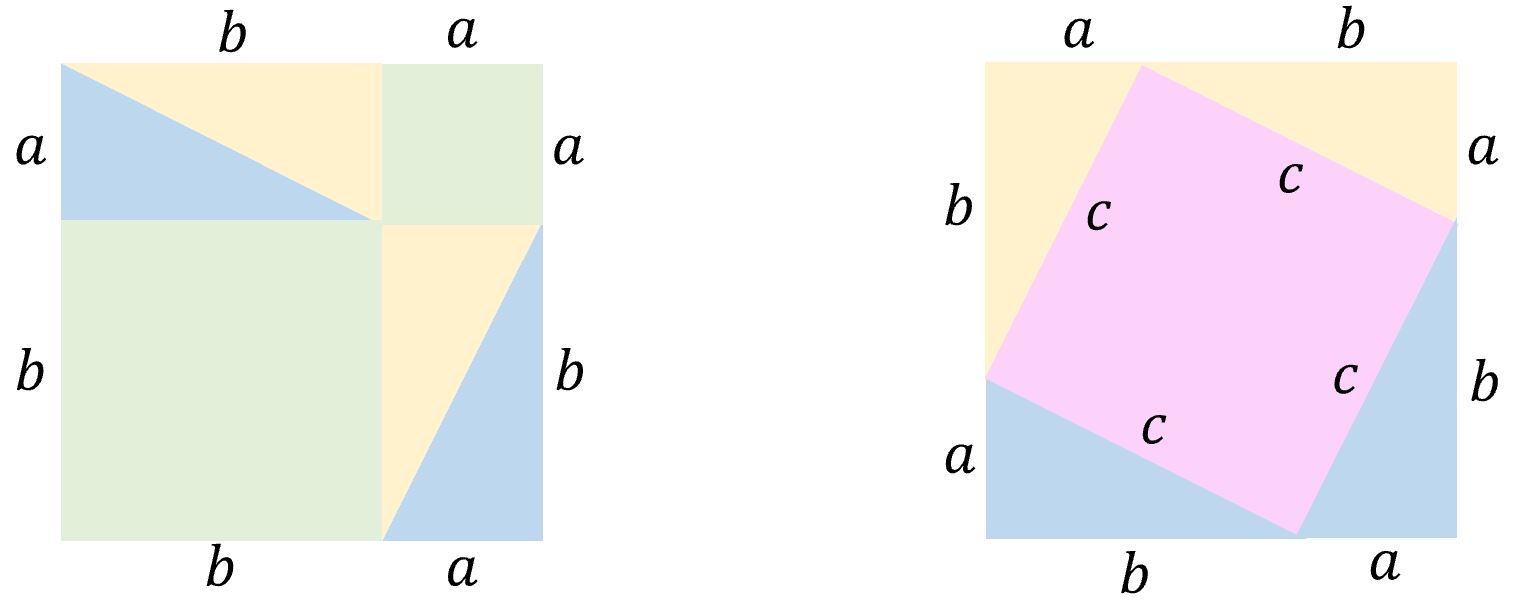
Here I realized that to prove it this way you have to think in squares as the areas and not the lines which set the borders. And maybe that may our mental plane changes from protecting our border to protecting our land. Those who protect the border protect zero area. So they do not notice that they do not own the land.
أم [am] is ma in arabic, and they read the other way around, so was it written before it was read?
прялка ~ палка (к слову о том, что и п и р изначально пр)
ткать ~ тыкать (просовывать нить через ряд ниток (видимо, до изобретения ткацкого станка ткань ткалась всё более и более плотным проходом сквозь ряды нитей иглой (но примеры такого древнего ткачества интересно сохранились бы. также неизвестно существовали ли, может это фэнтези моё)))
had ~ held
Неделя могла быть изначально стандартным временем которым длится обычная простуда.
Сегодня лишь шутка такая есть, что если простуду лечить, то через неделю выздоровеешь,
а если не лечить, то семь дней будешь болеть. Но на возможность этой версии сначала указывало слово неделя (больные не работают) а сейчас вижу что week омоним слова weak.
soak ~ сок (оба слова похоже что родственны слову са́ка, которое будучи синонимом слова моча похоже что является объяснением Ϻ~М парадокса, символ узначаем как 𓈖 в обоих языках, но произносимый по разному.
soak (замачивать, отмачивать)
Полумёртвый батя гласными говорит.
Язык, состоящий из гласных. Представь стколько тама омонимов будет.
из ~ и ~ ни (initial i as no)
вася и маша (вася, если нет то маша) и тогда и = или
и тогда и и и = и, заикание не меняет смысла.
а
е
и
о
у
или в этом основном уровне слов четыре гласных? Может быть и три. Единственный способ это проверить это наблюдать. Создать словарь слов.
электричество = эеиео = ео?
энергия = эеийа = еа?
сила = иа = еа?
В английском о и ауа. force and power. моежт pwer = моща? как щ~w
оаие посадите
ооие помогите
оеие поверните
Это реально слова произносимые полутрупом.
а э все гда были ах ты
отправил какому-то биохакеру в вк доебавшемуся:
Если бы силовые нагрузки и инфракрасное излучение значительно омолаживали, это было бы известно и раньше. Но уверен, что даже теоретически работоспособность этих "технологий" не сможете обосновать.
Палю единственную работающую технологию:
https://www.youtube.com/watch?v=ob4G7E9yvFM
(русские субтитры присутствуют)
Есть у меня и собственные наработки, гораздо более лоу-тек, но вам не понять
(здесь это затем, что Но использовано в значении И, что ещё раз роднит 'n' and и)
Священник тараторит с двумя частотами: бо́льшая с периодом несколько секунд соответствует предложению или его части, тогда как ме́ньшая с частотой несколько герц соответствует словам
и в этом смысле собачьи слова измеряются не словами, но предложениями.
и, по всей видимости, слова это поздее усложнение, слоги ещё более глубокое (тонкое, детральное) понимание. буквы ещё детальнейши. фонемы и вовсе новейшего времени представление.
is каюсь short for отрекаюсь?
I used to paint, but after I accidentally destroyed my own work by not knowing where to stop,
I chose a more ethereal art, one which is less concrete, more discrete, simple text.
And here I have to continue without destroying the previous canvas. It wouldn't help if I had
сикатть ~ ссать
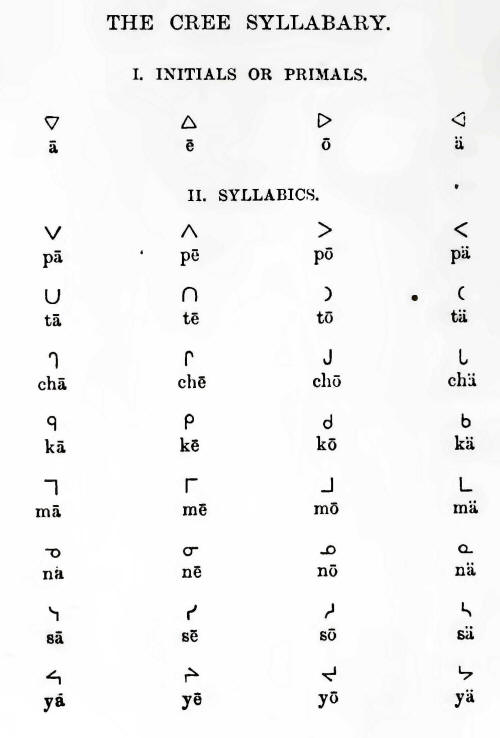
and the following table is weird:
why would m look like tä? why would n look like tō? why would s look like tē?
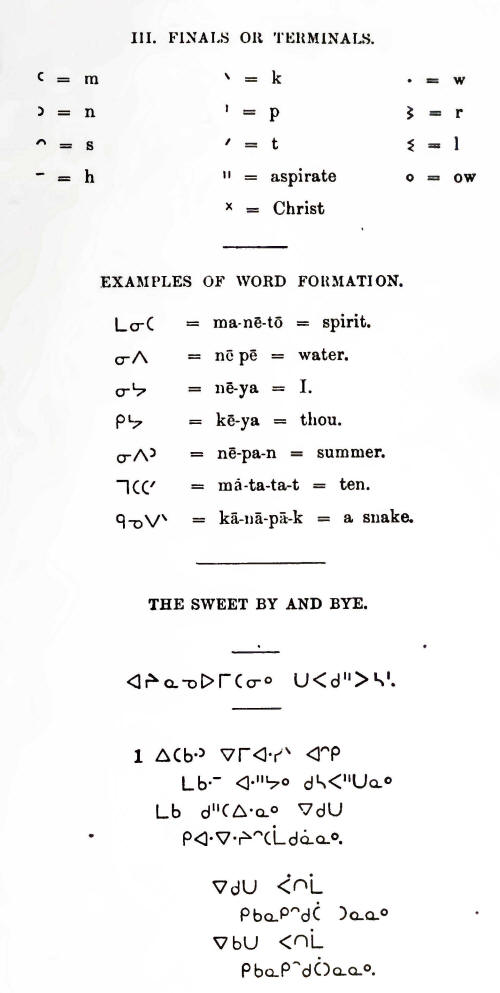
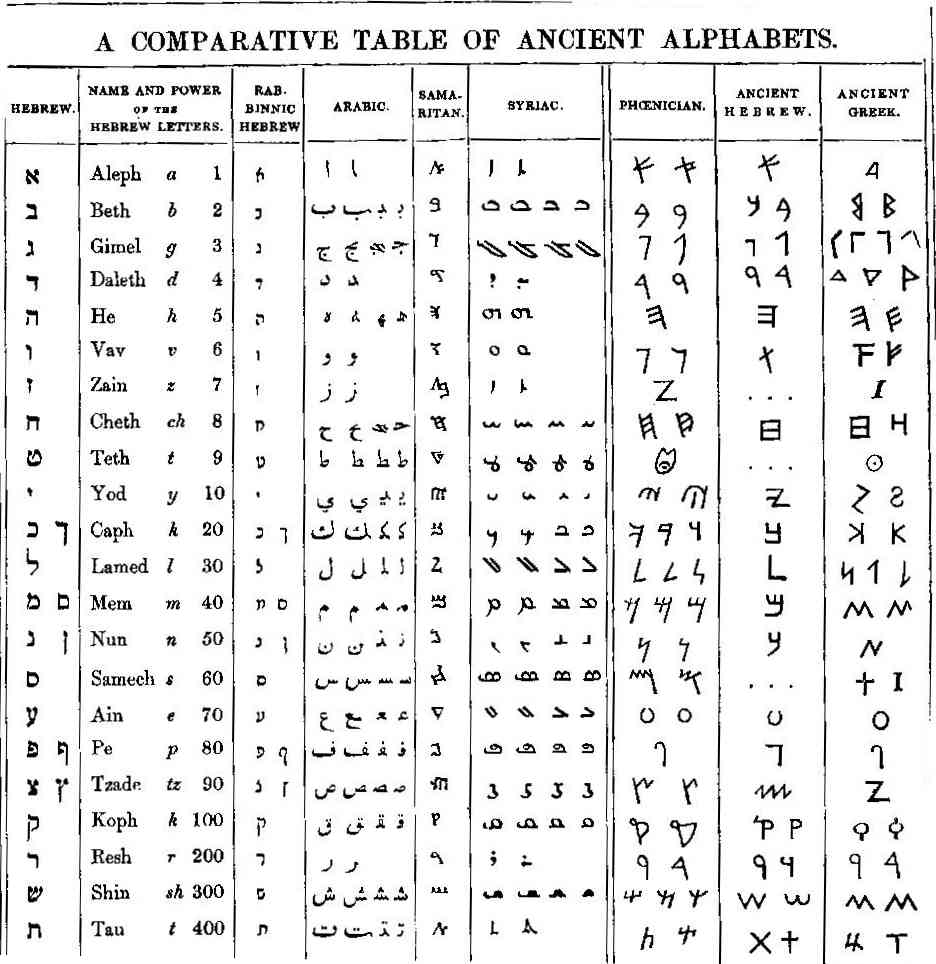
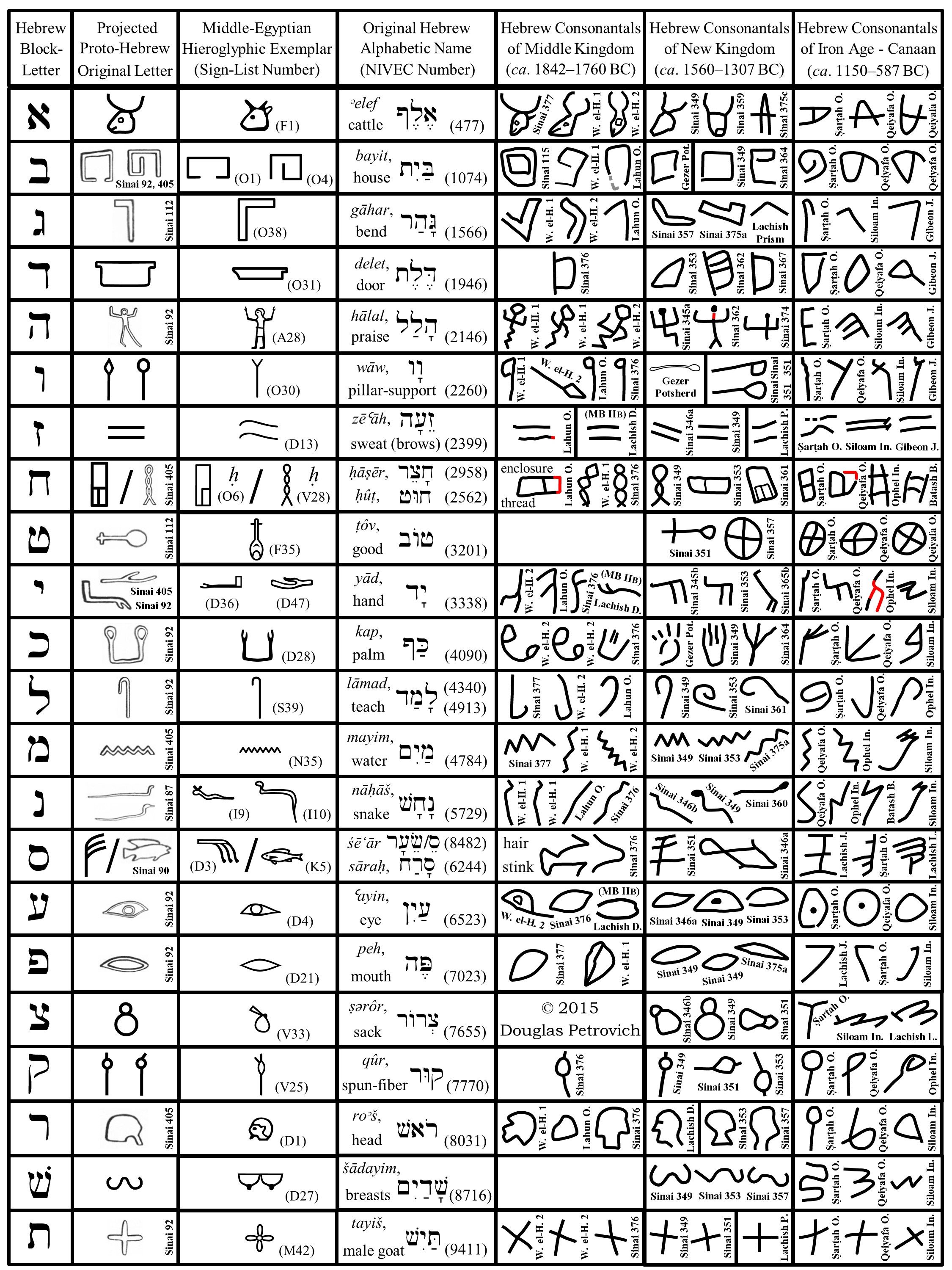
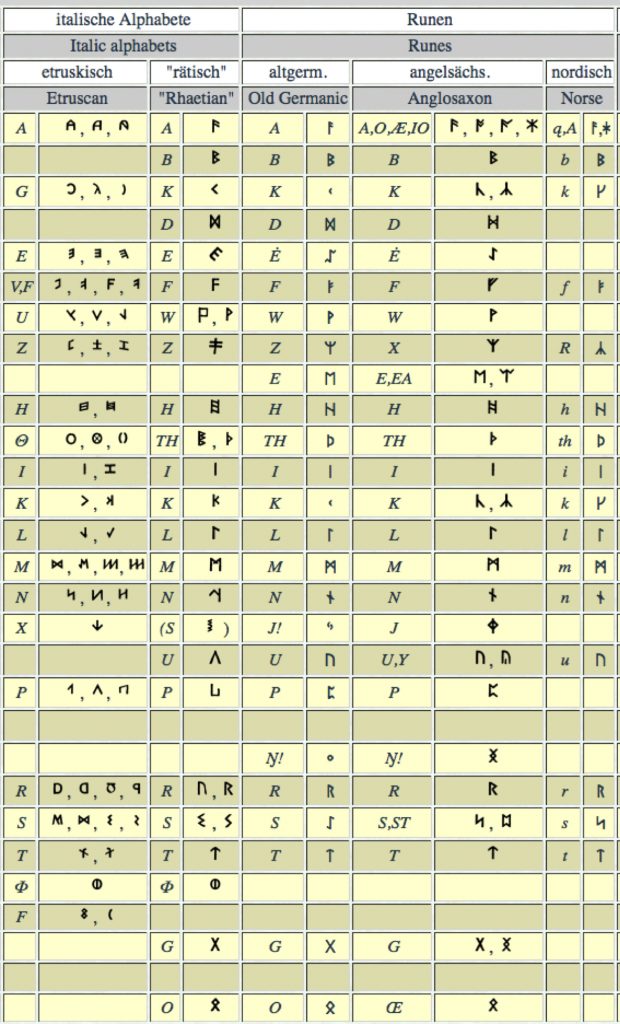
and the next image is not something I necessarily agree with, but it's a job well done and it is a consensus which is to be known.
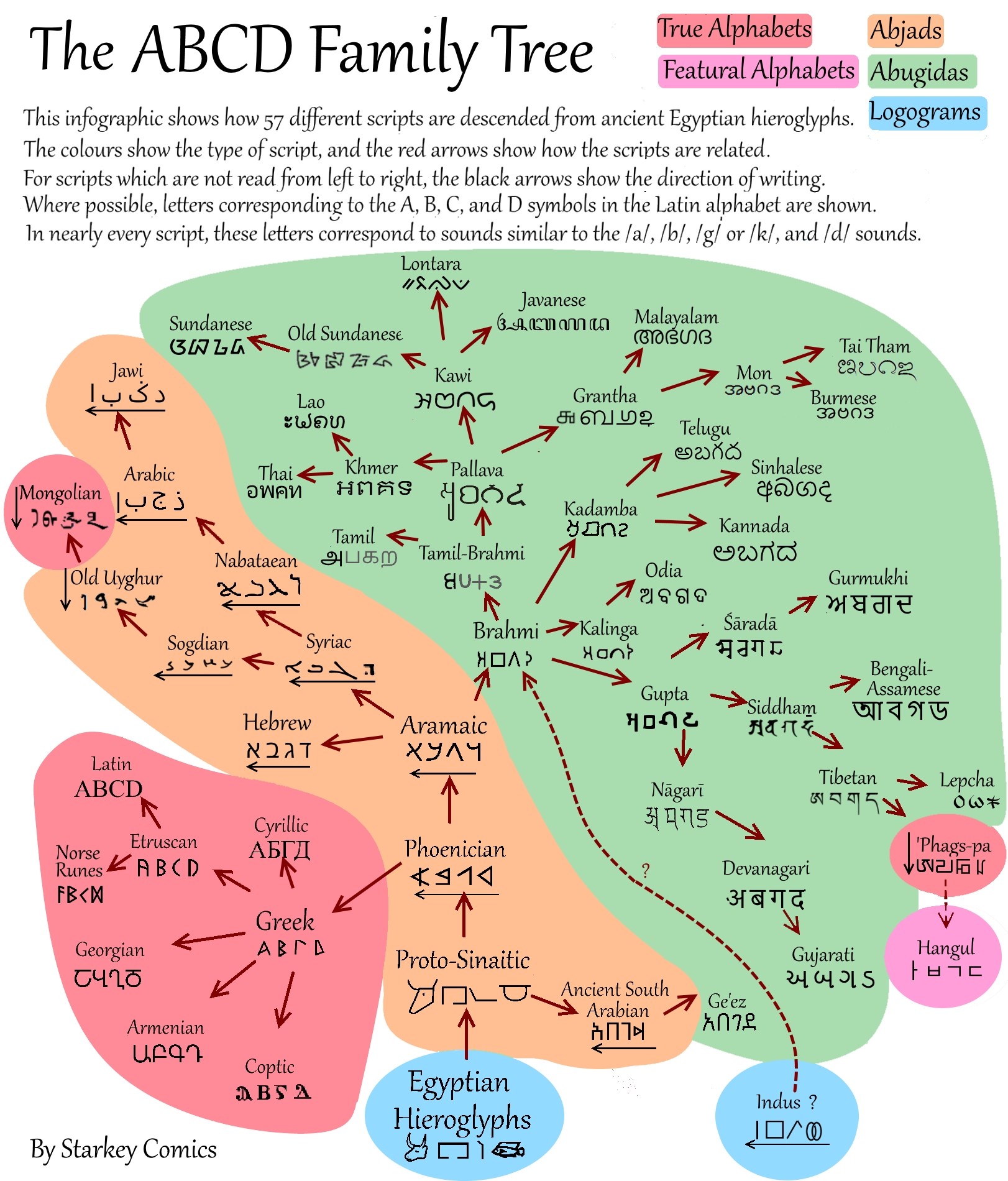
also much of it is probably correct and to be an inspiration
When they put it like this phoenician theory doesn't seem wrong anymore.
But why would they derive Cyrillic out of Greek, when it preserved the Б shape while Greek didn't.
And Indus would look like it has ا, but I think they didn't decyphered it yet. Yet they seem to find the glyphs similar to b and g of Brahmi, so ا could be intentional. And it reminds me of how vowels do not matter, since russian о is i in ukrainian.
The position of vowel in the syllable may matter more, but with on ~ на, maybe not.
suffix ен is suffix on depending on the previous letter maybe.. праведен, но смешон. заповедан, но определён. предан, но запределен. Может это всё же разные суффиксы? в предан префикс пред или корень дан? или может оба: пред-дан.
Rusian ен in праведен суть он in взбешён. О осаживает мяхкую согласнюу преюд ним?
В любом случае (и потому что глсн лшн) этот суффикс по сути own
и праведен ~ pravda own (truth own (owned by truth, as devil's own is devil own))
правдив ~ справедлив [iv ~ in (как в is in)]
лжив ~ ложь iвъ (ложь есть въ (нём))
л and n meet in боязнь turning into боязлив
and thus we have the sequence of sonors: m ~ n ~ l ~ r
an interesting interpretation of MLK, which I always understood as milk and Moloko,
and if it's actually milk and the sacrificy myth is a smear by those who doesn't tolerate lactase, so they called it sacrificing children to the cult of milk, to the cult of the holy cow?
Here guys closed my attempts to link alphabet to zodiac
telling that the zodiac is a much later concept (not earlier than 2nd century BC)
(but that doesn't exclude the possibility of zodiac being influenced by alphabet,
There they also tell, thqat Venus was called Inanna and Ishtar and was often depicted along with Moon and Sun, which made me suspect these three celestial bodies to be the three mothers:
(you know how they use to say, when all you have is a hammer..)
(but then there's only one way to know)
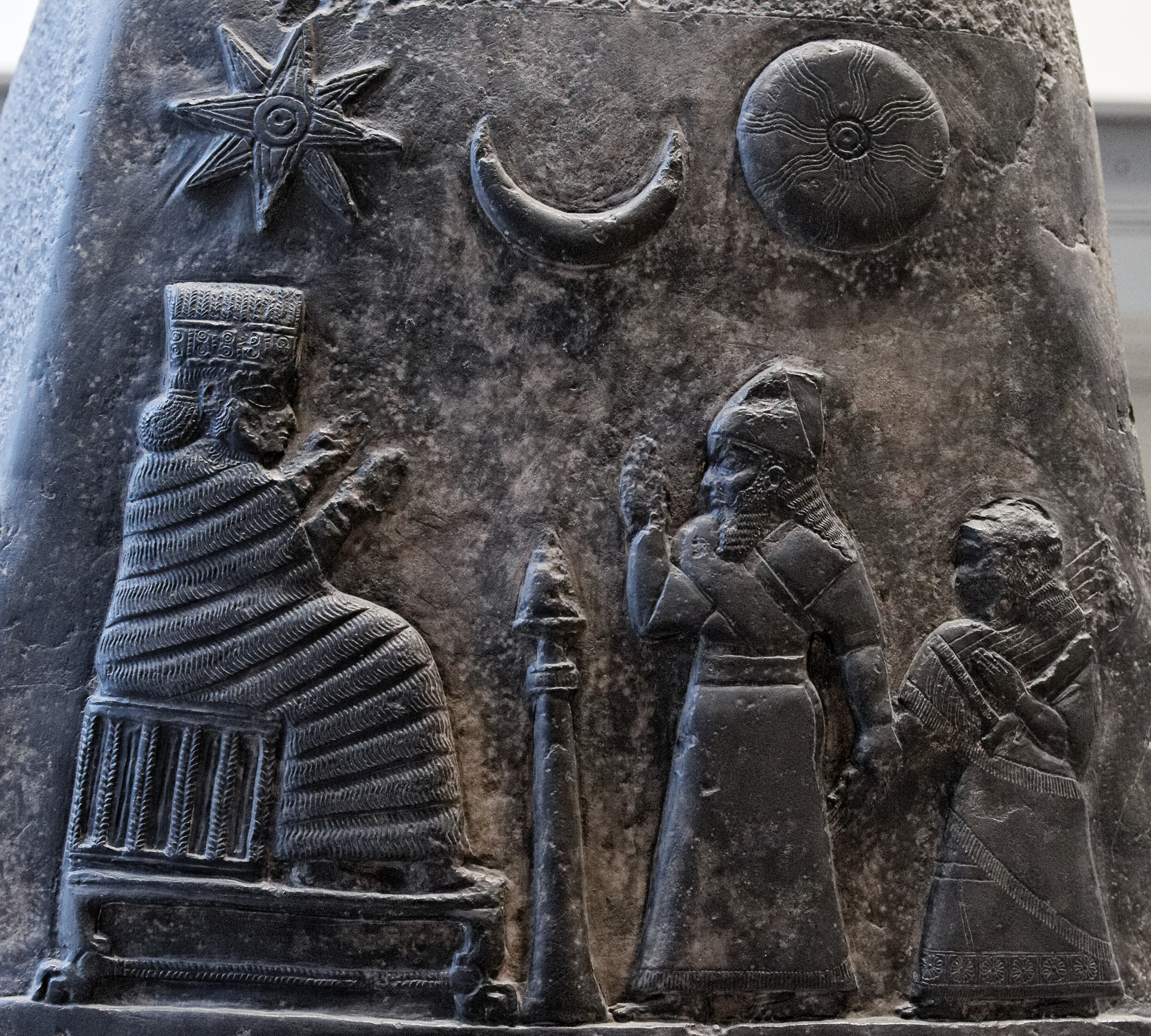
The eight-pointed star was Inanna/Ishtar's most common symbol.[74][75] Here it is shown alongside the solar disk of her brother Shamash (Sumerian Utu) and the crescent moon of her father Sin (Sumerian Nanna) on a boundary stone of Meli-Shipak II, dating to the twelfth century BCE.
Nanna and Inanna, how are these two names so similar and what does it tell?
Ass-сиро-ложь (логия как лгание) looks like a polirtical smaear campagen
Негоже ~ не go же (не идёт (не годится (год is good (and is god (год is god)))))
год goes. глупый как голубь? голубой? ага, сизый (почти синий, между синим и серым)
синий сизый серый
н з р (слова имеют смысл? мы умираем)
случайный ряд.. с не свет? с = E/m
пр как губной пердящий звук доставил в ванной, и было так гучно, что не записал, попробую восстановить:
запрет как за и пред (всё что вне нормы (выше или ниже, дальше или ближе её)
право как про и во (то что внутри нормы, на что имеешь право, что допустимо нормой)
Удивительно, что норма не пр-слово. Но там много таких пр-слов: правитиельство, но я видел более простые и непроизвольные слова (этих двух не видел) предал не помню видел или нет. продал точно не видел. Что такое про? просрал в первую очередь. Предлог про (и при, и пре, и пред, или пред это пре-до? пред-до-о-мной явилась ты)
through всегда было сру
сру как средь (средь как сквозь) средь как срез? срез как состриг,
сруб
срез
б плозивное
з фрикативное
что отражается на действии. р is red, krev (кровь) blood ~ red? R как Pл?
пуля как пл? пли ~ fire ~ thgat labial fart. говном стреляли изначально?
пл как плозивная пра пара к пр фр? а что дальше? кати как долгая форма of зи? вези́~кати́?
правила фр вила?
прикол фр икол?
прививка фр-вивка? фр-живка? в~ж возможно родственно г[в]
vita ~ жива.. ta as же? Ва is common. жив is of жижи и воды.
греция речь речка
грузия руно ручей
речь writ? writ as in говорит? го как голосом? и горлом (что такое лос? lose ~ издаёт?)
го как в голове и горле?
writ ~ врёт? слово изречённое есть ложь. Что это за пиздецовый мем и что есть изречённое кроме произнесённое? почему оно выглялит как изувеченное?
слово вырванное из речи есть ложь? не в общем контексте слово пиздёж?
письмо как знак? знаки раньше речи?
знак надо знать? знак узнают.
знак такое сложное слово. что за части из которых оно состоит? зна́ю ~ осознаю́
осознаю́ (наст. вр)
оба первое лицо
осозна́ю (буд. вр)
осознал (пр. вр) это и первое и второе и третье, любое лицо (нравится мне тоже, простое такое)
осознавъ́? (в~ю) осозна́вши? осознавши́?
знал пр.вр
знава́л пр.вр
зна́ю наст.вр
узнаю́ наст.вр
узна́ю буд.вр
вы́знаю буд.вр
знава́л
зна́ю
вы́знаю сначалоа подумал что ухватил грамматическое значение ударение за хвост, но
вы́знал посмеялось надо мной.
Но может вызнал это перфект, более поздняя грамматическая форма.
..и чем такой подход лучше теоретиков большого взрыва? но чем я хуже их?
на мне. на как дана. на как противоположное от own? но на как on говорит что нет, синонимы, на как има (не знаю как к этому пришёл, но наверное ещё в первых тетрадях где-то)
im~не
театры ~ тетради ~ treatice
il- ~ ir- ~ in- ~ im- (thus all sonors are the same letter, because their syl.,lables are the same)
illegal, irresponsible, incredible, impossible
l returns l, r returns r, c returns n (and thus n is righteously in the g-column, thus imnl) p returns m
and if imnl ends in l, wouldn't it be rational for opqr end in r?
or
a e i o u ъ э
b f j p v ы ю
c g k q x ь я
d h l r z
because it takes additional, the sixth column for l and r to be in the centre, dividing the alphabet into left and right halves
But then actual alphabet places them in the centre:
a e i o u
b f j p v
c g k q w
d h l r x
m s y
n t z
But then we know Imnl, let's use it:
a e i o u
b f m p v
c g n q w
d h l r x
s y
t z
Then these halves are both 12s. The left is three times four. The right is two times six.
f and t one having five letters to the end, other having six of them.. It's easier to suspect those six being five, then the five being six.
Could they be arranged differently?
a e i o u y
b f m p v w
c g n q x s
d h l r z t
t should bhe before z
a e i o u y
b f m p v w
c g n q s x
d h l r t z
that's better but it's very speculative
Which alphabet has 24 letters?
Greek alphabet (and "older futhark" too)
Α Β Γ Δ
Ε Ζ Η Θ
Ι Κ Λ Μ Ν Ξ
Ο Π Ρ Σ Τ
Υ Φ Χ Ψ Ω
let's play wiuth it
Α Β Γ Δ
Ε Θ Η Ζ
Ι Μ Ν Λ all these are hypothetic speculations, none of them are genuine, just guessing.
Ο Π Ρ Σ
Υ Φ Κ Χ
Ω Ψ Ξ Τ (if romans have X amongst their velars, why not have Ψ amongst sonors..
but then Η is also a vowel, but only in ionian dialect..
Про жену Олега: высосала соки сука (суха сука не только суха но и sucker)
be come. будь пришедшим (к цели)
re main: remarry. main as maiden? meichie meisjes (girls)
Dutch word meisje is definitely cognate of miss. Because meisjes is even more off misses.
А Б В Г Д
Е Ё Ж З
И Й К Л М Н
О П Р С Т
У Ф Х Ц Ч Ш Щ
Ъ Ы Ь Э Ю Я
А Б В Г Д
Е Ё Ж З
И Л М Н если брать итальянскйи за основу
О П Р С Т
и Т финальна как в архаичных
А Б В Г Д
Е Ё Ж З
И М Н Л если брать детский алфавит за основу
О П Р С Т
but then yo, it doesn't work without IJ claster. The meaning of this thing was to align pairs:
could the second half be representing L and r
like this:
Il Mn?
Or St?
Il Man or siSTa? (as a law of conduct of a nun? (ill and left when man is with her, AllRight when with a sister, preferrably praying, or doing the Vestal stuff))
Om Ln (amen? Oм Луны? I'M LuNa? Имя Луны? om~nom~name~имя)
Is in't this line a rephrame of ABCD?
Abe is probably reflected by Ima
AbeG-d (geoid (aбg as abe gay? or oma Gea? Gea is a female goddess.. Duh, complicated. Before A it was Baba Gea.. Dega? Monet I met im I♡MN))
Father Earth Mother Moon ..isn't it egyptian narrative? story?
Abe DEus
Ima LuNa?
Abe G-D!
Ima L-N.. лань трепетна? ЛоНо. О is after it. Mo LoNo? Samekh of maTHER? there? As there is and there are are needed in English? Probably if you just cry "Wolf!" you will be understood, but they seem to prefer to speak more sophisticated. Russians don't have a clue.
ABe GooD (хорошенький)
IMa LuNatick
G is Jah, the Sun, because LuNa
Abe C.. C is for Sun? Soleil? Solntse
Ima L? do Г and L reflect eachother?
b Г
م L
arabic m looks like p
b Г
p Т ???
ᛓ ᚴ
ᚠ ᛐ well, it's all way less poetic than ML (my love) after BГ (big guy? bad girl?)
ᛮᛯᛰ
ᛮ arlaug reveals the names of ᛆ and ᛚ
ᛯ tvimadur is definitely two mothers, two ᛘ's? a ᛘ and a ᛦ. birth and death.
ᛆ ar
ᛚ laug
ᛘ madur
ᚦ thor
A up front, T at the final?
L and M in the centre and in that order? Could the three be three mothers? ᛮᛯᛰ Al Mm ᛐᛚ
A Runic calendar (also Rune staff or Runic almanac) is a perpetual calendar, variants of which were used in Northern Europe until the 19th century. A typical runic calendar consisted of several horizontal lines of symbols, one above the other. Special days like solstices, equinoxes, and celebrations (including Christian holidays and feasts) were marked with additional lines of symbols.
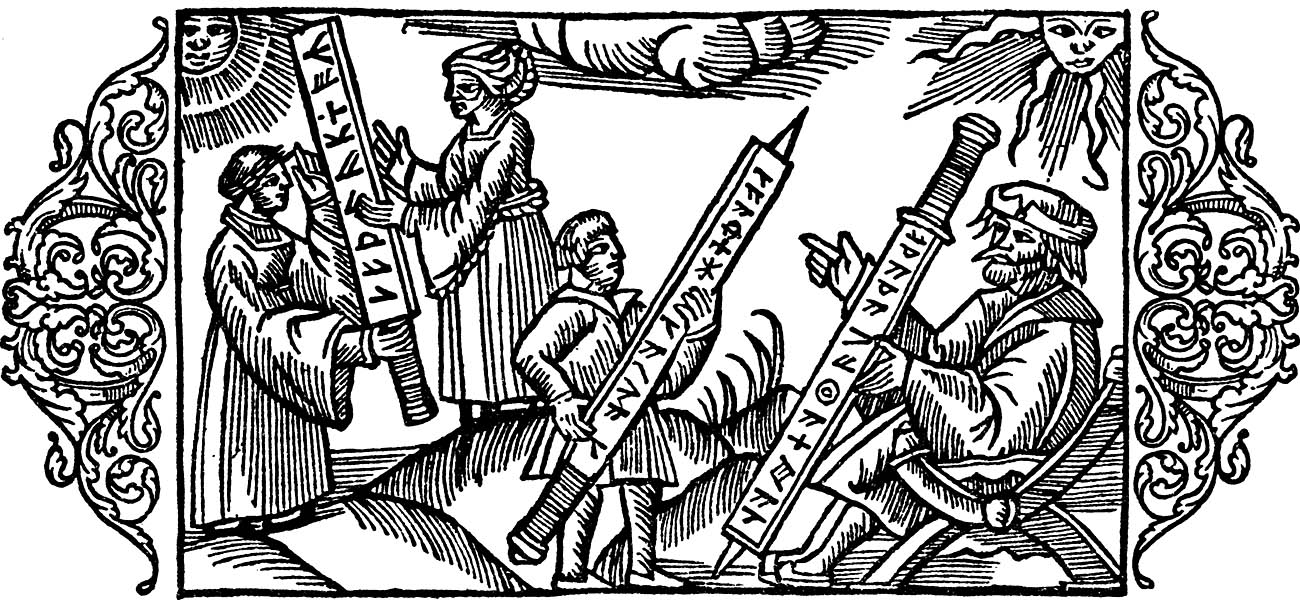
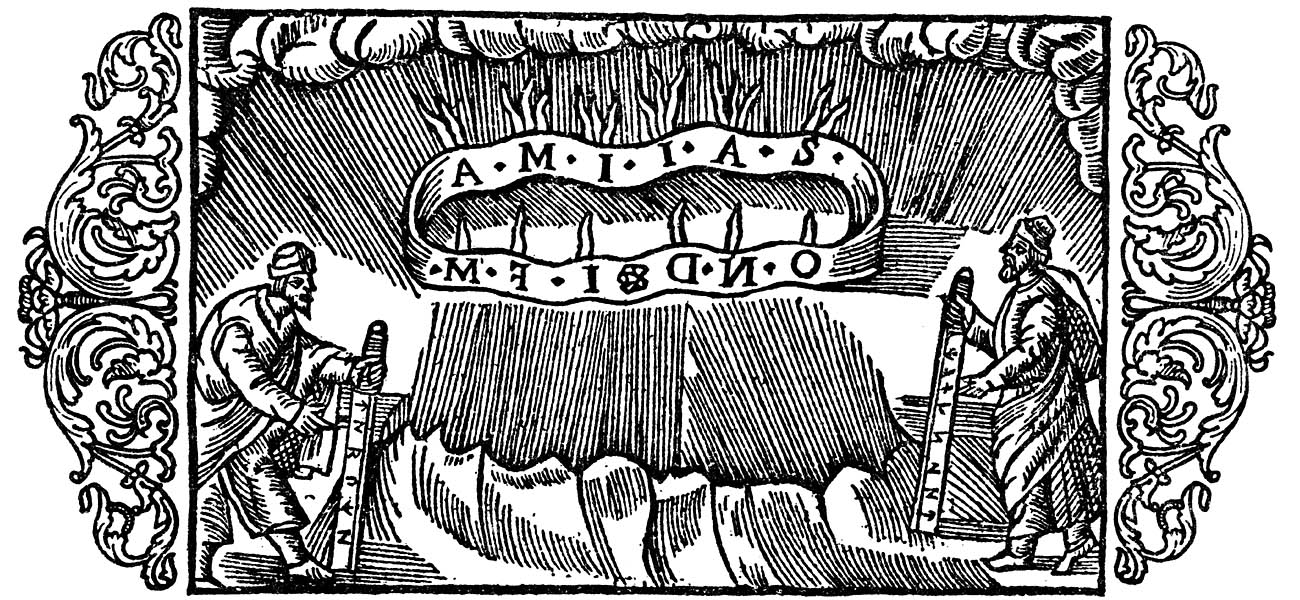
These staves are definitely not abecedaries, N-like S is sorta sick.
Some analysis is given under the images' link, but it only tells that they do not know what it tells.
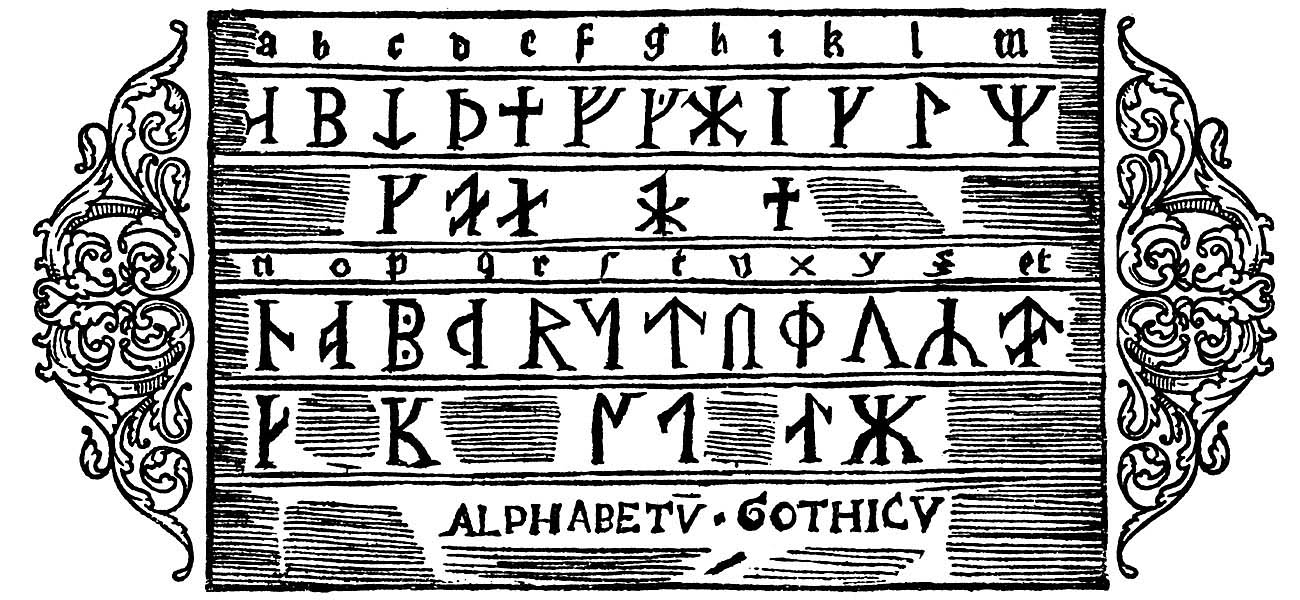
The alphabet is not divided into stavs, e~i, g=th, ge = the? þͤ ?
Ye /jiː/ ⓘ is a second-person, plural, personal pronoun (nominative), spelled in Old English as "ge". In Middle English and Early Modern English, it was used as a both informal second-person plural and formal honorific, to address a group of equals or superiors or a single superior. While its use is archaic in most of the English-speaking world, it is used in Newfoundland and Labrador in Canada and in some parts of Ireland, to distinguish from the singular "you".[1]
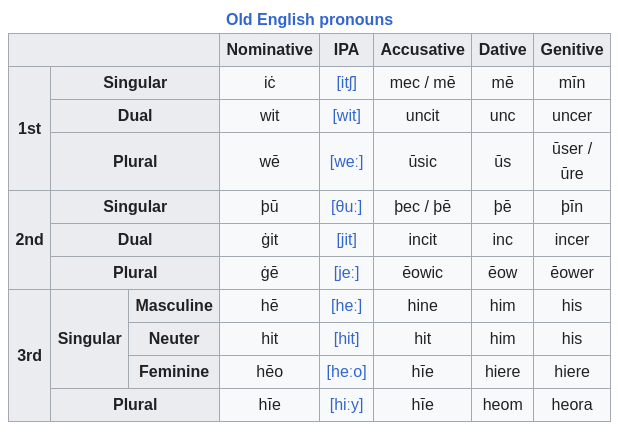
the ~ thee? no, it's way more complicated. Look up, the cases!
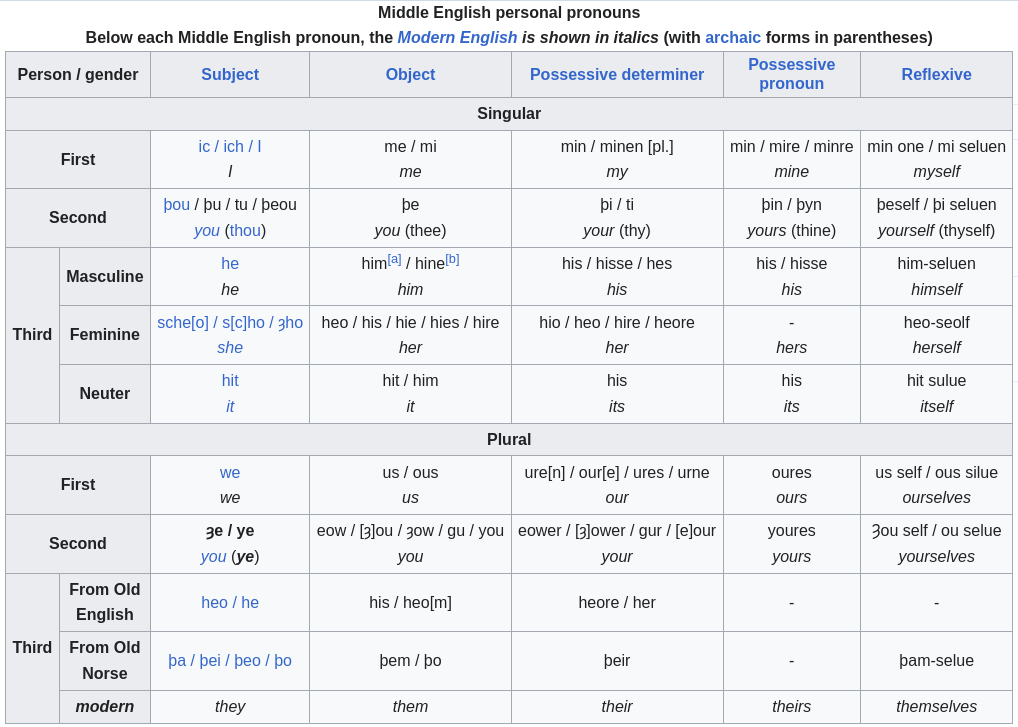
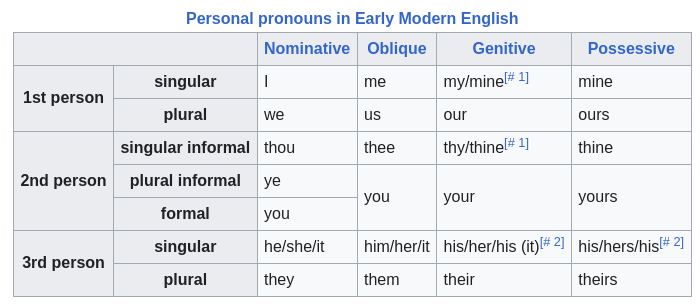
The four cases, never went away?
Accusative and dative merged.
Genetive gave birth to possessive, or even turned itself into different forms of posessive, depending on which table you consult.
Не было ли это магией? Не миеет имеет ли смысл русским отказаться от винительного, заменив его дательным? Срастить родительный с притяжательными? Перестать использовать родительный вместо винительного: Не имеет ли смысл русским отказаться от винительному, заменив его дательнЫМ (это предложный падеж, его на что заменить? in english they use particle by with nominative. "через дательный" было бы грамматически более прямым переводом of english "by dative", but by is not usually через)
Suddenly, thinking of having a garden which weould bloom all the time, I thought of different plants blooming on different month, and thus able to work as a calendar, and ogham calendar does exactly that. Let's see if it makes sense.
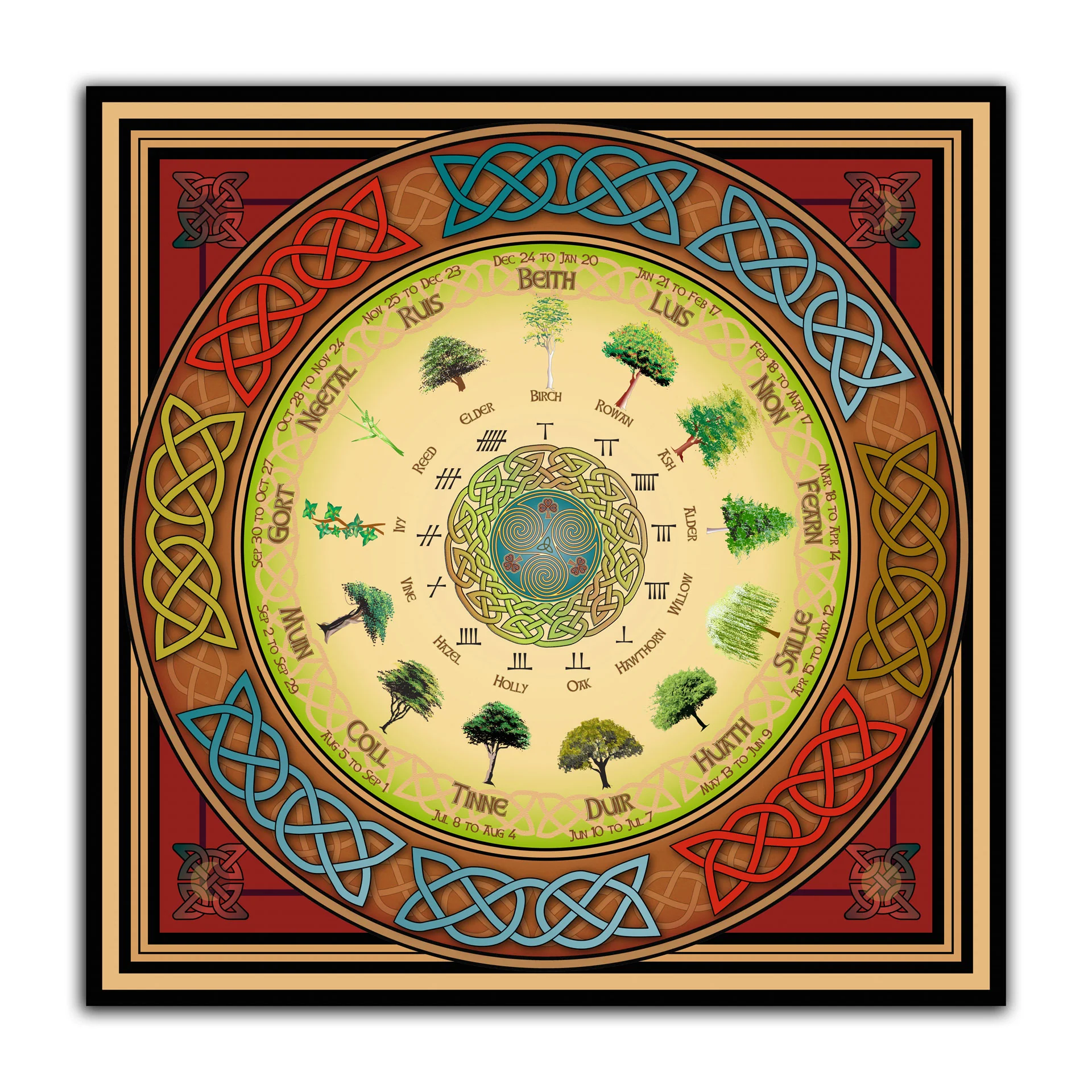
And though they say that Ivy is an evergreen plant, so leaves can be seen at any time of the year.
It flowers from September to November and its fruits ripen between November to January. I wonder if it's true.
Most of other plants do not seem to correlate:
The Czech word for the month of March, Březen, is derived from the Czech word bříza meaning birch, as birch trees flower in March under local conditions.
So, also because most of the plants are trees and not flowers, I should ignore this thought.
And yet I'm surprised how many of those are told to bloom in winter:
Willows are generally dioecious, meaning that males and females are separate plants. Flowers appear as catkins (noted to resemble furry cat feet) and are produced in late winter to early spring before foliage emerges.
But it doesn't correlate with the calendar, alas.
But if it's true, if some of those trees bloom in the winter, it is absolutely possible to create such a calendar for real.
But I checked it again, and вербное воскресенье is April 13 this year, so the ogham calendar is surprisingly to the point.
Grok clarifies: Google’s description aligns with what I said, and it’s spot-on about willows being dioecious and blooming as catkins in late winter to early spring. The slight difference in phrasing—like “late winter to early spring” versus my “March to April”—comes down to generalization. Late winter can stretch from February into March, and early spring kicks in around March to April, so we’re in the same ballpark. Google’s pulling from broad botanical info, likely summarizing across species and regions.
The “before foliage emerges” part is also key—willows often bloom before their leaves fully unfurl, which is why those catkins stand out this time of year. It’s possible Google’s emphasizing the earliest end of the spectrum (late winter) to cover species like Salix caprea or pussy willows that can bloom as early as February in milder climates. Where I said “March to April,” I was leaning into the peak for many common willows in temperate zones. Either way, both are correct—it’s just a matter of framing the season! Are you seeing catkins near you yet?
Here it follows into me doing this science with some help from Grok, but it was way too much, so it's in a different volume: Ai5
He also shows that ᚭ (the same as ᚮ) is basically ᚥ
In the context of reversed runes being the same runes the similarity of short hand ᚢ and ᚱ is striking.
I was speaking about them being very
similar graphically even in the long hand, but wut..
The way ᛆ and ᚿ also meet makes me suspect them both
coming of some protolettre ãᛋᛏᛒ would be a great third aet, because it reminds stav way too much. And then three aettir would read as father kuhnya's stav (ᚠᚦᚱ ᚴᚼᚾ ᛋᛏᛒ) but then I thought ᚱ and ᛒ don't belong to their aettir, but then what do I know, I'm only guessing, searching, wasting my life on this, because somebody had to.
А Б В Г Д Е Ё Ж З И Й К Л М Н О П Р С Т У Ф Х Ц Ч Ш Щ Ъ Ы Ь Э Ю Я
А Б В Г Д Е Ё Ж З И Й К Л М Н
О П Р С Т У Ф Х Ц Ч Ш Щ Ъ Ы Ь Э Ю Я
here, ᚢ and ᚱ meet again
Г is C
У and Ф aross E and Ё are strange but vaguely similar, and I recall that Ё is at the F spot.
Ж and Х are so similar graphically, and if Ж was ɦ, then ther semblance is even more eery
in the sense of supernatural, I guess,
I wonder what makes me love that word so much.
Maybe the initial ee
I wonder what makes me love that word so much.
Maybe the initial ee
З и Ц
З and Ц are both צ
И (и) looks like Ч (ч)
Й as Ш and K as Щ do not make much sense at first, but maybe all are forms of the same suffix: й in Duchovny ~ К in Novoselic ~ Ч in Vučić and Петрович ~ Ш in Lookash ~ Щ in ..it's not a suffix, but then Щ~Ш, and on both sides could be some expanded groups of 𐌆ИЙК and ЦЧШЩ
Though to see И as Ч is strange, though graphically ɪ ~ c, and grammatically -y ~ -k
(I wonder if k in Simak is that suffix)
And the way ЛМН as a group is mirrored by ЪЫЬ as a group makes me wonder of what were the chances, and the way those three letters never open a word, thus they wouldn't make it to an alphabetic prayer, makes me wonder if ЛМН are actually mirrored by ЭЮЯ (me as the opposite of you? я as the opposite of он? э the a as the opposite of le, el, il, elle, la, but a is not an antonym of la, unless that a is indefinite while le is definite articles, two forms of third person. Third is always third, while me for one is you for the other, and я is probably opposed to not only оН, but to He as well. Then a for one is le for the other. I wonder how much truth is in it.
А Б В Г Д Е Ё Ж З И Й К Л М Н
О П Р С Т У Ф Х Ц Ч Ш Щ Э Ю Я
Basically, this is how I first noticed the underlying structure.
adopt ~ adapt (the words may seem similar, but they're opposite in one thing: you adapt yourself, but you adopt other things)
an interesting book I found: Greek Alphabet: Unlock The Secret by Catherine R. Proppe:
1. The letter Α is about ARISING ABOVE the rest.
2. The letter B is about taking your BEARINGS, knowing the BASICS, and establishing BASELINE measures of where you are and where you want to go.
3. The letter Γ is about creatively GENERATING something new.
4. The letter Δ is about setting a DIRECTION in pursuit of a goal.
5. The letter E is about the eternal ESSENCE.
6. The letter Ϝ is about COMMITMENT.
7. The letter Ζ is about the SPARK of fire; the SPARK of life.
8. The letter Η is about the shared CENTER.
9. The letter Θ is about the BIG PICTURE, that which is greater than the mortal self.
10. The letter Ι is about the IMMORTAL FORCES in the universe.
20. The letter Κ is about the CORE and its fruition.
30. The letter Λ is about LIBERTY and loosening.
40. The letter Μ is about the META: the medium that connects the macro with the micro.
50. The letter Ν is about prevailing, turning points, and victory: NIKE.
60. The letter Ξ is about DETACHING.
70. The letter Ο is about the WHOLE: an entity that is real, substantive, and intact.
80. The letter Π is about the ALL unified under the same roof.
90. The letter ϙ is about PIERCING-THE-VEIL of ignorance and separation.
100. The letter Ρ is about FLOW.
200. The letter Σ is about being in SYNC.
300. The letter Τ is about balanced TENSION-FORCE and extension.
400. The letter Υ is about PURITY and freedom from pollution.
500. The letter Φ is about the divine ANIMATION of nature, light, sound, wisdom, and freedom.
600. The letter Χ is about the FOUNDATION upon which to build.
700. The letter Ψ is about the SOUL.
800. The letter Ω is about BRINGING-FORTH at the appropriate time, which requires both alertness to signs and patience.
900. The letter ϡ is about LAUNCHING something into the world.
and there she gives short lexicon for each letter, demonstrating how it manifests.
I have no idea if she is correct, but
it's a fun way to study Greek.
Пытаясь зарифмовать "тёплая вода", обнаружил, что не так уж много рифм, а слово провода вовсе однокоренное (похоже, я принял, что вода евдёт ведёт) и что может слоги имеют значение.
во! и да! (очень позитивное нечто, противопоставление огню ада, и облака же из воды, интересно, об этом не думал, но ведь точно)
ог и онь закрытые слоги, и огонь с мужским началом связан (потому что вода связана с женским)
For syllables make more sense than.. well, here I stopped to send a message to Kesler's friend
(for..по какой-то причине сегодня по русски говорить хотелось, но раскладка английская, потому вместо а поставил f.. хотел начать слоги перечислять, но f заставило мысль оформить)
У него в европейском словаре несколько значений у каждой буквы. На этом уровне имеет смысл рассматривать их как слоги: самые древние системы письма именно так рассматривают собственные символы. Если кто-нибудь продолжает его работу, пожалуйста передайте это им.
А Е И О У
БА БЕ БИ БО БУ
ВА ВЕ ВИ ВО ВУ (или же В это и есть Би?)
Легенда сохранила структуру как пять гласных, Б и Т.
А Е И О У
БА БЕ БИ БО БУ
ТА ТЕ ТИ ТО ТУ
Но ещё более древняя (? (букв ещё меньше же)) легенда говорит что 1 гласная и М и С
А
МА
СА
АМ
АС
(в вавилонском вроде знают закрытые слоги)

так что давай применем это к предыдущей легенде тоже
А Е И О У
БА БЕ БИ БО БУ
ТА ТЕ ТИ ТО ТУ
АБ ЕБ ИБ ОБ УБ
АТ ЕТ ИТ ОТ УТ
25 is quite a number in the range of the alphabets (be it 22 of the 3-letter myth, or 27 of the 5-letter's)
А БА ИТ ТА (it ~ це)
Е БЕ (and here, because of it, I stopped, it's not as straightforward)
И БИ ИБ (N ~ ib? for no reason, just for M and N are a pair.. L as ti? isn't ti = si = c?)
О ОБ (об ~ по ~ П ~ by?)
У БУ (boo ~ фу)
А БИ ИТ ТИ.. b and d are bi and di, which may expose that I was the first letter. Or was it E?
Be Ce De
Fi Gi Hi
Ko Lo Mo No (see MoLoKo, though Milk)
Pu Qu Ru uS Tu (just felt uS to be more appropriate, because the letter is called eS)
it is a task for maybe later.
Мнемози́на, Мнемоси́на (др.-греч. Μνημοσύνη) в древнегреческой мифологии[1] — богиня, олицетворявшая память, титанида, дочь Урана и Геи (либо Зевса и Климены[2]).
Мать Муз, рождённых ею от Зевса[3] (Эвтерпа, Клио, Талия, Мельпомена, Терпсихора, Эрато, Полигимния, Урания, Каллиопа) в Пиерии[4]. Зевс соблазнил её в образе пастуха[5]. Девять ночей к ней на ложе восходил Зевс; она родила Муз в Пиерии[6]. Её называют «царица высот Элевфера» (Гесиод).
Согласно сообщению Павсания, в Лейбадее (Беотия), вблизи пещеры Трофония, находились два источника: Леты (забвения) и Мнемосины (памяти).
В беотийской Лейбадее (Беотия) при оракуле Трофония был источник Леты (Забвение), из которого пили воду намеревавшиеся вопросить бога, и источник Мнемозины (Память), из которого пили уже получившие ответ. Здесь же стоял трон Мнемозины, которая, по верованию молящихся, помогала удерживать в памяти виденное и слышанное Павсания (IX 39, 8).
Мнемозина почиталась и обыкновенно изображалась вместе с музами. Богиня Мнемосина, персонифицированная память, сестра Кроноса и Океана — мать всех муз. Она обладает Всеведением: согласно Гесиоду (Теогония, 32 38), она знает «всё, что было, всё, что есть, и всё, что будет». Когда поэтом овладевают музы, он пьёт из источника знания Мнемосины; это значит, прежде всего, что он прикасается к познанию истоков, начал.
Д. Г. Россети. Мнемосина. Ок. 1880 г.
В истолковании она открыла способ рассуждать и определила для всего сущего порядок названий[7]. Ей посвящён LXXVII орфический гимн.
> она знает «всё, что было, всё, что есть, и всё, что будет»
Μνη μοσ ύνη начал я предполагать, и узрев как μοσ похоже на μοῦσα я вопросил:
Isn't Μνημοσύνη literally mother of
muses?
Then Μνη is маманя? μάνα!
mana is mama in greek!
n instead of m, which tells how these two letters are the same letter, 𓈖
and ύνη is probably a suffix.
Then Μνη is маманя? μάνα!
mana is mama in greek!
n instead of m, which tells how these two letters are the same letter, 𓈖
and ύνη is probably a suffix.
βύνη (malt, солод) is definitely a cognate of wine
Нимфа это невеста на греческом: νύμφη
Нимфы (др.-греч. νύμφαι, лат. nymphae – невесты) – духи лесов, рек и гор. Они считались полубогинями и были смертны, как и люди. Часто нимфы изображались полностью обнаженными либо полуобнаженными длинноволосыми девушками, обладающими чарующим взглядом, точеной фигурой и белоснежной кожей. Однако их внешность могла меняться в зависимости от среды обитания.
Главными нимфами считались водные. По античным лексикографам, слово «нимфа» означает «источник».
В греческой мифологии различают множество нимф. Например, нимфы рек и морей: океаниды, нереиды, наяды. Их отличительный признак – раковина или рыбий хвост. Древние греки верили, что океаниды – это дочери титана Океана и титаниды Тефиды. Морскими нимфами были халиаи, которых иногда можно было увидеть катающимися по морю на спинах гиппокампов (лошадей с рыбьим хвостом) и дельфинов. Ауры — нимфы бризов, легких морских ветров. Известно отдельное божество Аура, очень похожее на нимфу.
Наядами называли дочерей Зевса и считалось, что они ответственны за пресноводные источники – реки и ручьи. Некоторые наяды «одомашнились». Они селились в колодцах и фонтанах и стали называться кренаями. Кстати, русалки в русских сказках зовутся «криницы». Нимфы озер и болот – лимнады. От наяд они отличались тем, что в их длинных волосах запутывалась тина.
В горах жили их покровительницы – орестиады. Это самые старшие и самые опытные нимфы. Именно представительницей орестиад являлась та самая Эхо, жизнь которой закончилась столь печально из-за ее преданности. Горы, как правило, рельефны, местами изолированы от окружающего ландшафта, так что на горе могло жить несколько нимф-ореад, которые звались по имени обитания: пелиады, киферониды, диктейские нимфы.
Также греки различали нимф лесов – дриады, и деревьев – гамадриады. Их обычно изображали с венками и цветами в длинных волосах. Дриады различались по «специализации» лесов. Например, альсеиды — это были нимфы рощ, а антоусаи — покровительницы цветов. Возможно, потому что греческие герои чаще всего пересекали леса, дриады больше других нимф вмешивались в дела людей. В любом случае этих нимф в мифологии очень много.
Плеяды – нимфы – дочери того самого Атланта, который до скончания веков вынужден удерживать на своих плечах небосвод. Все плеяды стали извечными спутницами Артемиды. С ними также связана легенда, согласно которой образовалось одноименное созвездие «Плеяды». Даже у отдельного дерева могла быть нимфа-покровительница, особенно если это дерево очень старое и пользовалось уважением. А еще есть множество других нимф, такие как Пегаи (нимфы родников), Гиады (нимфы дождя), но они практически не имели значения, а потому о них мало упоминается в греческой мифологии.
В мифах говорится, что нимфы обладательницы древней мудрости, тайн жизни и смерти. Они могут врачевать и исцелять, предсказывать будущее. Они считались матерями певцов и предсказателей; в некоторых местностях их принимали за богинь поэзии, потому что они воспитывали Аполлона. Те нимфы, что насылали безумие, приобщая человека к таинствам природы, назывались вакханками.
В Древней Греции храмы, посвященные нимфам, располагались вначале у источников воды и в гротах. Позднее им стали строить крупные святилища в городах, там было принято праздновать свадьбы – нимф считали покровительницами брака.
то, что нимфы гор покровительствуют нимфам источников совершенно понятно, учитывая, что источники как правило стекают с гор
Ореады, или Орестиады (др.-греч. Ὀρειάδες), — горные нимфы[1]. Ореада сельская — одна из нагорных богинь[2]. Воспитывали Диониса[3].
Одна из самых известных ореад — Эхо, которую Гера лишила голоса, оставив ей лишь способность вторить. Могли называться также по наименованию гор, где обитали, — Киферониды, Пелиады и т. д.
удивительно, что очень похожее слово сегодня узнал:
О́ры, также го́ры или хо́ры (др.-греч. Ὥραι — «времена́») — в древнегреческой мифологии богини времён года, ведающие порядком в природе. Дочери Зевса и Фемиды[1] (либо Гелиоса и Селены[2]). Стражи Олимпа, то открывающие, то закрывающие его облачные ворота: их называют привратницами неба. Запрягают коней Гелиоса[3].
В разное время насчитывалось разное число Ор, они также упоминаются под разными именами.
По Гигину — 9 имён, а в другом списке 12[4]. По Нонну, их четыре[5]. В Афинах почитались Талло (Цветущая) и Карпо (Богатая плодами), считавшиеся спутницами Афродиты; Гесиод упоминает имена трёх Ор — прислужниц Зевса: Эвномии (Законности), Дике (Справедливости) и Эйрены (Мира).
Упомянуты в «Илиаде» (V 749, VIII 393, VIII 433), «Одиссее» (XI 295; XII 4) и гимнах Гомера (II 16), им посвящён XLIII орфический гимн. Выведены как хор комедии у Кратина и Аристофана.
и то, что они спутницы Афродиты (богини любви) перекликается с тем как
> Все плеяды стали
извечными спутницами Артемиды
(богини-девственницы)
Плея́ды (др.-греч. Πλειάδες [pleːádes]) — в древнегреческой мифологии группа из семи нимф-сестёр: Алкиона, Келено, Майя, Меропа, Астеропа (у Арата — Стеропа[1]), Тайгета и Электра[2]. Дочери титана Атланта от его супруги океаниды Плейоны имели брата Гиаса и сестёр Гиад[3]. По отцу плеяд именовали Атлантиды (др.-греч. Ατλαντίδες)[4][4], Додониды (др.-греч. Δωδωνίδες, в Додоне, где и происходили основные события сказания[5]) и Нисиады (др.-греч. Νυσιάδες) по роли нянек и учителей маленького Диониса. У римлян они назывались Вергилии (лат. Vergilii — «Склоняющиеся»)[6]. Спутницы Артемиды, её эскорт. Впоследствии были превращены Зевсом в звёзды, образовавшие скопление Плеяды[7], и стали рассматриваться как небесные нимфы.
(богини-девственницы)
Плея́ды (др.-греч. Πλειάδες [pleːádes]) — в древнегреческой мифологии группа из семи нимф-сестёр: Алкиона, Келено, Майя, Меропа, Астеропа (у Арата — Стеропа[1]), Тайгета и Электра[2]. Дочери титана Атланта от его супруги океаниды Плейоны имели брата Гиаса и сестёр Гиад[3]. По отцу плеяд именовали Атлантиды (др.-греч. Ατλαντίδες)[4][4], Додониды (др.-греч. Δωδωνίδες, в Додоне, где и происходили основные события сказания[5]) и Нисиады (др.-греч. Νυσιάδες) по роли нянек и учителей маленького Диониса. У римлян они назывались Вергилии (лат. Vergilii — «Склоняющиеся»)[6]. Спутницы Артемиды, её эскорт. Впоследствии были превращены Зевсом в звёзды, образовавшие скопление Плеяды[7], и стали рассматриваться как небесные нимфы.
Вода в ванной должна быть такой, чтоб слизистой было не больно (и даже чуть прохладней, потому что слизистая тоже изолирует от нервов скорей всего. Кожа просто изолирует лучше, но это не значит что клетки кожи не охуевают от слишком тёплой воды.
яйцам не нужней прохладная вода, просто
яйцами это можно ощутить: у них кожа тоньше.
но может и сами яйца прохлады желают, собмневаюсь, но как бы не проверить
Проверить возможно, используя нервную систему как инструмент.
Надо поместить себя в термостат так сказать, в препарат с регулируемой температурой..
и как именно я проверю благотворно это влияет или нет? По ощущениям. ну, такое..
препарат ~ preparedно может и сами яйца прохлады желают, собмневаюсь, но как бы не проверить
Проверить возможно, используя нервную систему как инструмент.
Надо поместить себя в термостат так сказать, в препарат с регулируемой температурой..
и как именно я проверю благотворно это влияет или нет? По ощущениям. ну, такое..
местоимение тот может когната имени Тот?
тот бог
бог как боб? боб-бог отноним отменим отманим антоним слова тот-тот? боб как майн?
тот от tu?
tout est tout sans cette
tout est tout sans mein?
such tout of tu?
a polite way to say?
Language naturally was first and foremost used to establish good relationships.
Saying what people want to hear is a way to be loved by them.
блеснул как антоним блекнулtout est tout sans cette
tout est tout sans mein?
such tout of tu?
a polite way to say?
Language naturally was first and foremost used to establish good relationships.
Saying what people want to hear is a way to be loved by them.
(блеснул и блекнул (блекнуть может лишь тот кто блеснул, тот кто блистал))
Блеснул в настоящей форме? Блекнул в последующей?
Блеск как объединяющее обе формы, блеск если есть, то он и раньше и сейчас и будущее нпонимали на уровне грамматики ли неизвесно.
блещу! третья форма? блекнет это будущее? если сейчас блекнет, то совсем поblackеет в будущем, блекнет как брякнет. потрясающе, я его лишь в настоящем времени воспринимаю, может потому что оно в миг обычно блекнет. если дольше, то белеет. теряет цвет, например. хотя black а не blank. блекнет от слова black. -нет как имеет? ебёт = не даёт? ор но это можно по любому выкружить, слишком широка область применения у обсценной лексики, многозначна.
-нет как несёт?
-нет как owns?
on ~ на?
he ~ он ~ on ~ на?
he as in have?
-нет как owns?
on ~ на?
he ~ он ~ on ~ на?
he as in have?

Here I realized that to prove it this way you have to think in squares as the areas and not the lines which set the borders. And maybe that may our mental plane changes from protecting our border to protecting our land. Those who protect the border protect zero area. So they do not notice that they do not own the land.
أم [am] is ma in arabic, and they read the other way around, so was it written before it was read?
everything is.
прялка ~ палка (к слову о том, что и п и р изначально пр)
ткать ~ тыкать (просовывать нить через ряд ниток (видимо, до изобретения ткацкого станка ткань ткалась всё более и более плотным проходом сквозь ряды нитей иглой (но примеры такого древнего ткачества интересно сохранились бы. также неизвестно существовали ли, может это фэнтези моё)))
had ~ held
Неделя могла быть изначально стандартным временем которым длится обычная простуда.
Сегодня лишь шутка такая есть, что если простуду лечить, то через неделю выздоровеешь,
а если не лечить, то семь дней будешь болеть. Но на возможность этой версии сначала указывало слово неделя (больные не работают) а сейчас вижу что week омоним слова weak.
soak ~ сок (оба слова похоже что родственны слову са́ка, которое будучи синонимом слова моча похоже что является объяснением Ϻ~М парадокса, символ узначаем как 𓈖 в обоих языках, но произносимый по разному.
soak (замачивать, отмачивать)
более пристойные отднокоренные: мочить
и сочиться
но ближе и по смыслу и по звучанию мочиться и сочиться
но ближе и по смыслу и по звучанию мочиться и сочиться
Полумёртвый батя гласными говорит.
Язык, состоящий из гласных. Представь стколько тама омонимов будет.
из ~ и ~ ни (initial i as no)
вася и маша (вася, если нет то маша) и тогда и = или
и тогда и и и = и, заикание не меняет смысла.
а
е
и
о
у
или в этом основном уровне слов четыре гласных? Может быть и три. Единственный способ это проверить это наблюдать. Создать словарь слов.
электричество = эеиео = ео?
энергия = эеийа = еа?
сила = иа = еа?
В английском о и ауа. force and power. моежт pwer = моща? как щ~w
оаие посадите
ооие помогите
оеие поверните
Это реально слова произносимые полутрупом.
а э все гда были ах ты
отправил какому-то биохакеру в вк доебавшемуся:
Если бы силовые нагрузки и инфракрасное излучение значительно омолаживали, это было бы известно и раньше. Но уверен, что даже теоретически работоспособность этих "технологий" не сможете обосновать.
Палю единственную работающую технологию:
https://www.youtube.com/watch?v=ob4G7E9yvFM
(русские субтитры присутствуют)
Есть у меня и собственные наработки, гораздо более лоу-тек, но вам не понять
(здесь это затем, что Но использовано в значении И, что ещё раз роднит 'n' and и)
Священник тараторит с двумя частотами: бо́льшая с периодом несколько секунд соответствует предложению или его части, тогда как ме́ньшая с частотой несколько герц соответствует словам
и в этом смысле собачьи слова измеряются не словами, но предложениями.
и, по всей видимости, слова это поздее усложнение, слоги ещё более глубокое (тонкое, детральное) понимание. буквы ещё детальнейши. фонемы и вовсе новейшего времени представление.
is каюсь short for отрекаюсь?
I used to paint, but after I accidentally destroyed my own work by not knowing where to stop,
I chose a more ethereal art, one which is less concrete, more discrete, simple text.
And here I have to continue without destroying the previous canvas. It wouldn't help if I had
сикатть ~ ссать

and the following table is weird:
why would m look like tä? why would n look like tō? why would s look like tē?




and the next image is not something I necessarily agree with, but it's a job well done and it is a consensus which is to be known.

also much of it is probably correct and to be an inspiration
When they put it like this phoenician theory doesn't seem wrong anymore.
But why would they derive Cyrillic out of Greek, when it preserved the Б shape while Greek didn't.
(no question mark, because it's not a
question)
And the writing systems with right-to-left arrow beneath
then are all written left to right (alefs are the
leftmost)And Indus would look like it has ا, but I think they didn't decyphered it yet. Yet they seem to find the glyphs similar to b and g of Brahmi, so ا could be intentional. And it reminds me of how vowels do not matter, since russian о is i in ukrainian.
The position of vowel in the syllable may matter more, but with on ~ на, maybe not.
suffix ен is suffix on depending on the previous letter maybe.. праведен, но смешон. заповедан, но определён. предан, но запределен. Может это всё же разные суффиксы? в предан префикс пред или корень дан? или может оба: пред-дан.
Rusian ен in праведен суть он in взбешён. О осаживает мяхкую согласнюу преюд ним?
В любом случае (и потому что глсн лшн) этот суффикс по сути own
и праведен ~ pravda own (truth own (owned by truth, as devil's own is devil own))
правдив ~ справедлив [iv ~ in (как в is in)]
лжив ~ ложь iвъ (ложь есть въ (нём))
л and n meet in боязнь turning into боязлив
and thus we have the sequence of sonors: m ~ n ~ l ~ r
an interesting interpretation of MLK, which I always understood as milk and Moloko,
and if it's actually milk and the sacrificy myth is a smear by those who doesn't tolerate lactase, so they called it sacrificing children to the cult of milk, to the cult of the holy cow?
Here guys closed my attempts to link alphabet to zodiac
telling that the zodiac is a much later concept (not earlier than 2nd century BC)
(but that doesn't exclude the possibility of zodiac being influenced by alphabet,
but then it is way less interesting)
There they also tell, thqat Venus was called Inanna and Ishtar and was often depicted along with Moon and Sun, which made me suspect these three celestial bodies to be the three mothers:
(you know how they use to say, when all you have is a hammer..)
(but then there's only one way to know)

The eight-pointed star was Inanna/Ishtar's most common symbol.[74][75] Here it is shown alongside the solar disk of her brother Shamash (Sumerian Utu) and the crescent moon of her father Sin (Sumerian Nanna) on a boundary stone of Meli-Shipak II, dating to the twelfth century BCE.
Nanna and Inanna, how are these two names so similar and what does it tell?
Either way, I should leave it to
assirologists or for the times when I know the cuneiform
Ass-сиро-ложь (логия как лгание) looks like a polirtical smaear campagen
Негоже ~ не go же (не идёт (не годится (год is good (and is god (год is god)))))
год goes. глупый как голубь? голубой? ага, сизый (почти синий, между синим и серым)
синий сизый серый
н з р (слова имеют смысл? мы умираем)
случайный ряд.. с не свет? с = E/m
пр как губной пердящий звук доставил в ванной, и было так гучно, что не записал, попробую восстановить:
запрет как за и пред (всё что вне нормы (выше или ниже, дальше или ближе её)
право как про и во (то что внутри нормы, на что имеешь право, что допустимо нормой)
Удивительно, что норма не пр-слово. Но там много таких пр-слов: правитиельство, но я видел более простые и непроизвольные слова (этих двух не видел) предал не помню видел или нет. продал точно не видел. Что такое про? просрал в первую очередь. Предлог про (и при, и пре, и пред, или пред это пре-до? пред-до-о-мной явилась ты)
through всегда было сру
сру как средь (средь как сквозь) средь как срез? срез как состриг,
сруб
срез
б плозивное
з фрикативное
что отражается на действии. р is red, krev (кровь) blood ~ red? R как Pл?
пуля как пл? пли ~ fire ~ thgat labial fart. говном стреляли изначально?
пл как плозивная пра пара к пр фр? а что дальше? кати как долгая форма of зи? вези́~кати́?
правила фр вила?
прикол фр икол?
прививка фр-вивка? фр-живка? в~ж возможно родственно г[в]
vita ~ жива.. ta as же? Ва is common. жив is of жижи и воды.
греция речь речка
грузия руно ручей
речь writ? writ as in говорит? го как голосом? и горлом (что такое лос? lose ~ издаёт?)
го как в голове и горле?
writ ~ врёт? слово изречённое есть ложь. Что это за пиздецовый мем и что есть изречённое кроме произнесённое? почему оно выглялит как изувеченное?
слово вырванное из речи есть ложь? не в общем контексте слово пиздёж?
письмо как знак? знаки раньше речи?
знак надо знать? знак узнают.
знак такое сложное слово. что за части из которых оно состоит? зна́ю ~ осознаю́
осознаю́ (наст. вр)
оба первое лицо
осозна́ю (буд. вр)
осознал (пр. вр) это и первое и второе и третье, любое лицо (нравится мне тоже, простое такое)
осознавъ́? (в~ю) осозна́вши? осознавши́?
знал пр.вр
знава́л пр.вр
зна́ю наст.вр
узнаю́ наст.вр
узна́ю буд.вр
вы́знаю буд.вр
знава́л
зна́ю
вы́знаю сначалоа подумал что ухватил грамматическое значение ударение за хвост, но
вы́знал посмеялось надо мной.
Но может вызнал это перфект, более поздняя грамматическая форма.
..и чем такой подход лучше теоретиков большого взрыва? но чем я хуже их?
неаффилированностью
на мне. на как дана. на как противоположное от own? но на как on говорит что нет, синонимы, на как има (не знаю как к этому пришёл, но наверное ещё в первых тетрадях где-то)
im~не
театры ~ тетради ~ treatice
il- ~ ir- ~ in- ~ im- (thus all sonors are the same letter, because their syl.,lables are the same)
illegal, irresponsible, incredible, impossible
l returns l, r returns r, c returns n (and thus n is righteously in the g-column, thus imnl) p returns m
and if imnl ends in l, wouldn't it be rational for opqr end in r?
or
a e i o u ъ э
b f j p v ы ю
c g k q x ь я
d h l r z
because it takes additional, the sixth column for l and r to be in the centre, dividing the alphabet into left and right halves
But then actual alphabet places them in the centre:
a e i o u
b f j p v
c g k q w
d h l r x
m s y
n t z
But then we know Imnl, let's use it:
a e i o u
b f m p v
c g n q w
d h l r x
s y
t z
Then these halves are both 12s. The left is three times four. The right is two times six.
f and t one having five letters to the end, other having six of them.. It's easier to suspect those six being five, then the five being six.
Could they be arranged differently?
a e i o u y
b f m p v w
c g n q x s
d h l r z t
t should bhe before z
a e i o u y
b f m p v w
c g n q s x
d h l r t z
that's better but it's very speculative
Which alphabet has 24 letters?
Greek alphabet (and "older futhark" too)
Α Β Γ Δ
Ε Ζ Η Θ
Ι Κ Λ Μ Ν Ξ
Ο Π Ρ Σ Τ
Υ Φ Χ Ψ Ω
let's play wiuth it
Α Β Γ Δ
Ε Θ Η Ζ
Ι Μ Ν Λ all these are hypothetic speculations, none of them are genuine, just guessing.
Ο Π Ρ Σ
Υ Φ Κ Χ
Ω Ψ Ξ Τ (if romans have X amongst their velars, why not have Ψ amongst sonors..
but then they also have Ξ)
Just as romans, they have enough of vowels and labials to
have six lines,but then Η is also a vowel, but only in ionian dialect..
Про жену Олега: высосала соки сука (суха сука не только суха но и sucker)
sucker as she who sucks, but also in
the other sense: rich people are fat
(they tend to be fat. Wealthy people are not (you have to be well to become wealthy))
(they tend to be fat. Wealthy people are not (you have to be well to become wealthy))
be come. будь пришедшим (к цели)
re main: remarry. main as maiden? meichie meisjes (girls)
Dutch word meisje is definitely cognate of miss. Because meisjes is even more off misses.
(по кому скучаю?)
Miss is a male word. Pure M and isn't it in plural? Or some honorific postfix as in 19th century russian.
Plural suffix "s" is the honorific postfix, similar to Вы
инстэд ов ты.Miss is a male word. Pure M and isn't it in plural? Or some honorific postfix as in 19th century russian.
But Grok said
Dutch don't use capitalization for u anymore. So
russians also should not capitalize вы
But who forbids britons capitalizae I
(and when we disagree, wouldn't they start a conflict to regain the subordinance?)
((субординацию))
(((no submessage intended, but then who knows really)))
((((kanye caught on my idea of jews as scapegoat, when he said the white man behidn the jews))))
(((((but then how do we know if that white man is not placed there by a higher jew?)))))
((((((because only tiny percentage of whites is wealthy, while kikes are way more often))))))
(((((((so as the story goes, are there turtles all the way? Isn't some memzer in the top?)))))))
((((((((and becausae of that he sympathizes jews? Or is it just chaos and billions of wills))))))))
(((((((((and only maybe thousands of them actually matter at large)))))))))
But who forbids britons capitalizae I
(and when we disagree, wouldn't they start a conflict to regain the subordinance?)
((субординацию))
(((no submessage intended, but then who knows really)))
((((kanye caught on my idea of jews as scapegoat, when he said the white man behidn the jews))))
(((((but then how do we know if that white man is not placed there by a higher jew?)))))
((((((because only tiny percentage of whites is wealthy, while kikes are way more often))))))
(((((((so as the story goes, are there turtles all the way? Isn't some memzer in the top?)))))))
((((((((and becausae of that he sympathizes jews? Or is it just chaos and billions of wills))))))))
(((((((((and only maybe thousands of them actually matter at large)))))))))
А Б В Г Д
Е Ё Ж З
И Й К Л М Н
О П Р С Т
У Ф Х Ц Ч Ш Щ
Ъ Ы Ь Э Ю Я
А Б В Г Д
Е Ё Ж З
И Л М Н если брать итальянскйи за основу
О П Р С Т
и Т финальна как в архаичных
А Б В Г Д
Е Ё Ж З
И М Н Л если брать детский алфавит за основу
О П Р С Т
but then yo, it doesn't work without IJ claster. The meaning of this thing was to align pairs:
Б В
Е Ё
И Й
P R
Е Ё
И Й
P R
could the second half be representing L and r
like this:
Il Mn?
Or St?
Il Man or siSTa? (as a law of conduct of a nun? (ill and left when man is with her, AllRight when with a sister, preferrably praying, or doing the Vestal stuff))
Om Ln (amen? Oм Луны? I'M LuNa? Имя Луны? om~nom~name~имя)
Is in't this line a rephrame of ABCD?
Abe is probably reflected by Ima
AbeG-d (geoid (aбg as abe gay? or oma Gea? Gea is a female goddess.. Duh, complicated. Before A it was Baba Gea.. Dega? Monet I met im I♡MN))
Father Earth Mother Moon ..isn't it egyptian narrative? story?
One of the secrets of good writing is
using shorter words.
So let's be smart instead of the onanist intellectual.
So let's be smart instead of the onanist intellectual.
Abe DEus
Ima LuNa?
Abe G-D!
Ima L-N.. лань трепетна? ЛоНо. О is after it. Mo LoNo? Samekh of maTHER? there? As there is and there are are needed in English? Probably if you just cry "Wolf!" you will be understood, but they seem to prefer to speak more sophisticated. Russians don't have a clue.
ABe GooD (хорошенький)
IMa LuNatick
G is Jah, the Sun, because LuNa
Abe C.. C is for Sun? Soleil? Solntse
Ima L? do Г and L reflect eachother?
b Г
م L
arabic m looks like p
b Г
p Т ???
ᛓ ᚴ
ᚠ ᛐ well, it's all way less poetic than ML (my love) after BГ (big guy? bad girl?)
ᛮᛯᛰ
ᛮ arlaug reveals the names of ᛆ and ᛚ
ᛯ tvimadur is definitely two mothers, two ᛘ's? a ᛘ and a ᛦ. birth and death.
MotherMom and MissusGea
ᛰ belgthor is probably double thor (for double and belg
share the bel)ᛆ ar
ᛚ laug
ᛘ madur
ᚦ thor
A up front, T at the final?
L and M in the centre and in that order? Could the three be three mothers? ᛮᛯᛰ Al Mm ᛐᛚ
at first I wanted
to place reversed Г next to Г, but for whatever reason
that glyph returns Г
A Runic calendar (also Rune staff or Runic almanac) is a perpetual calendar, variants of which were used in Northern Europe until the 19th century. A typical runic calendar consisted of several horizontal lines of symbols, one above the other. Special days like solstices, equinoxes, and celebrations (including Christian holidays and feasts) were marked with additional lines of symbols.
Golden
Numbers ᚠ
ᚢ ᚦ
ᚬ ᚱ
ᚴ ᚼ
ᚾ ᛁ
ᛅ ᛋ
ᛏ ᛒ
ᛚ ᛘ
ᛦ ᛮ
ᛯ ᛰ
ᛚ and ᛘᛦ are
repeated in ᛮ and ᛯ
ᛰ also can be seen as repetition of ᛘᛦ, and it reveals the fundamental relations between ᛘ and ᚦ
if ᚦ is Thor (as the word BelgThor reveals) then ᛘ is..
Thor was married twice: first to Iarnsaxa and second to Sif.
He had 3 sons and 1 daughter from these 2 marriages.
He did not kill any of his family.
are those two mothers the two wives?
What if ᛯ is not ᛘᛦ, butᛉ[z, ks](or ᛣ[q])
zq the sick?
Sif is сифа, tabooed word in russian, I guess it's the national religious animosity.
We should recognize it, we should research it, we should better our life with that knowledge.
They say these were the first report on runes, before
Bureus. It's of Olaus Magnus:ᛰ also can be seen as repetition of ᛘᛦ, and it reveals the fundamental relations between ᛘ and ᚦ
if ᚦ is Thor (as the word BelgThor reveals) then ᛘ is..
Thor was married twice: first to Iarnsaxa and second to Sif.
He had 3 sons and 1 daughter from these 2 marriages.
He did not kill any of his family.
are those two mothers the two wives?
What if ᛯ is not ᛘᛦ, butᛉ[z, ks](or ᛣ[q])
zq the sick?
Sif is сифа, tabooed word in russian, I guess it's the national religious animosity.
We should recognize it, we should research it, we should better our life with that knowledge.


These staves are definitely not abecedaries, N-like S is sorta sick.
Some analysis is given under the images' link, but it only tells that they do not know what it tells.

The alphabet is not divided into stavs, e~i, g=th, ge = the? þͤ ?
Ye /jiː/ ⓘ is a second-person, plural, personal pronoun (nominative), spelled in Old English as "ge". In Middle English and Early Modern English, it was used as a both informal second-person plural and formal honorific, to address a group of equals or superiors or a single superior. While its use is archaic in most of the English-speaking world, it is used in Newfoundland and Labrador in Canada and in some parts of Ireland, to distinguish from the singular "you".[1]

the ~ thee? no, it's way more complicated. Look up, the cases!


The four cases, never went away?
Accusative and dative merged.
Genetive gave birth to possessive, or even turned itself into different forms of posessive, depending on which table you consult.
Не было ли это магией? Не миеет имеет ли смысл русским отказаться от винительного, заменив его дательным? Срастить родительный с притяжательными? Перестать использовать родительный вместо винительного: Не имеет ли смысл русским отказаться от винительному, заменив его дательнЫМ (это предложный падеж, его на что заменить? in english they use particle by with nominative. "через дательный" было бы грамматически более прямым переводом of english "by dative", but by is not usually через)
Suddenly, thinking of having a garden which weould bloom all the time, I thought of different plants blooming on different month, and thus able to work as a calendar, and ogham calendar does exactly that. Let's see if it makes sense.

And though they say that Ivy is an evergreen plant, so leaves can be seen at any time of the year.
It flowers from September to November and its fruits ripen between November to January. I wonder if it's true.
Most of other plants do not seem to correlate:
The Czech word for the month of March, Březen, is derived from the Czech word bříza meaning birch, as birch trees flower in March under local conditions.
So, also because most of the plants are trees and not flowers, I should ignore this thought.
And yet I'm surprised how many of those are told to bloom in winter:
Willows are generally dioecious, meaning that males and females are separate plants. Flowers appear as catkins (noted to resemble furry cat feet) and are produced in late winter to early spring before foliage emerges.
But it doesn't correlate with the calendar, alas.
But if it's true, if some of those trees bloom in the winter, it is absolutely possible to create such a calendar for real.
But I checked it again, and вербное воскресенье is April 13 this year, so the ogham calendar is surprisingly to the point.
Grok clarifies: Google’s description aligns with what I said, and it’s spot-on about willows being dioecious and blooming as catkins in late winter to early spring. The slight difference in phrasing—like “late winter to early spring” versus my “March to April”—comes down to generalization. Late winter can stretch from February into March, and early spring kicks in around March to April, so we’re in the same ballpark. Google’s pulling from broad botanical info, likely summarizing across species and regions.
The “before foliage emerges” part is also key—willows often bloom before their leaves fully unfurl, which is why those catkins stand out this time of year. It’s possible Google’s emphasizing the earliest end of the spectrum (late winter) to cover species like Salix caprea or pussy willows that can bloom as early as February in milder climates. Where I said “March to April,” I was leaning into the peak for many common willows in temperate zones. Either way, both are correct—it’s just a matter of framing the season! Are you seeing catkins near you yet?
Here it follows into me doing this science with some help from Grok, but it was way too much, so it's in a different volume: Ai5
and this volume is also way too much, so
see ya in vol. 47
Trouple for couple of three could be the etymology of word trouble, if that was a word for love triangle.
